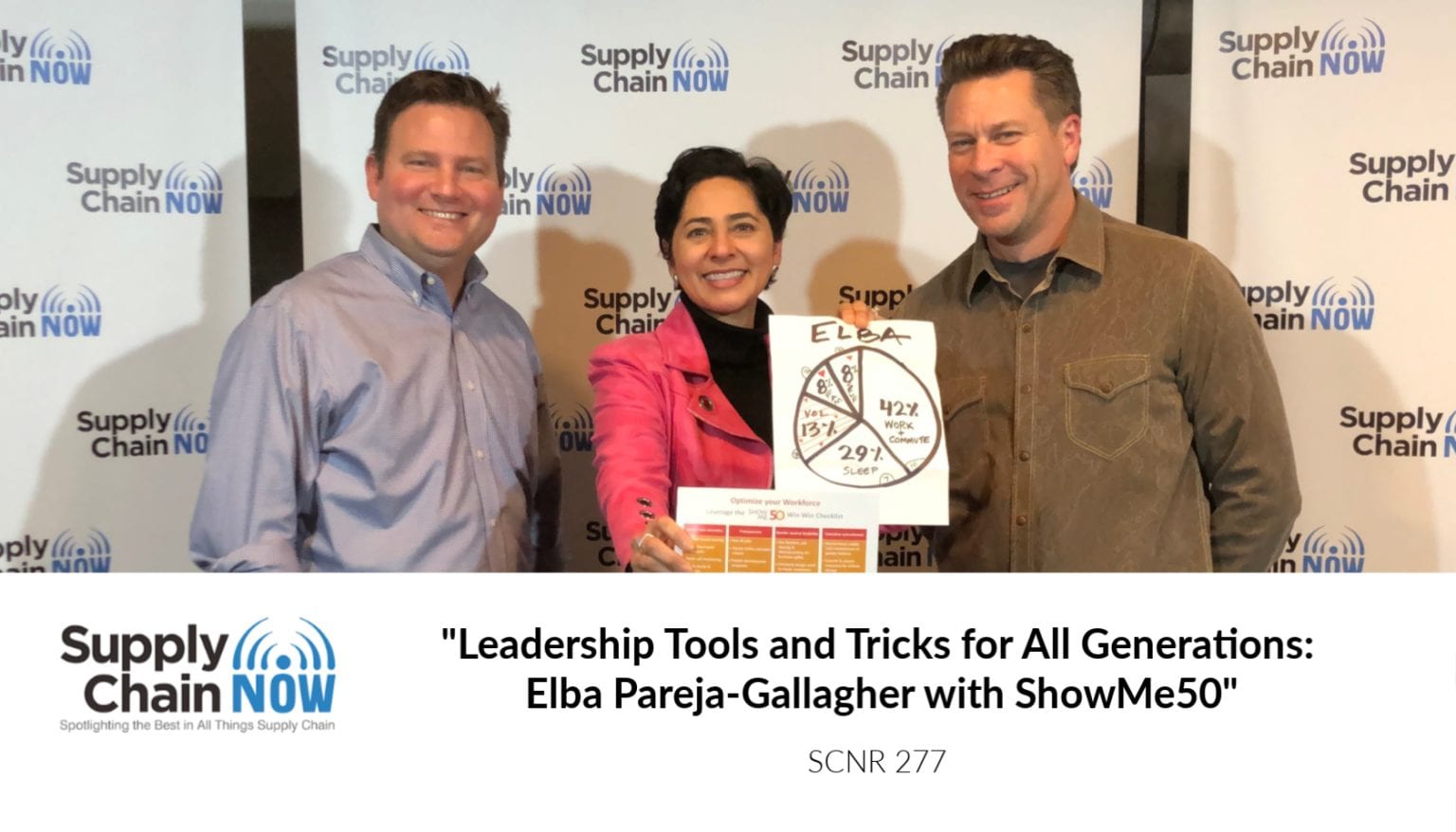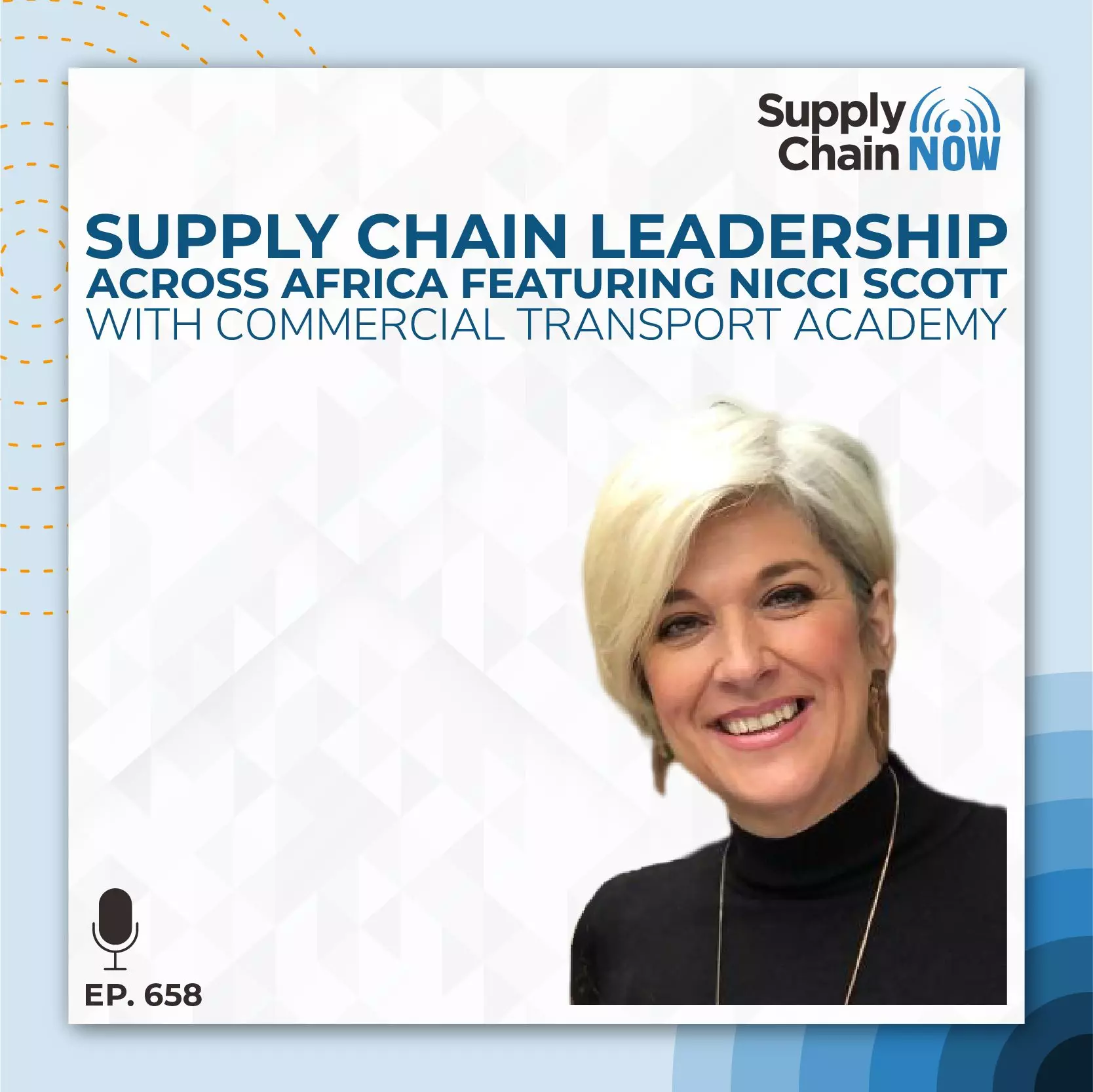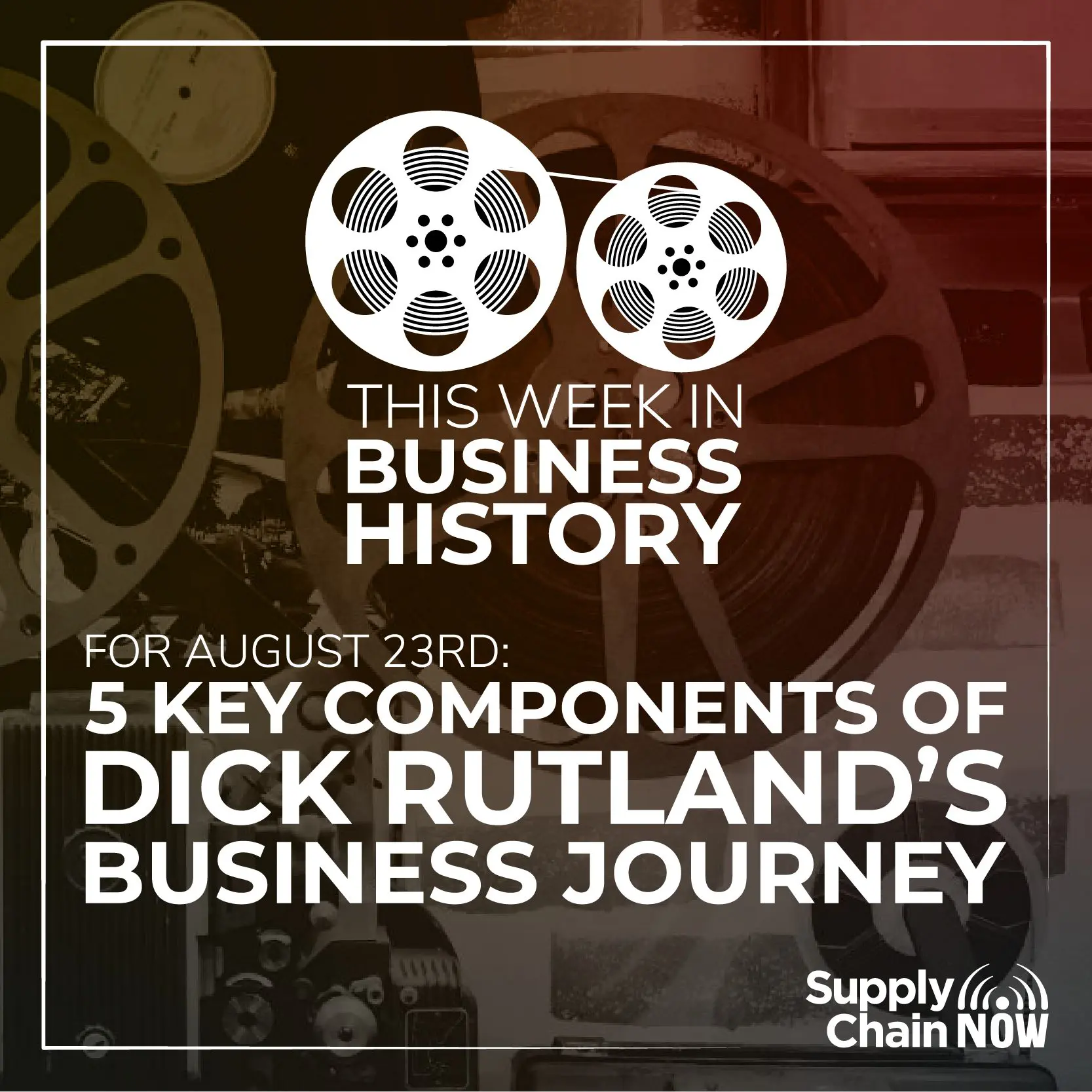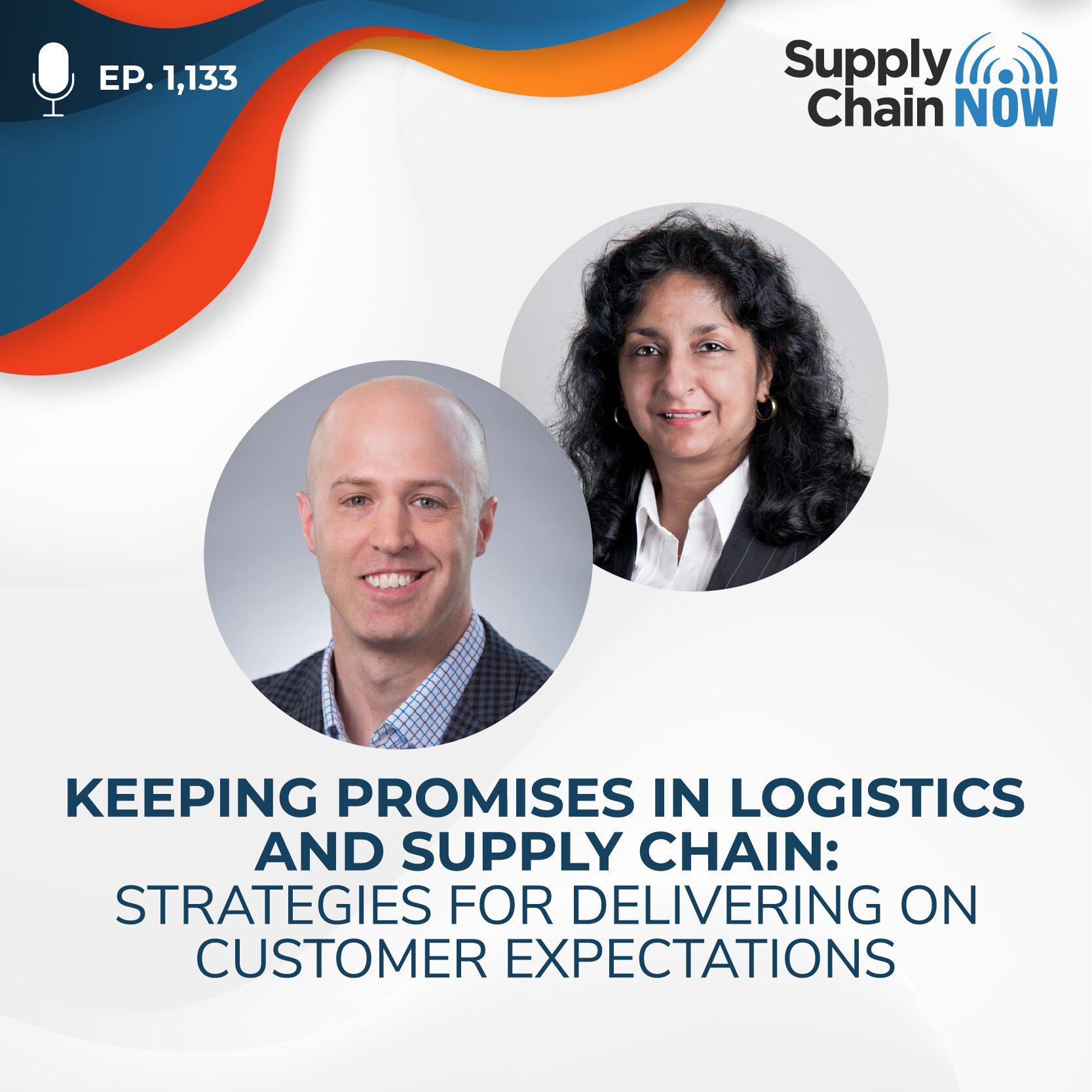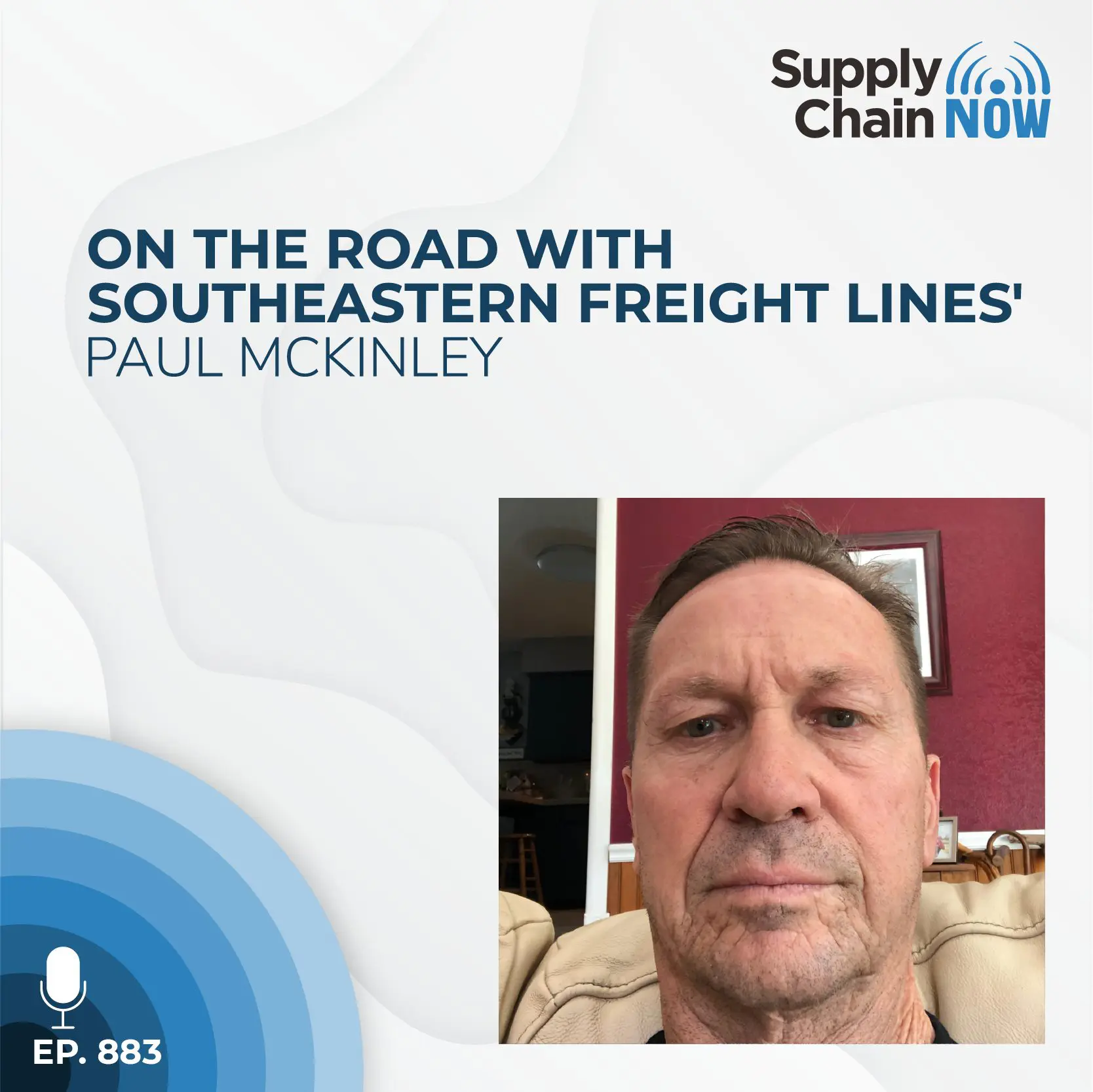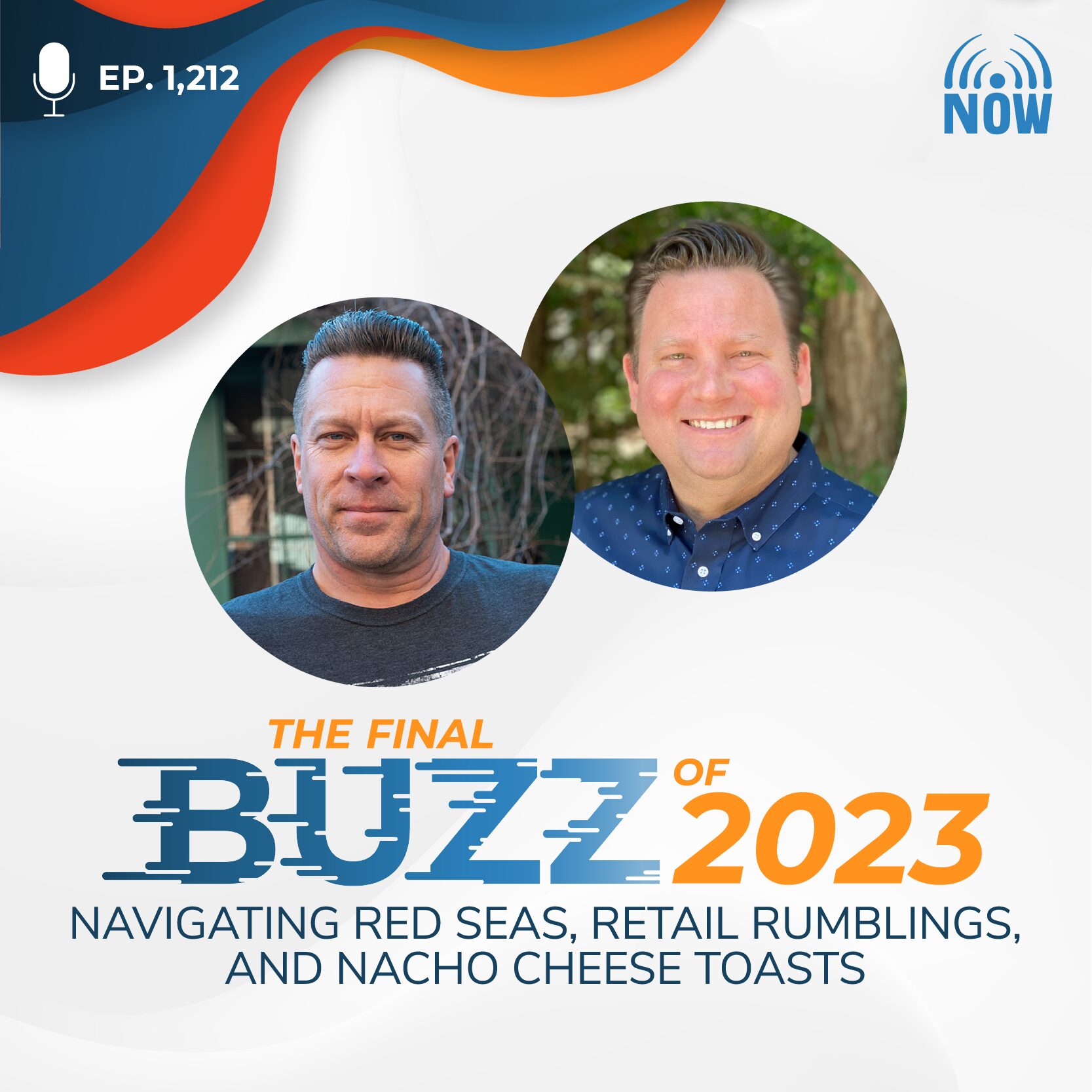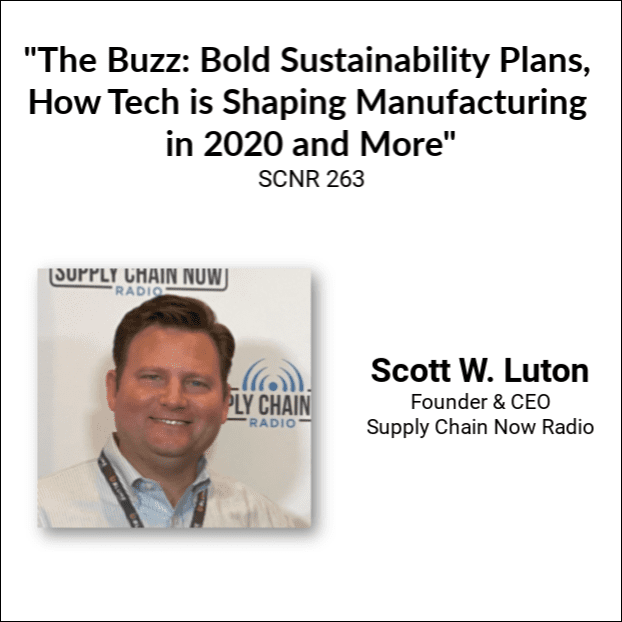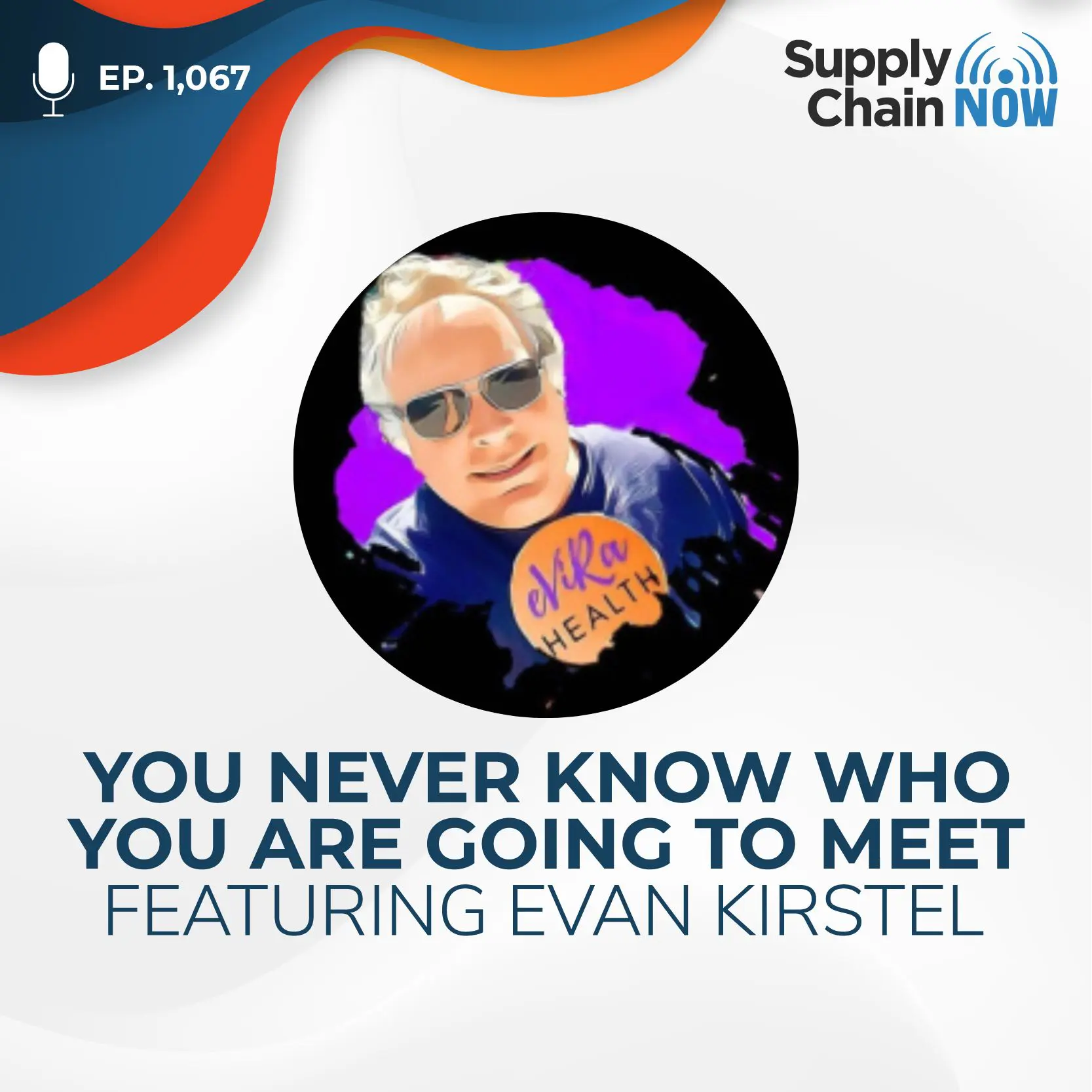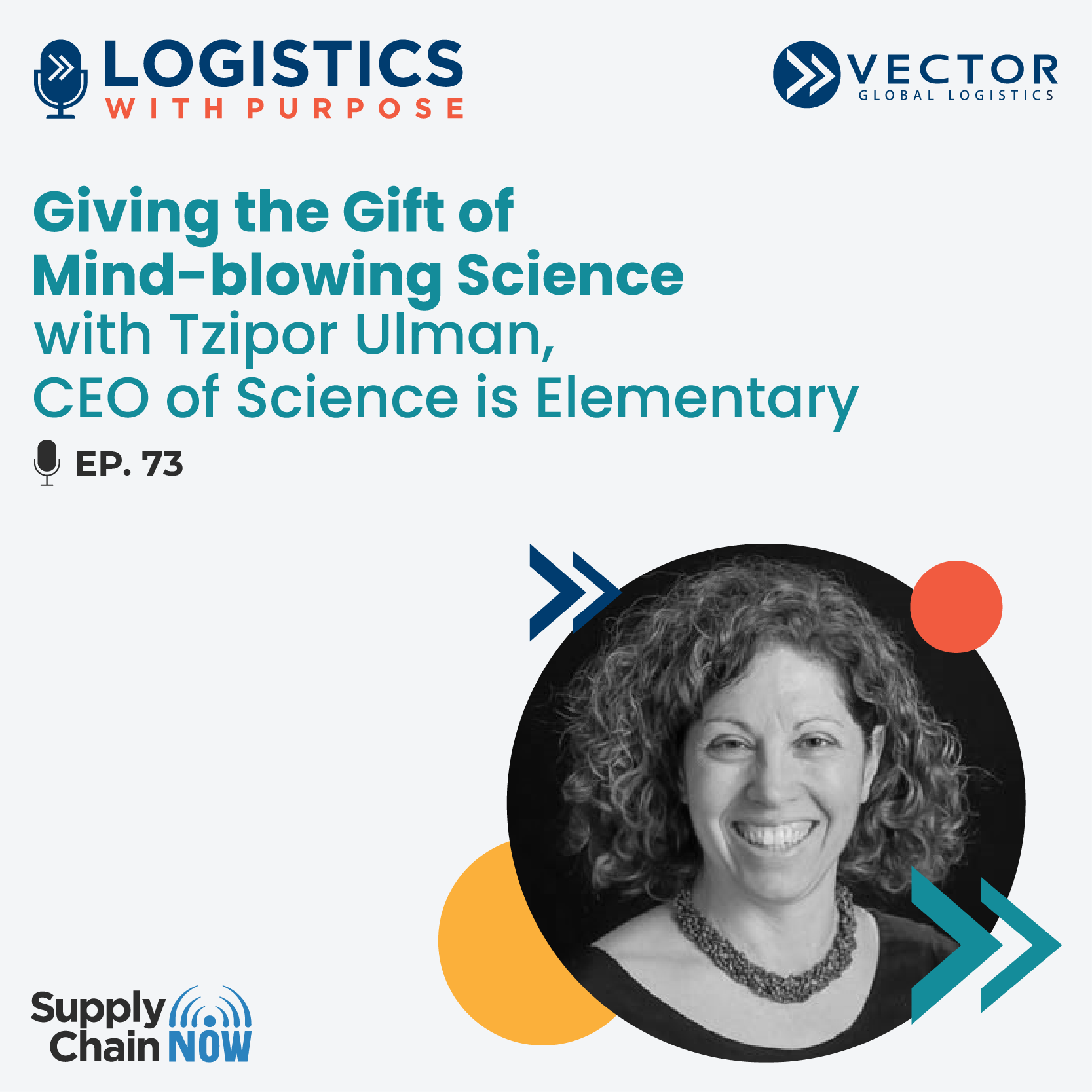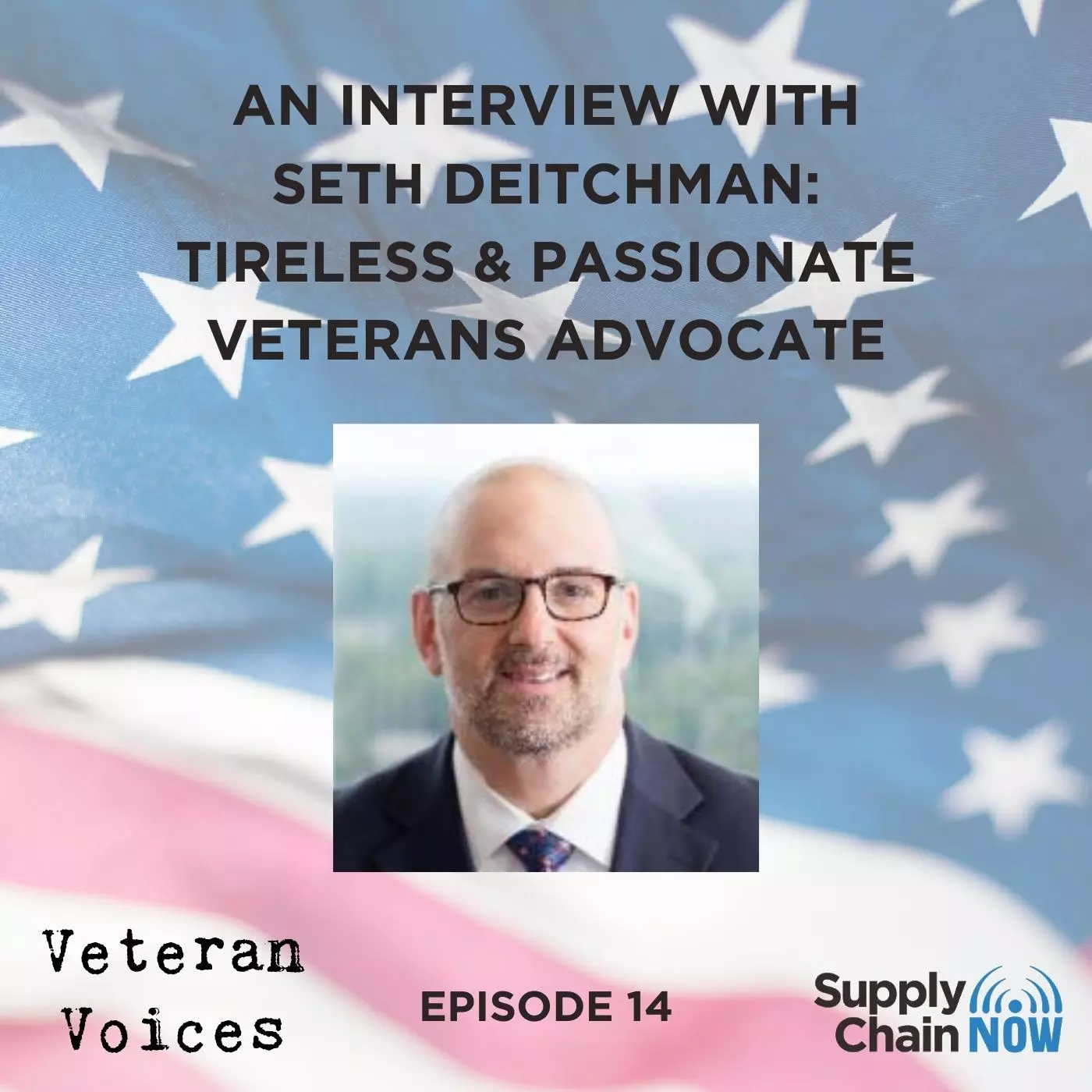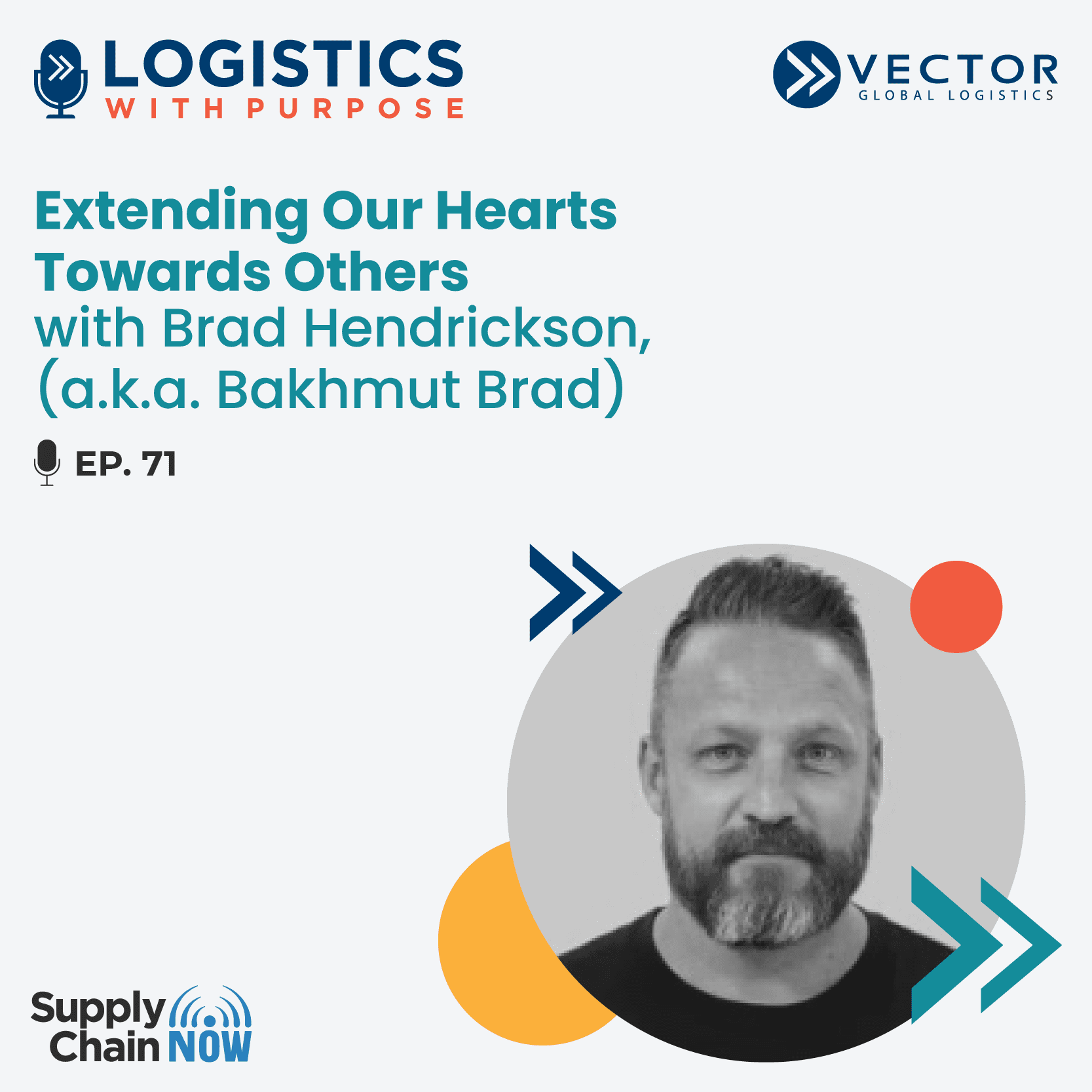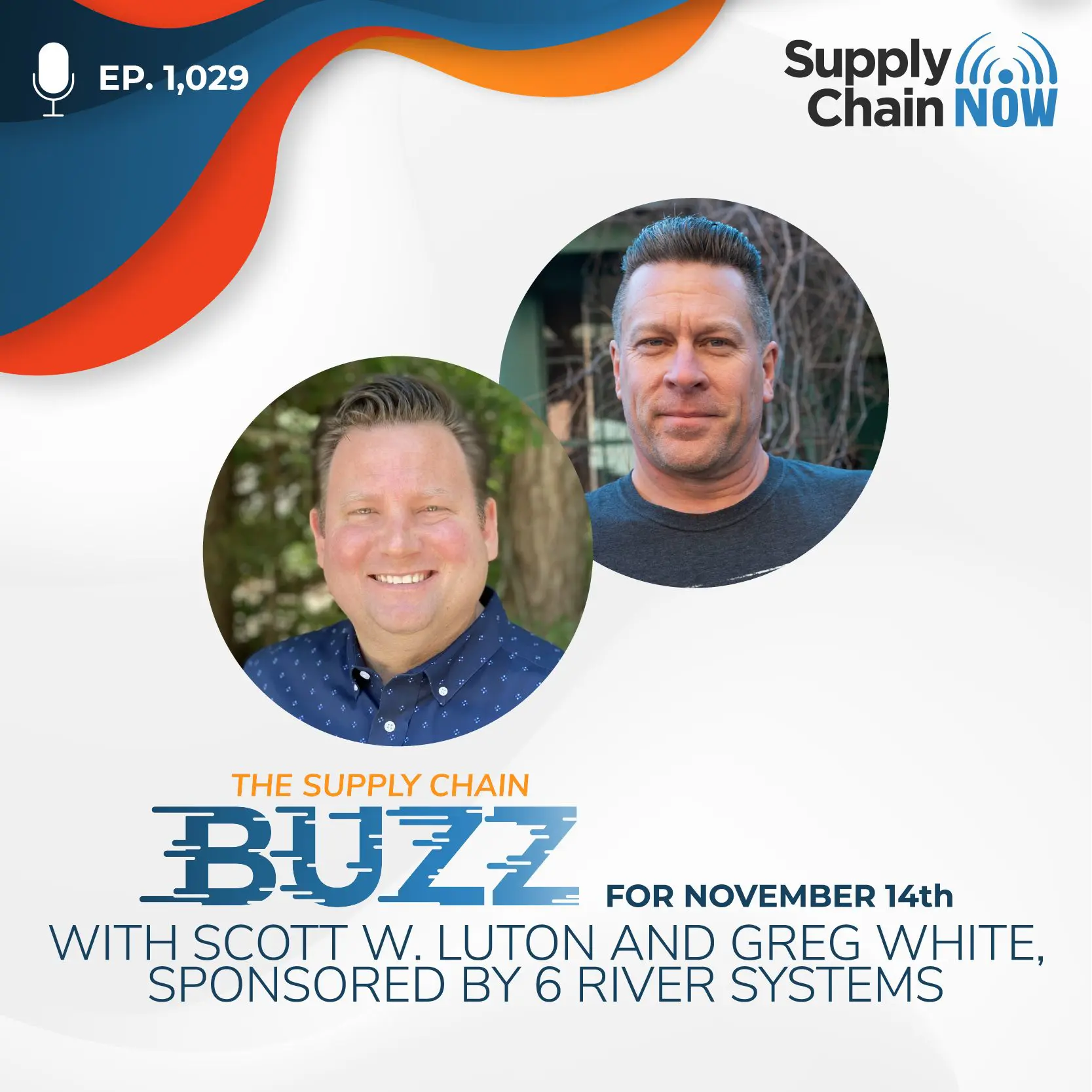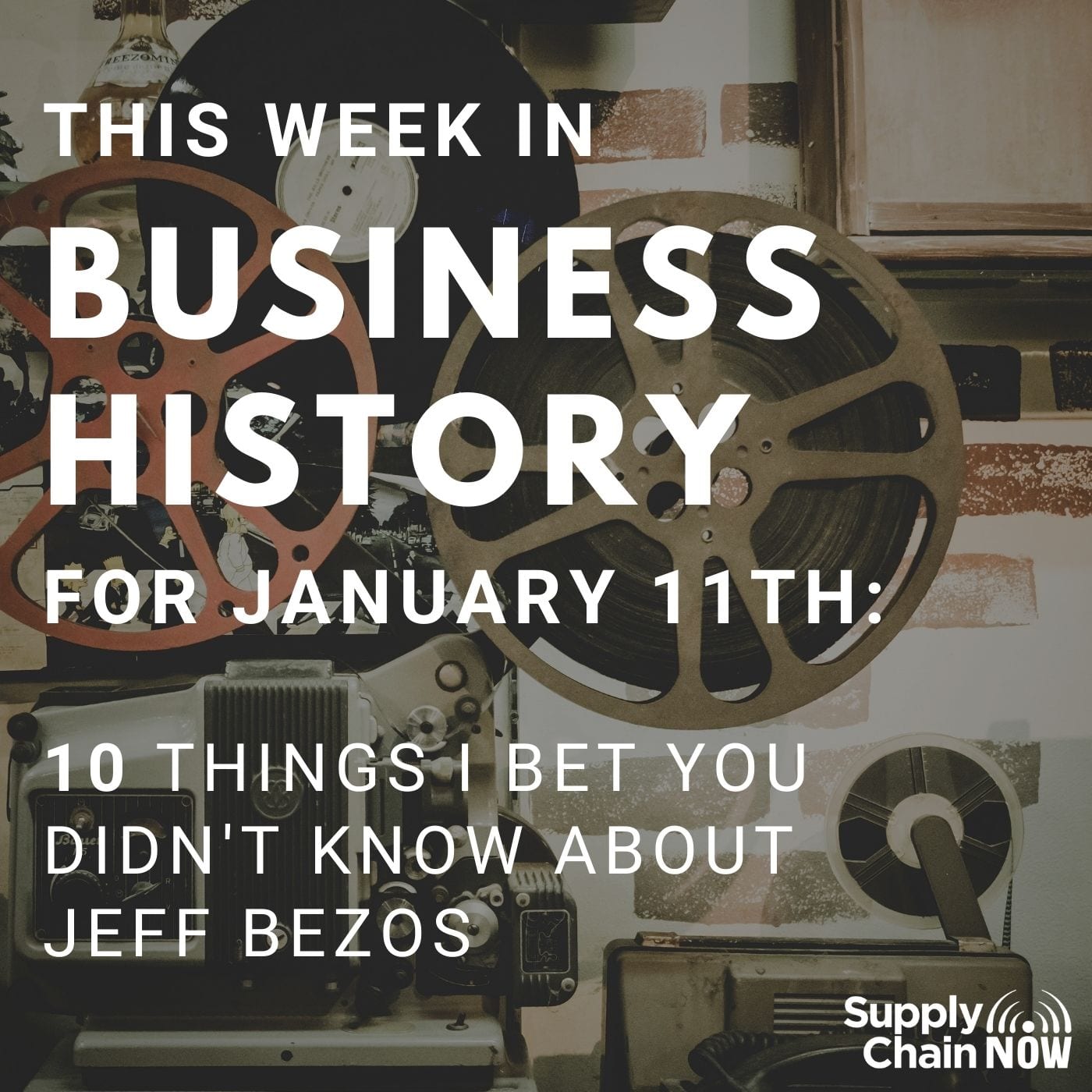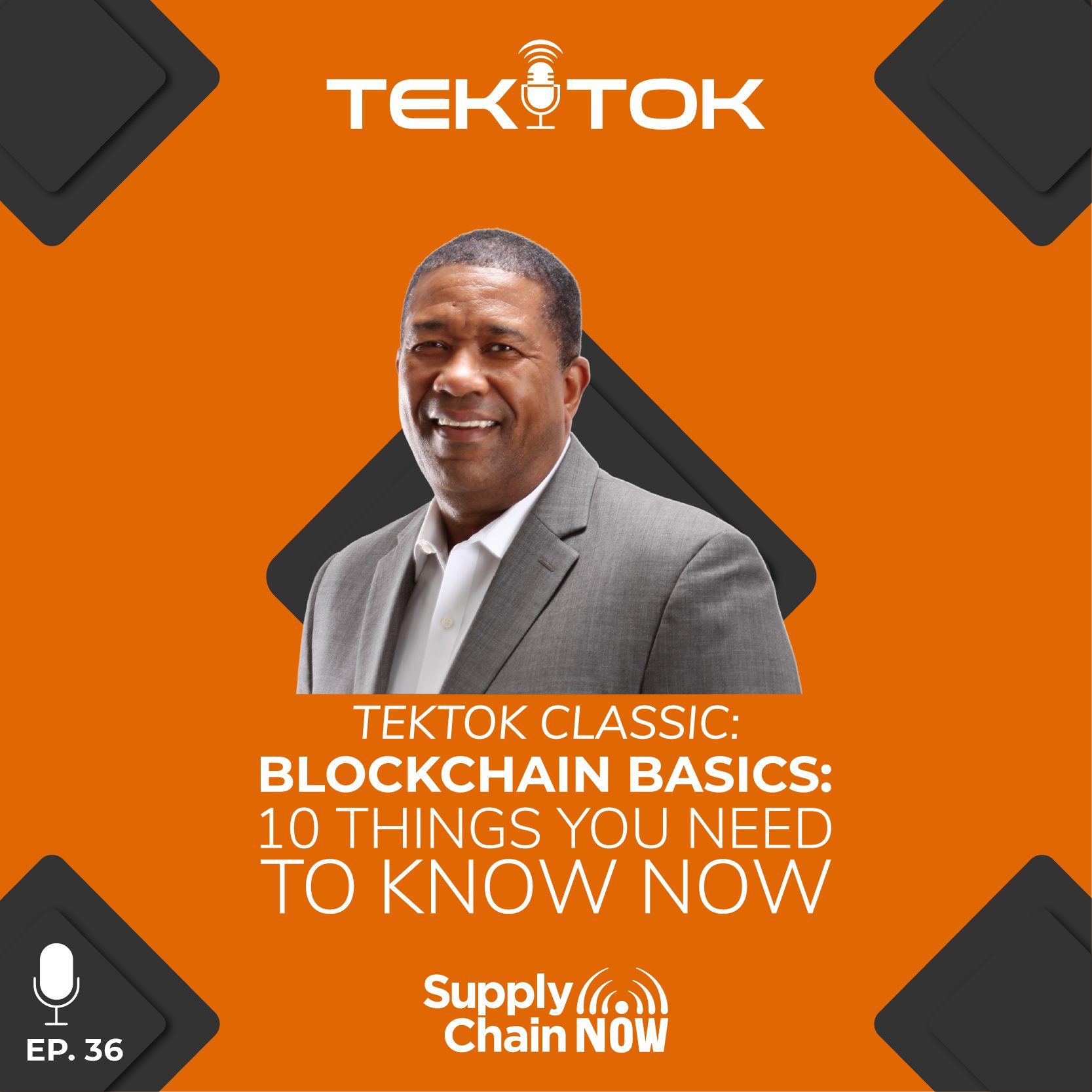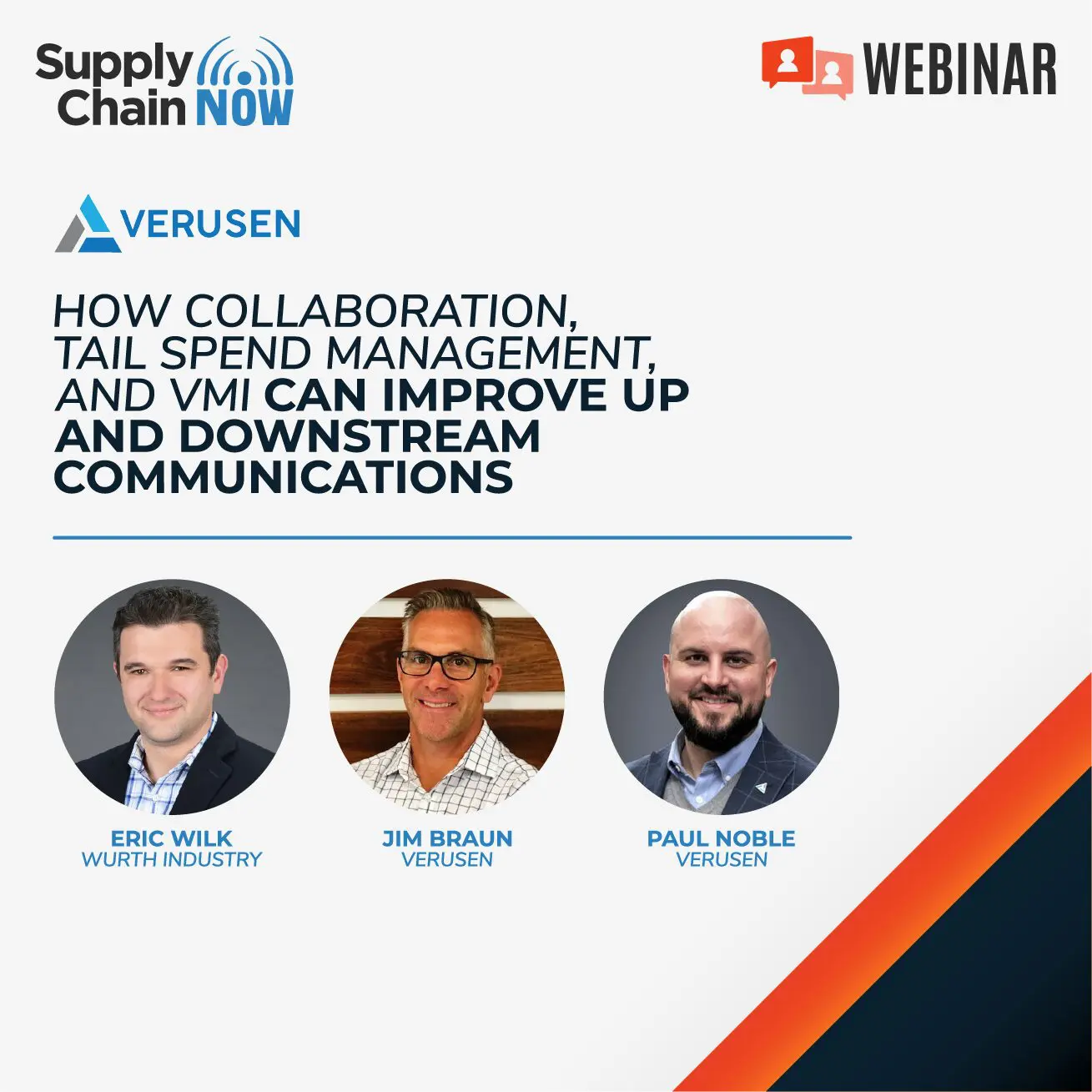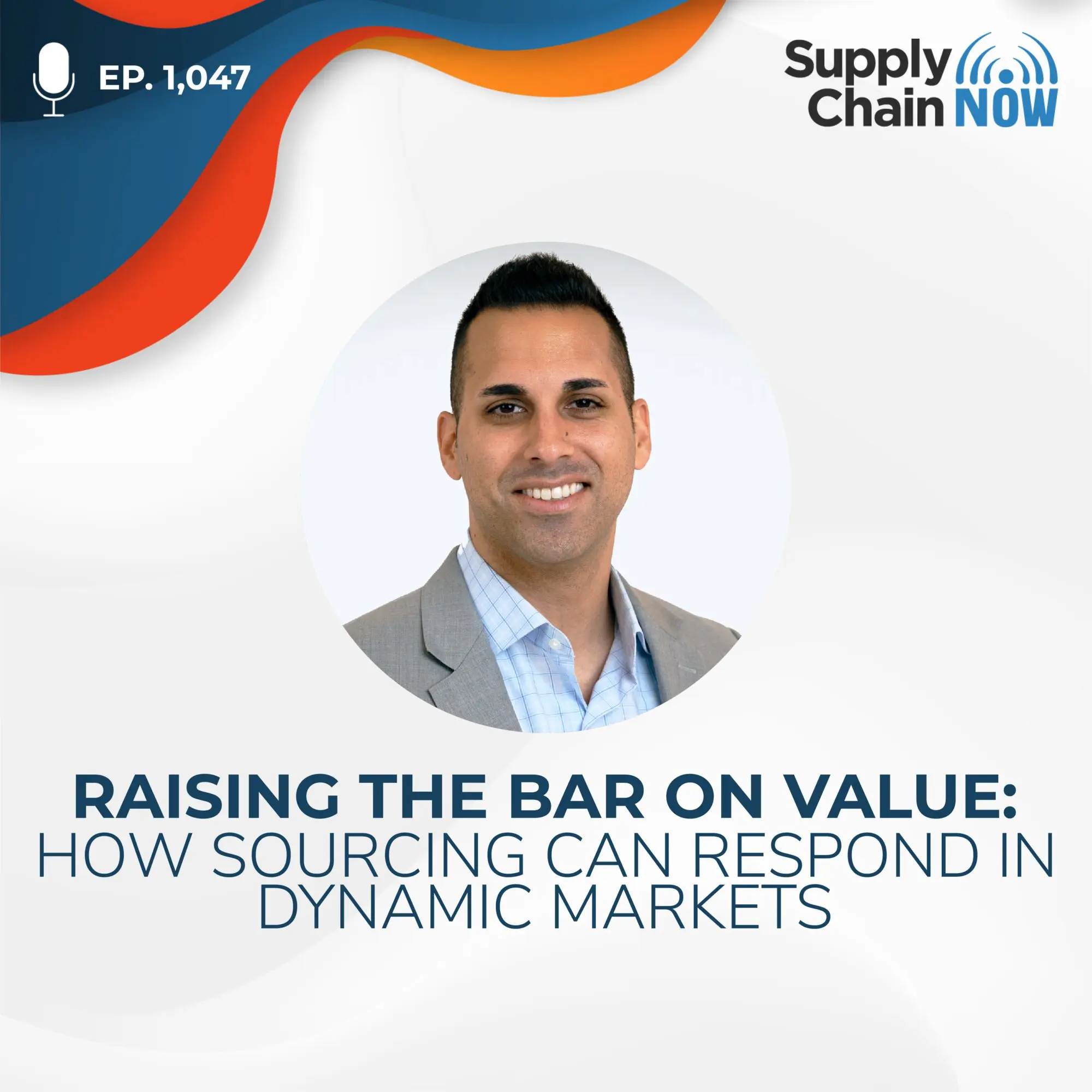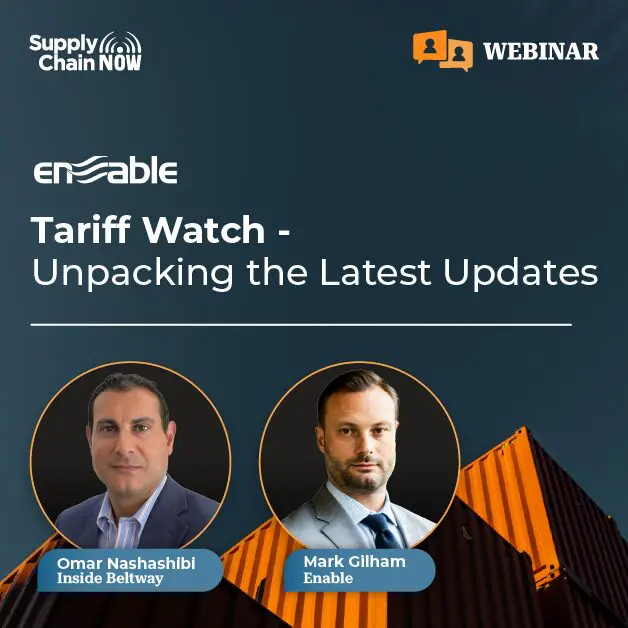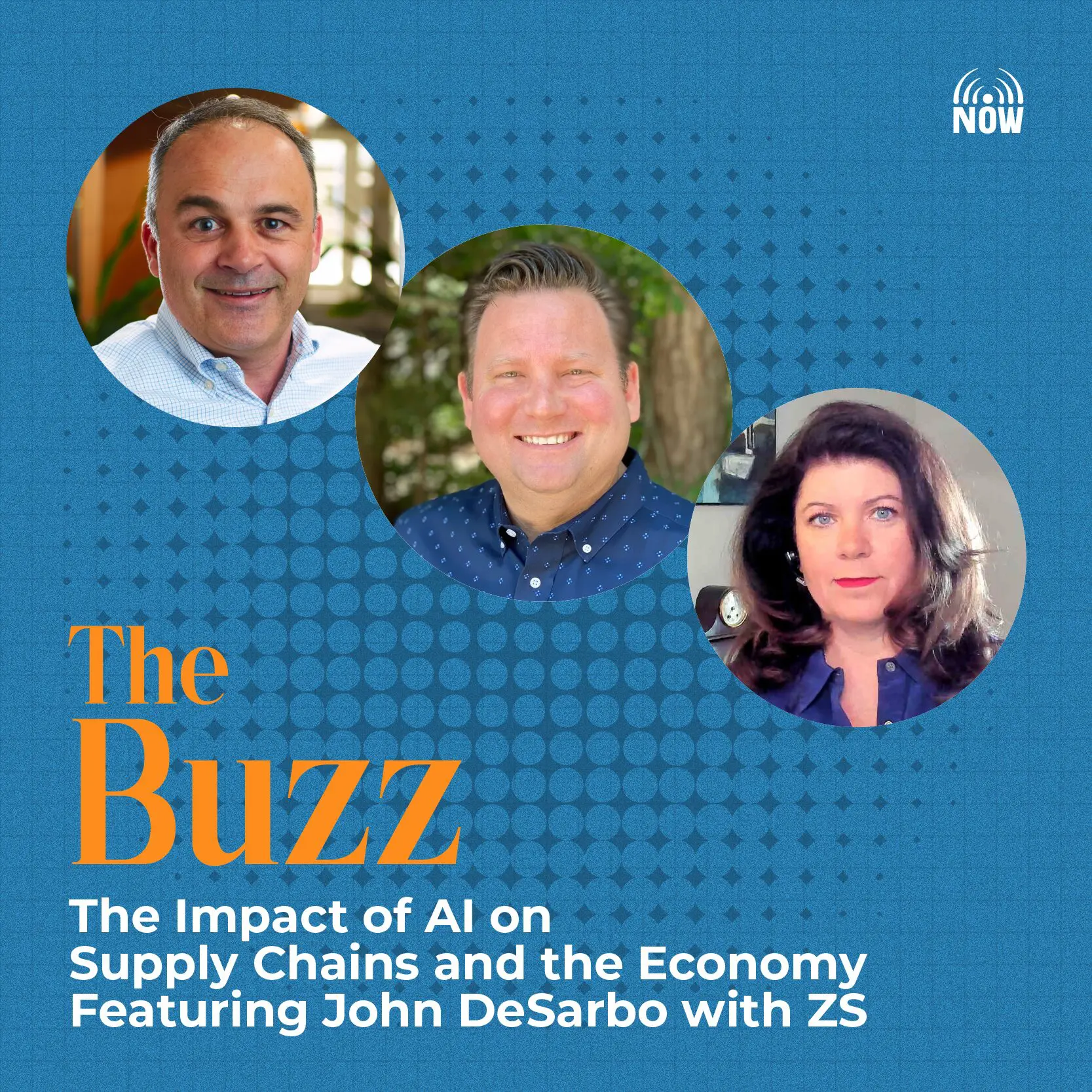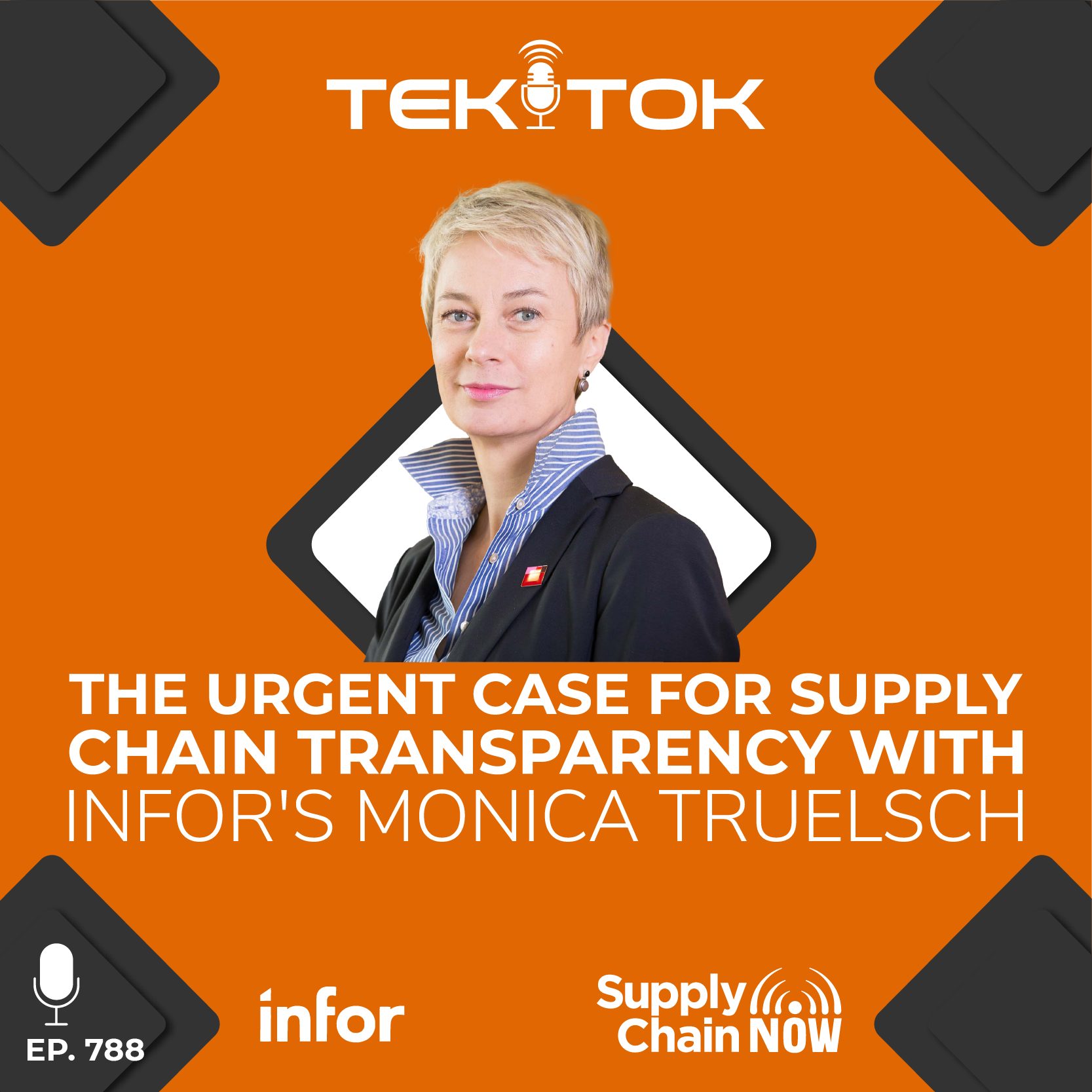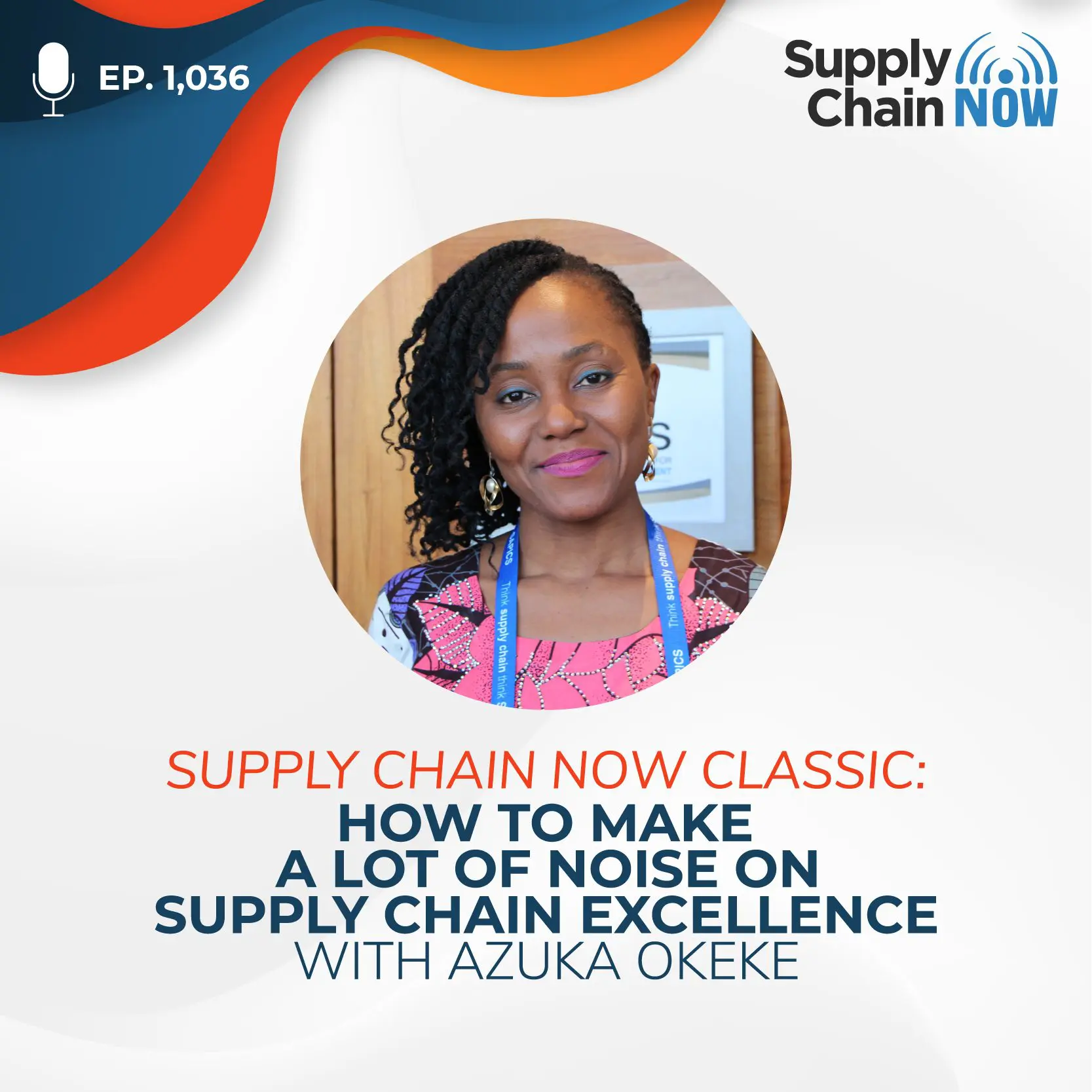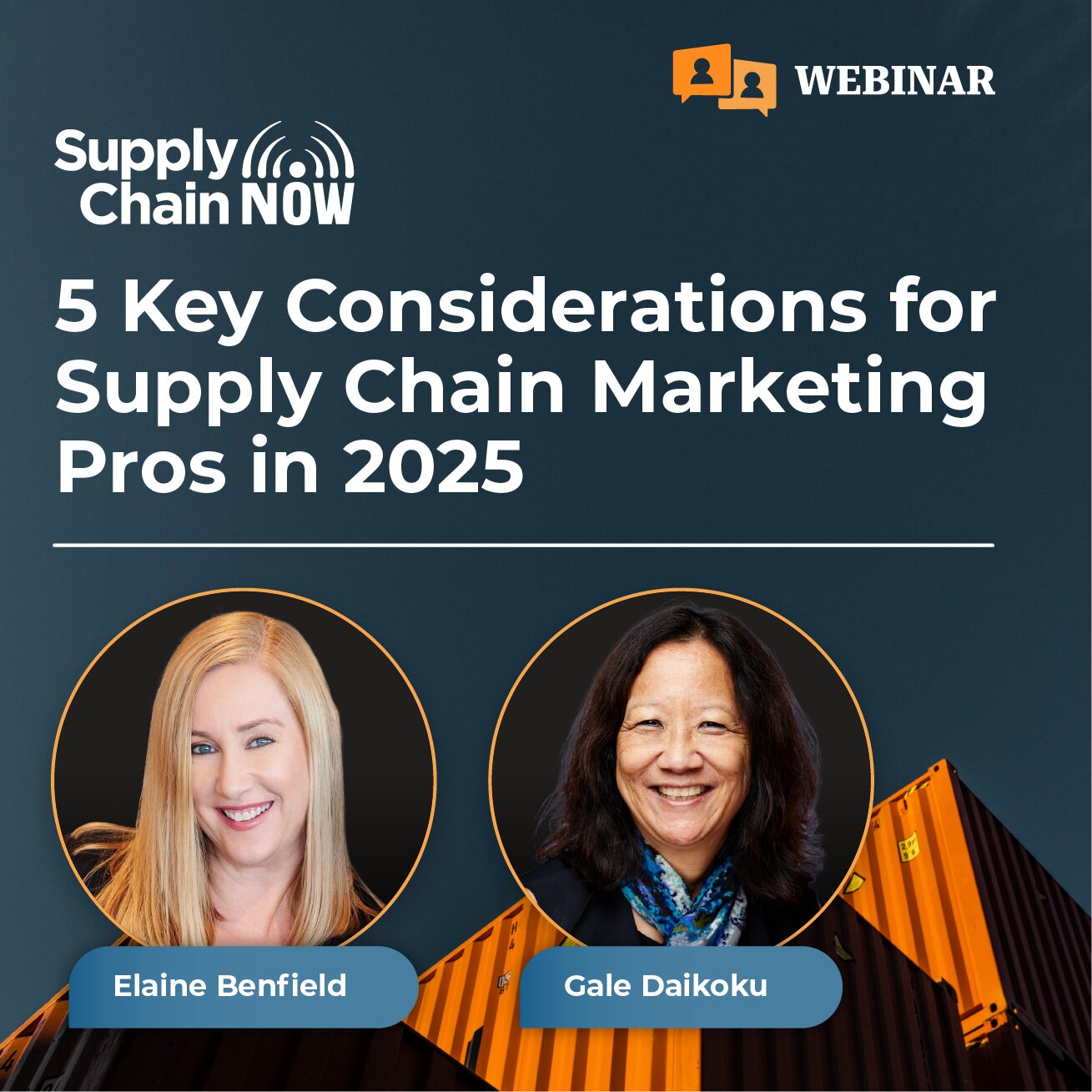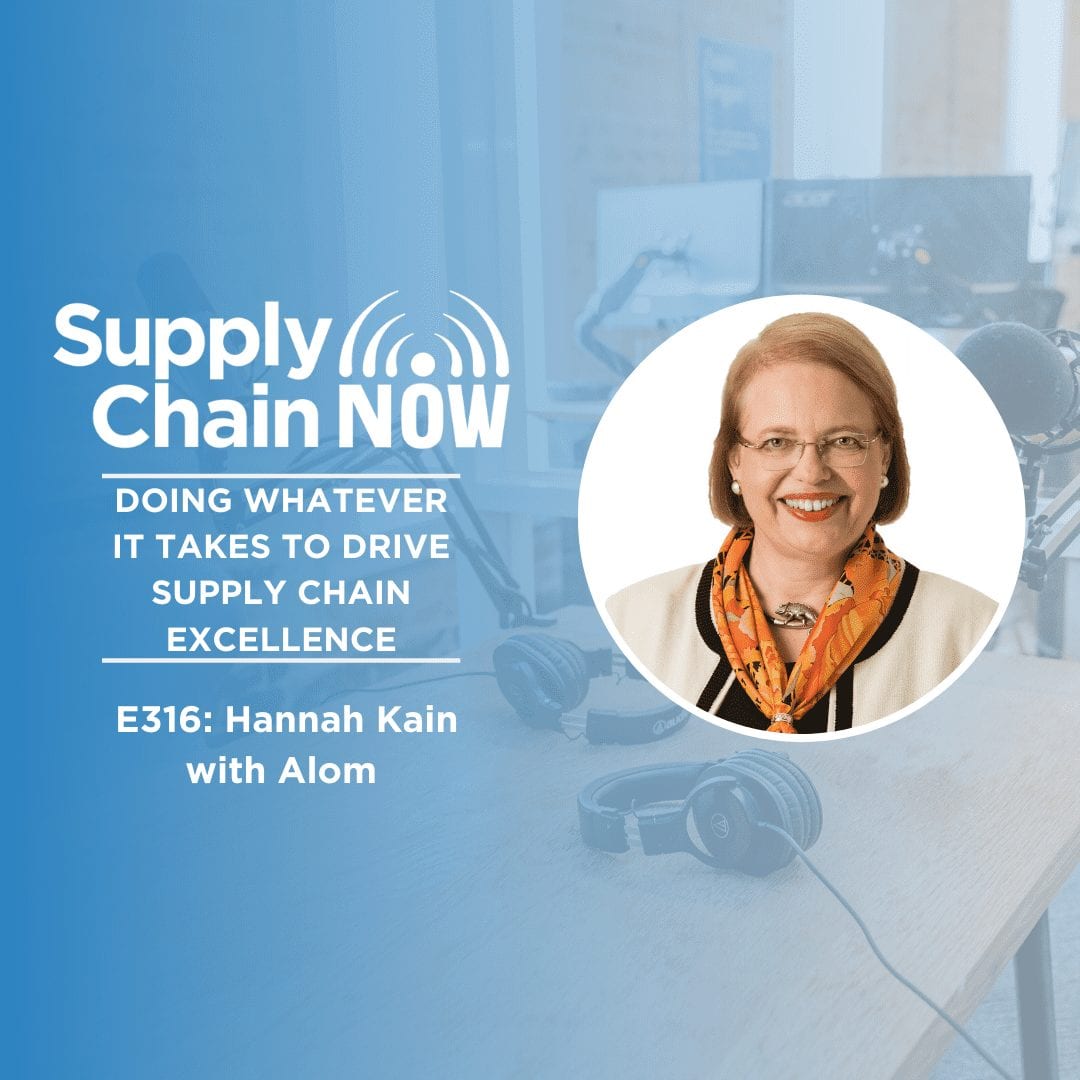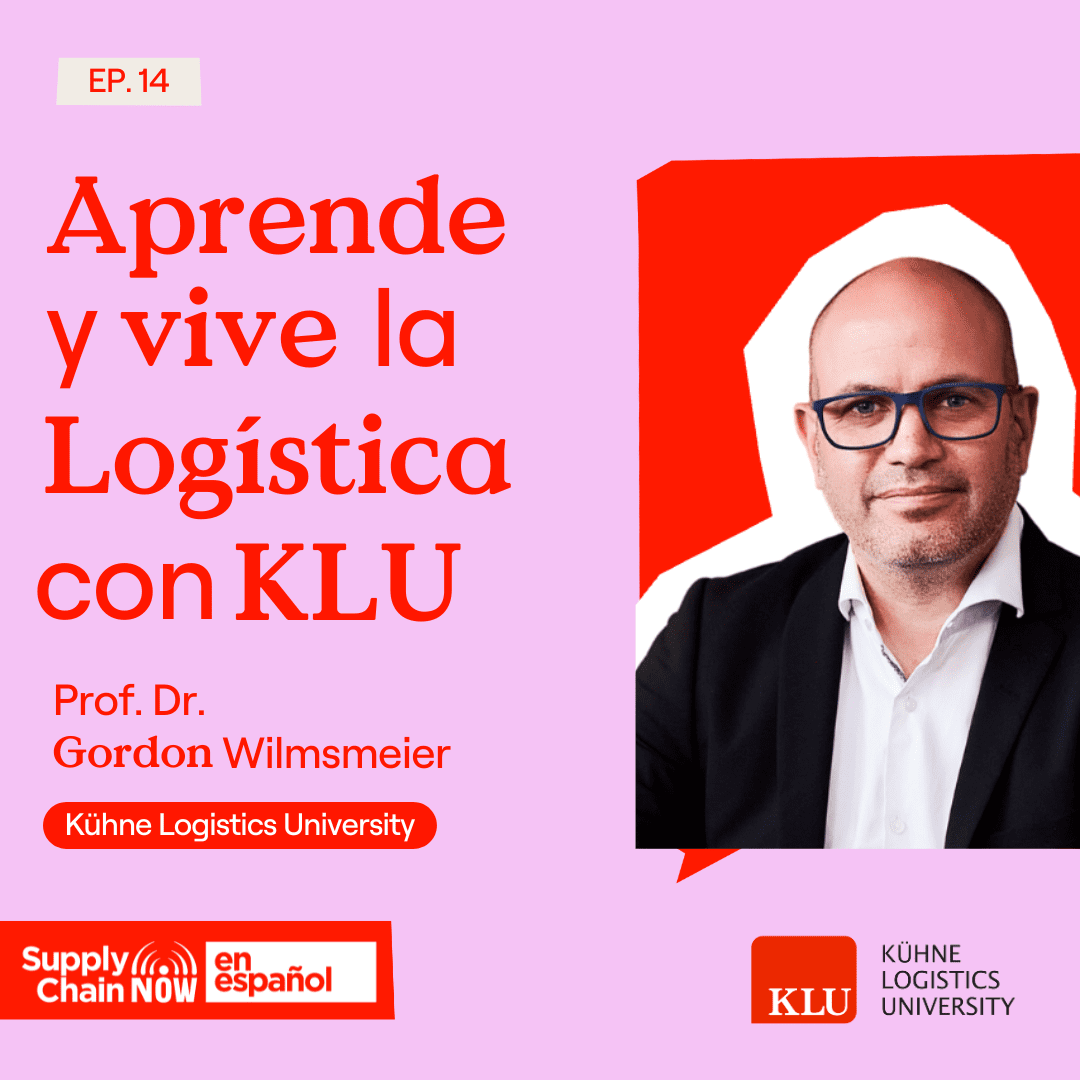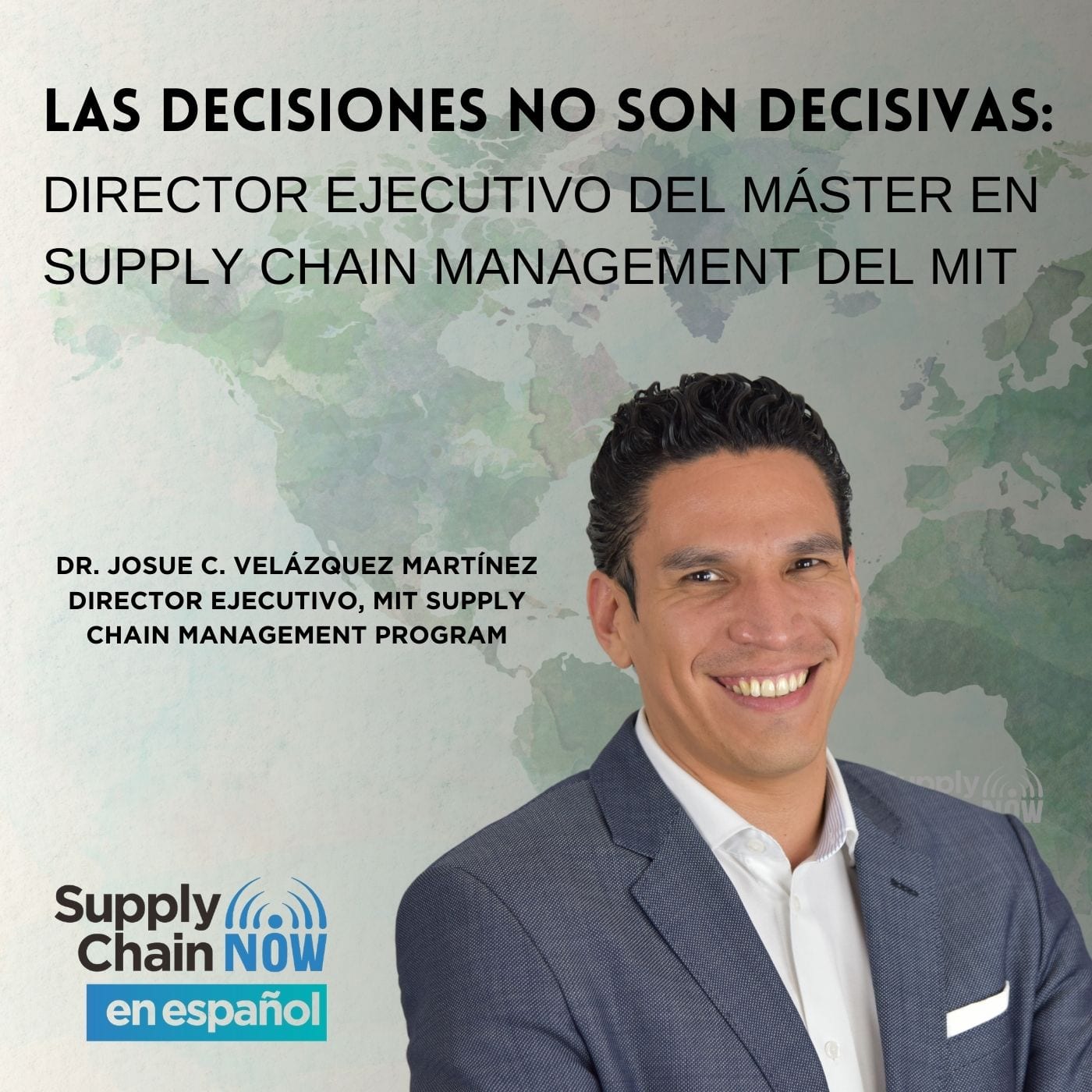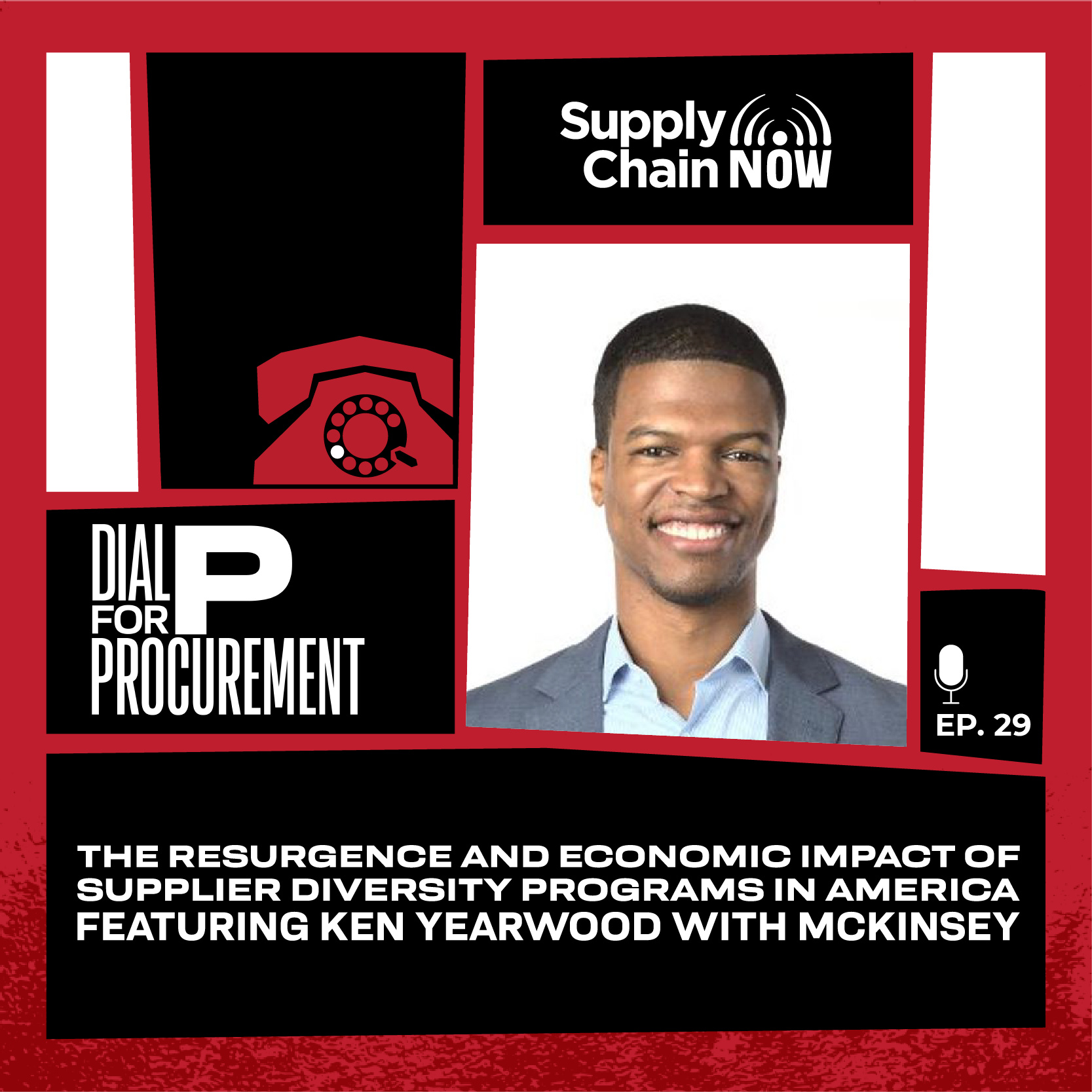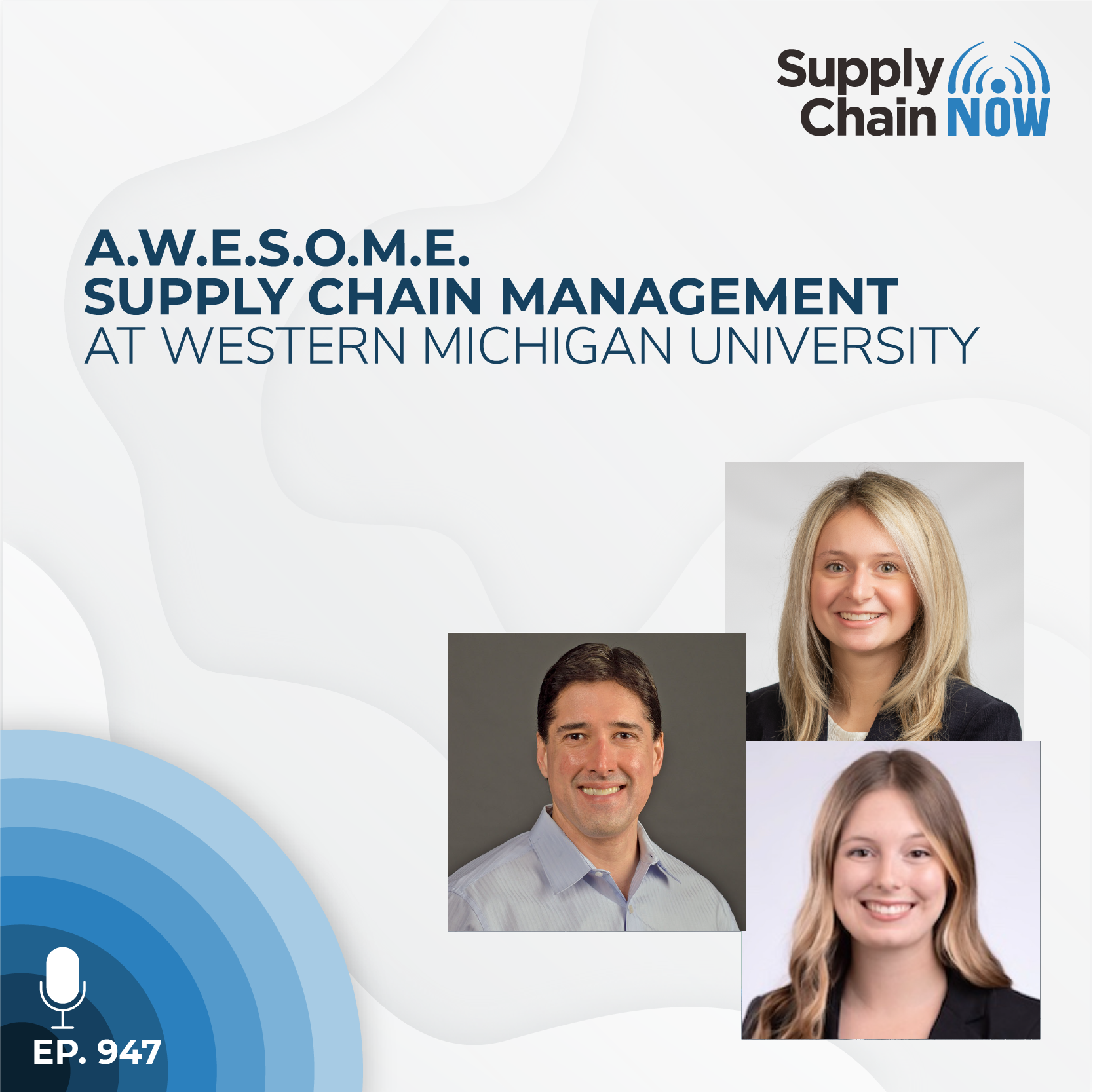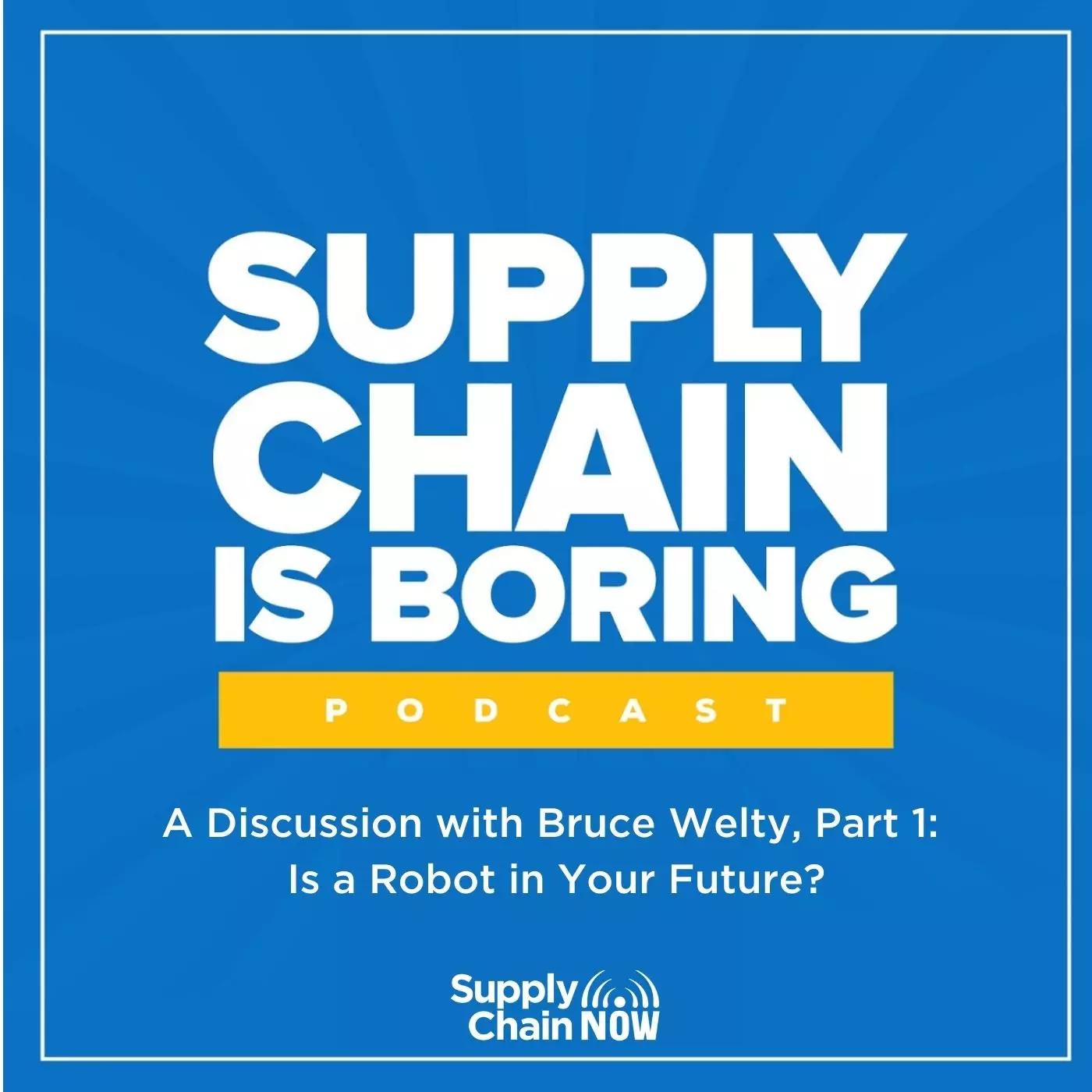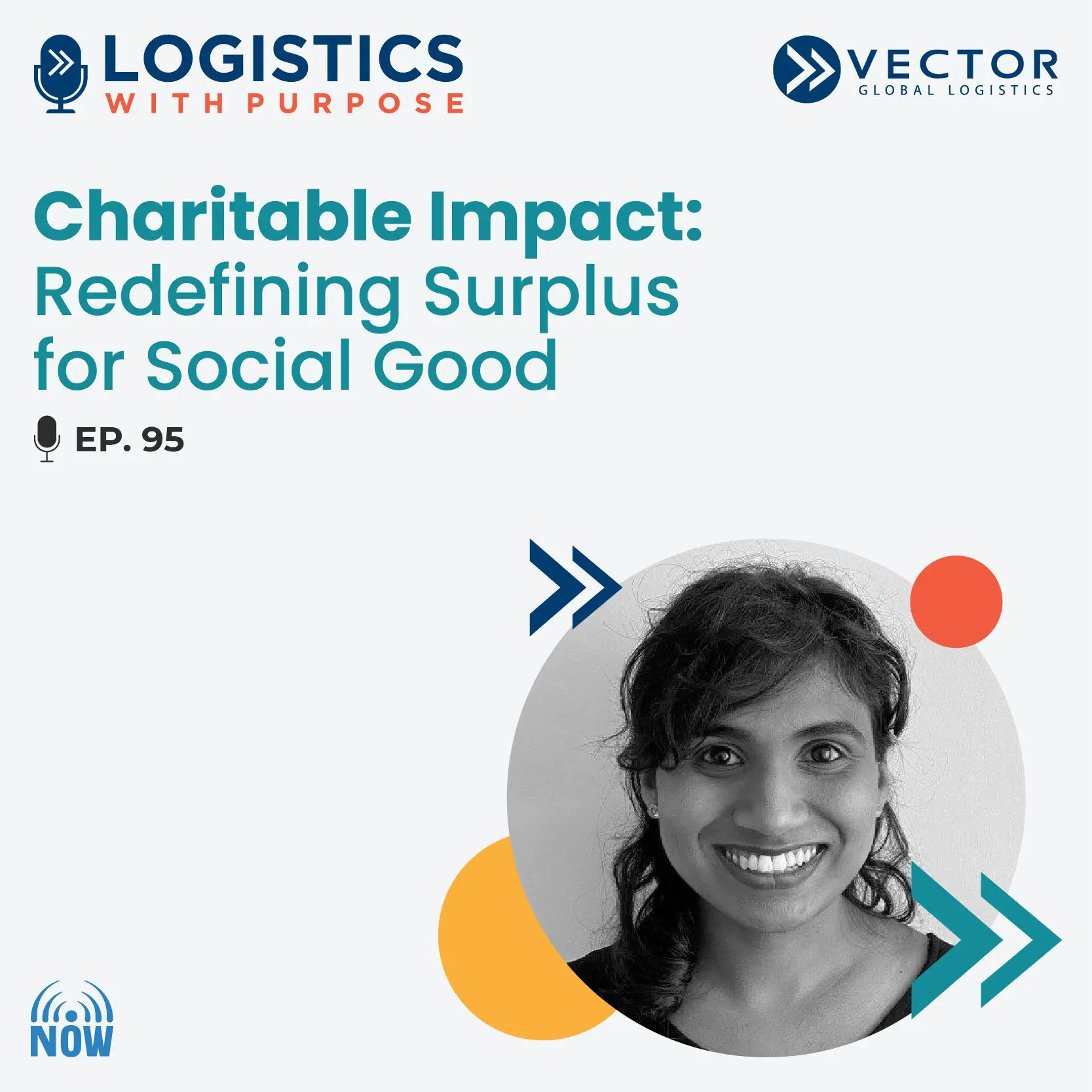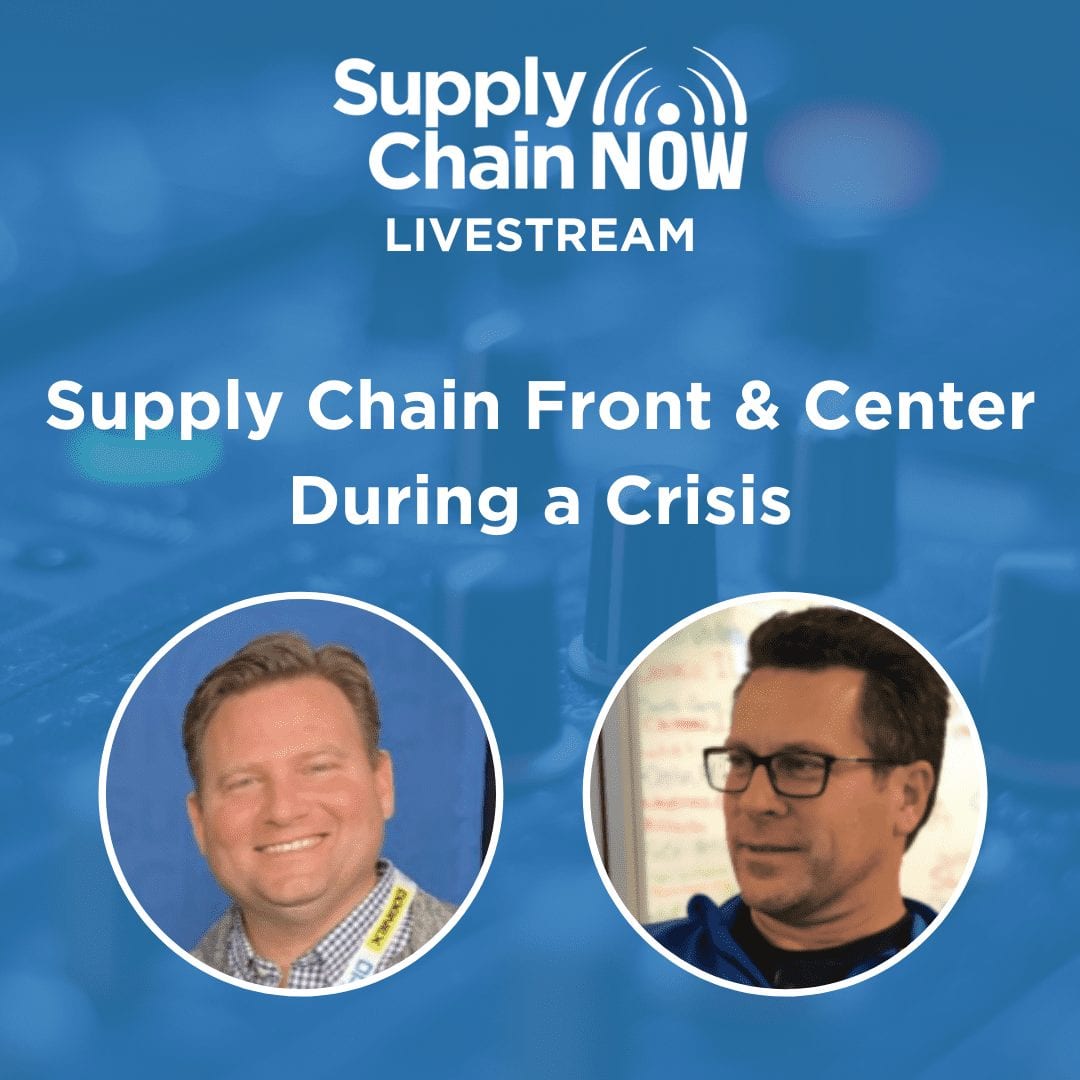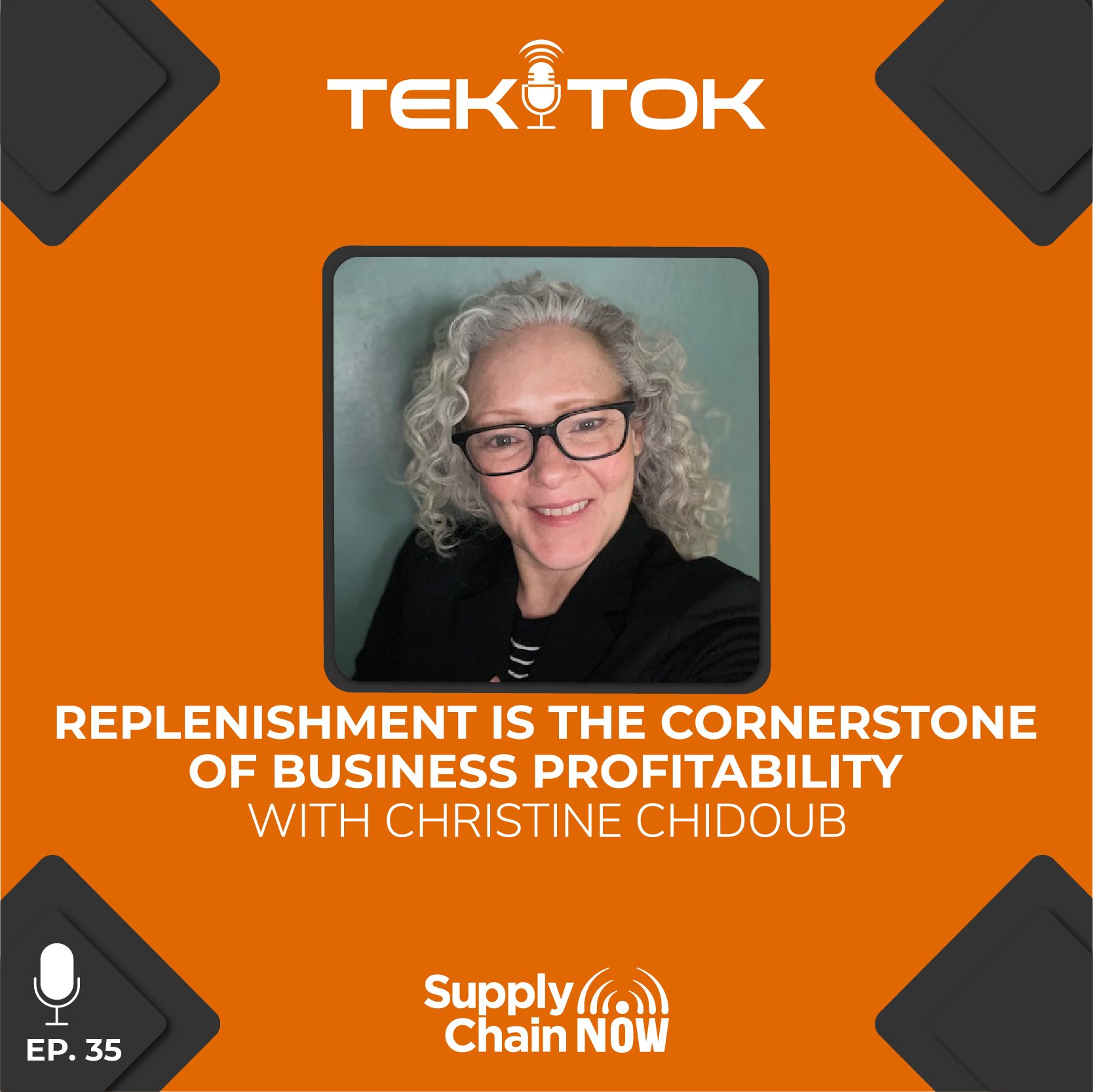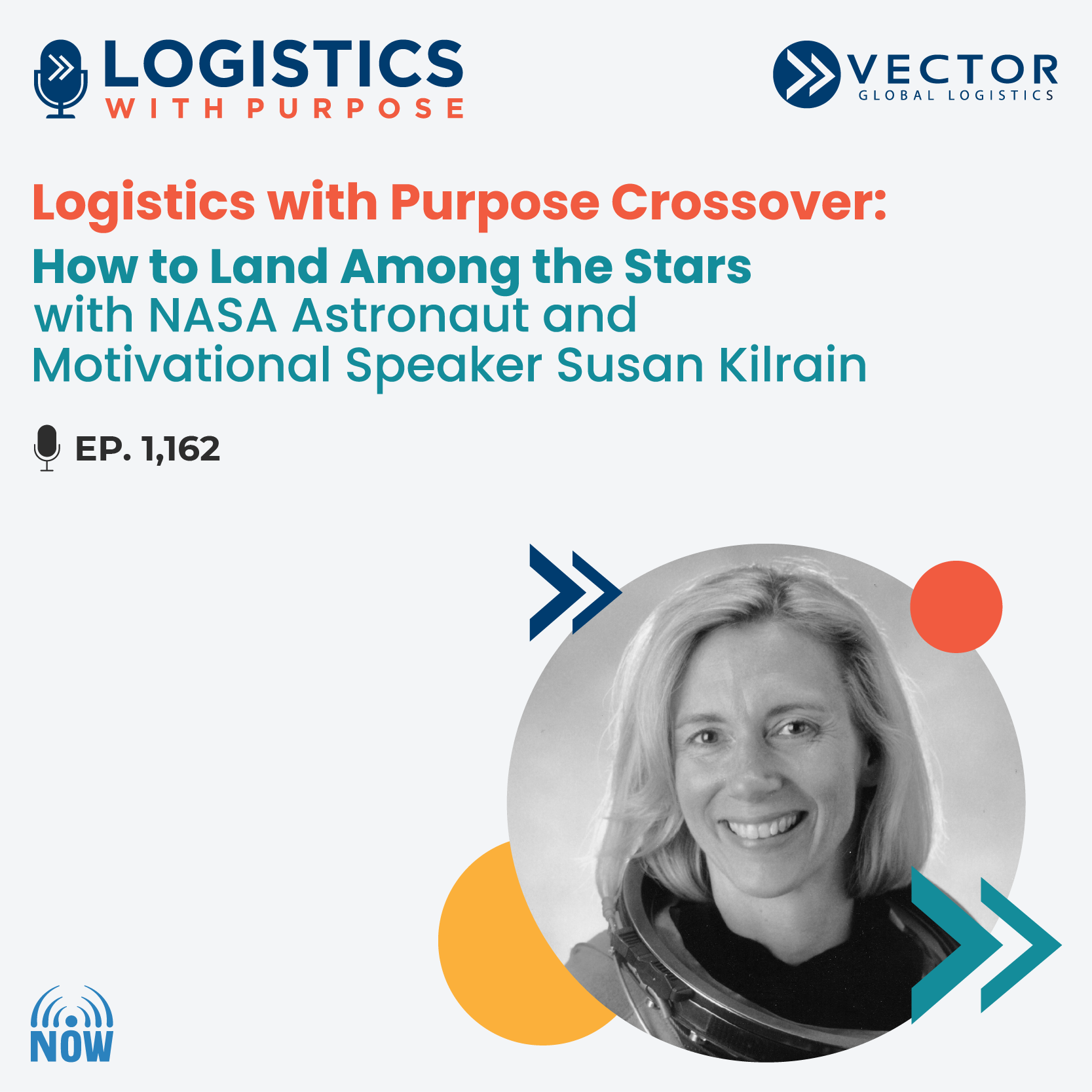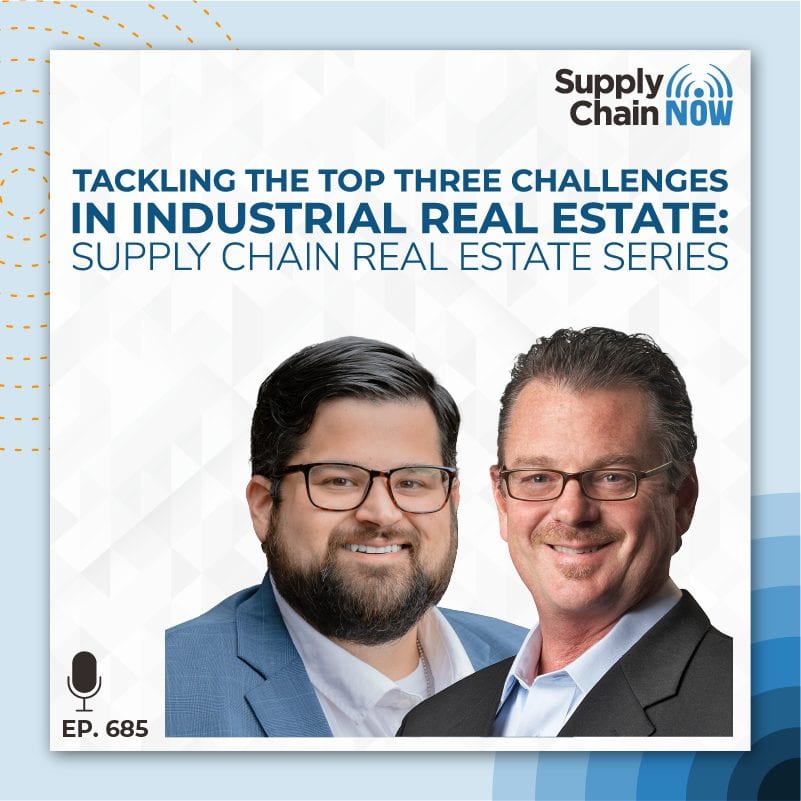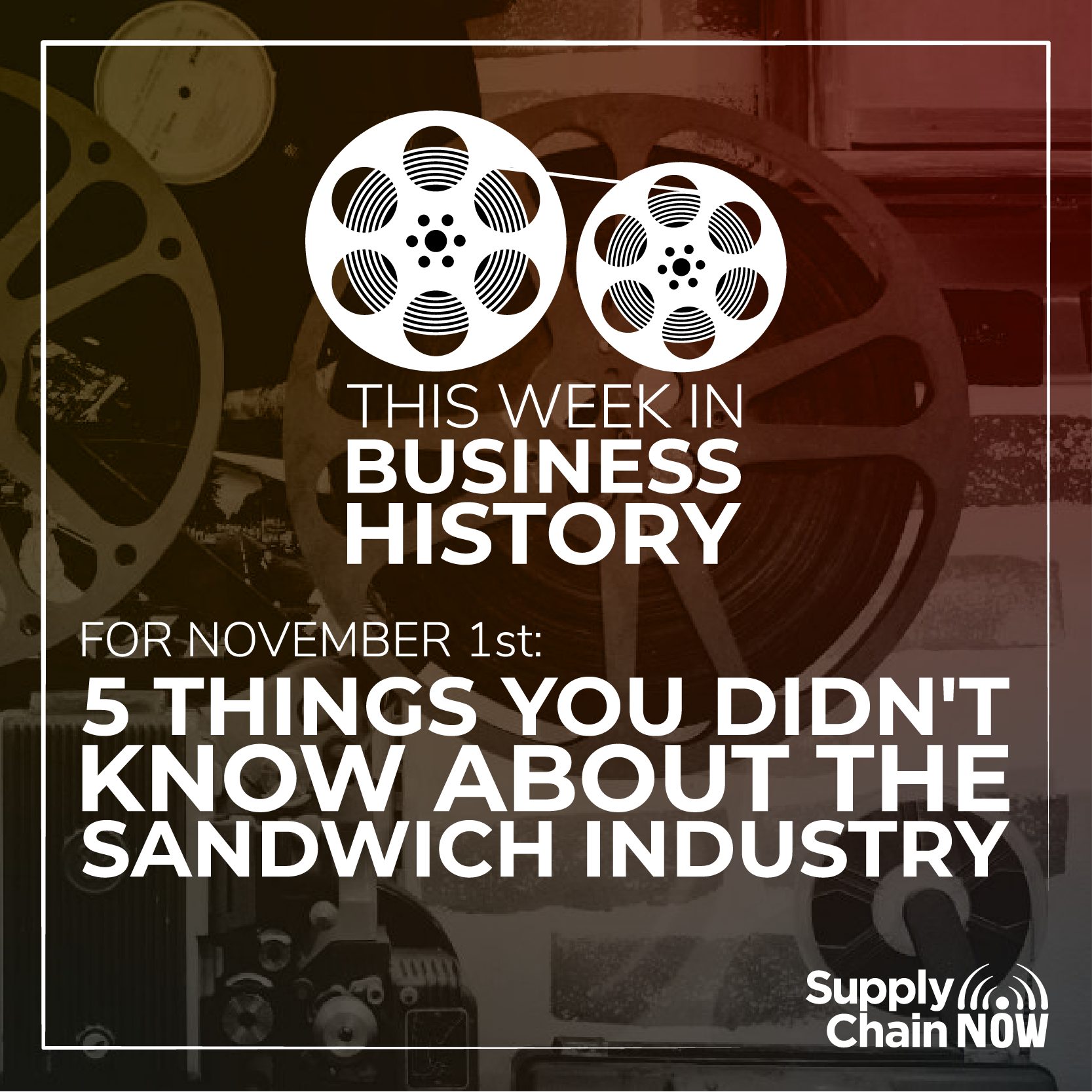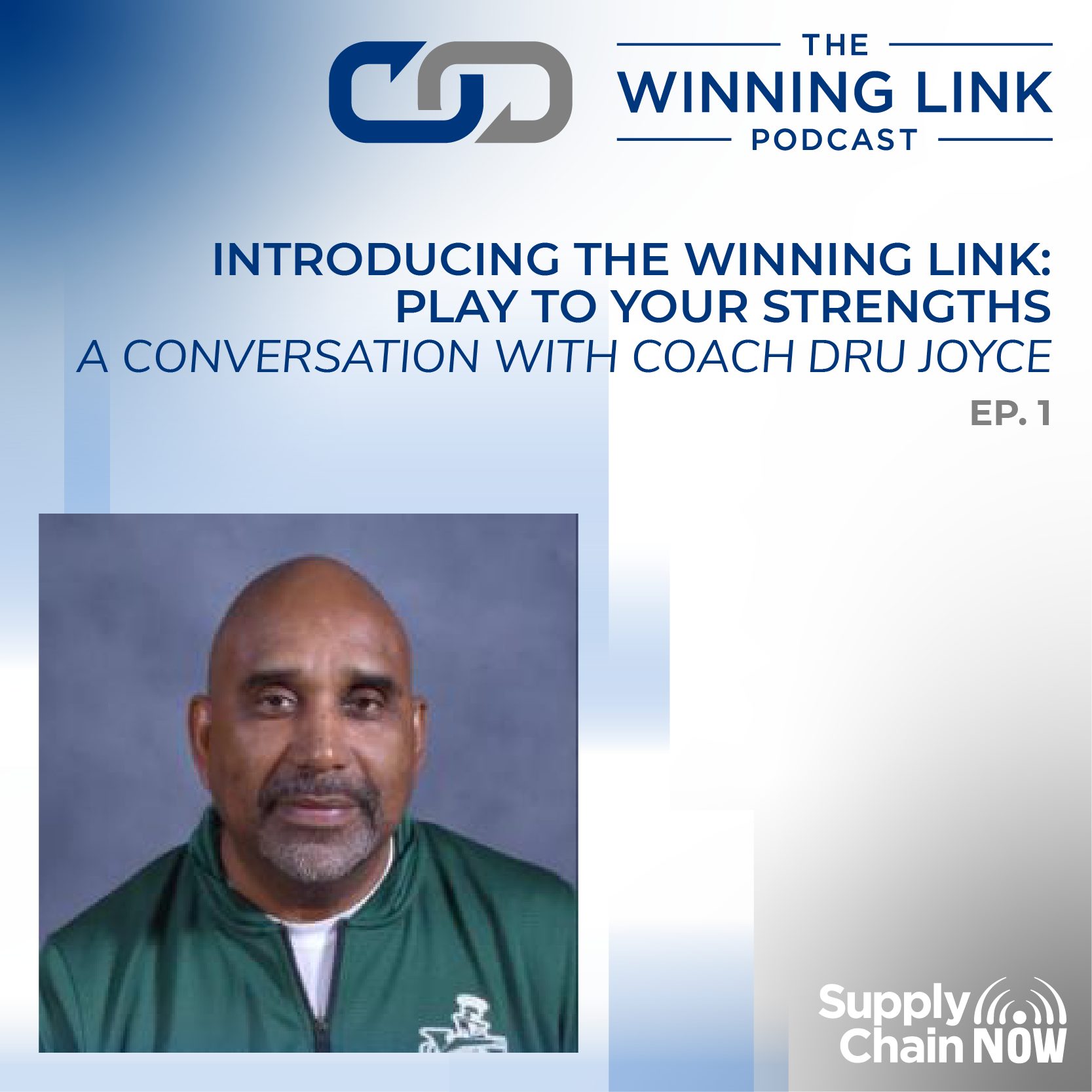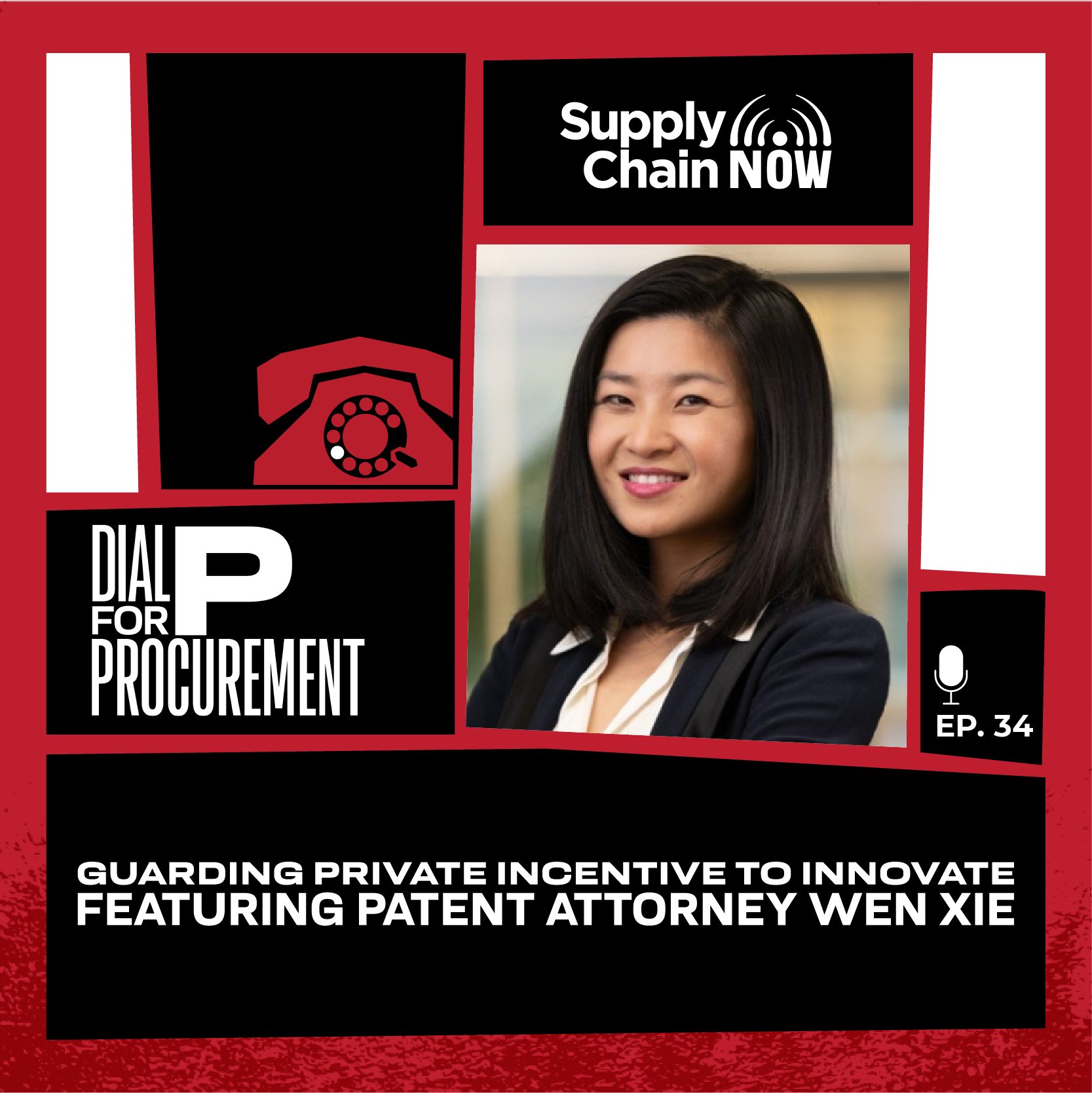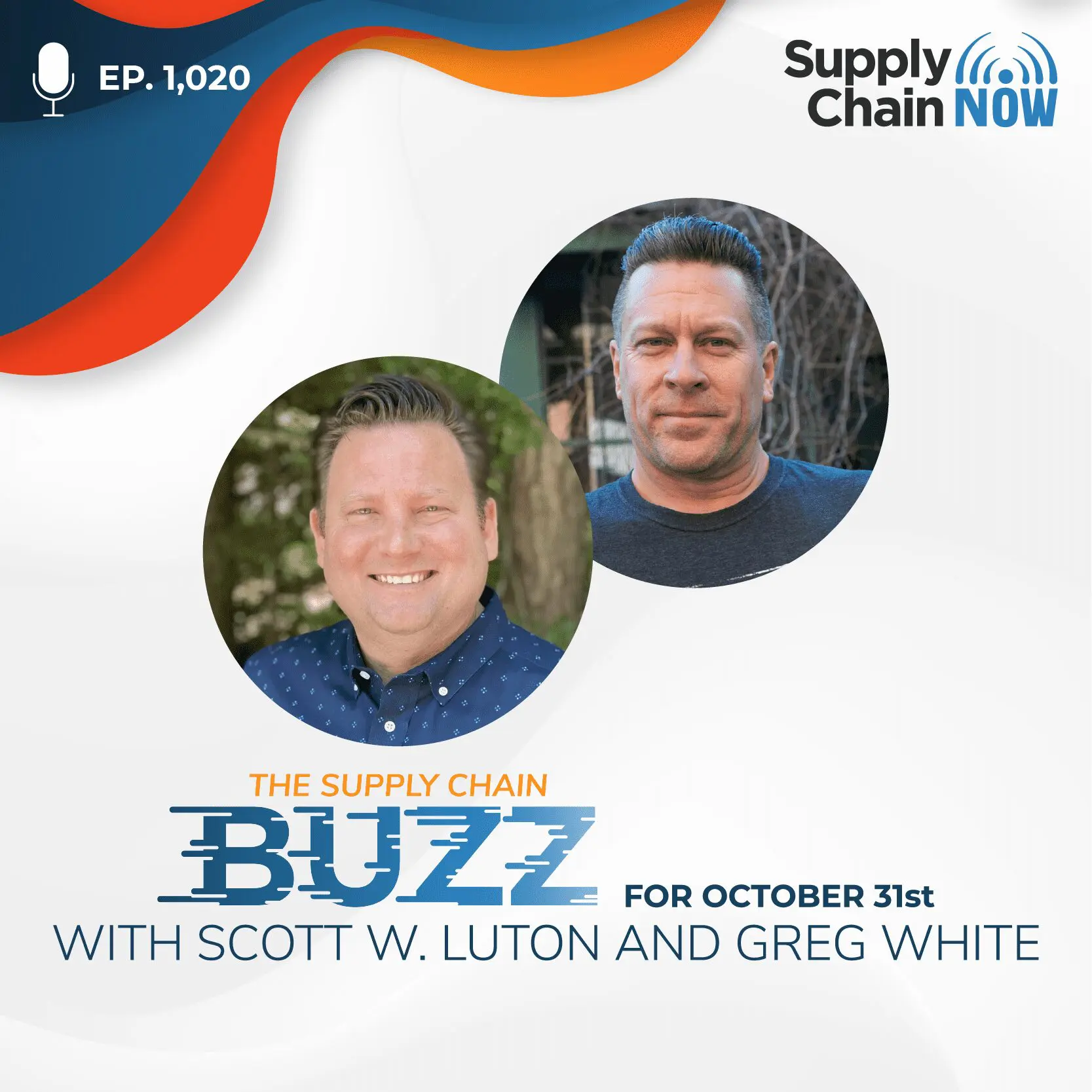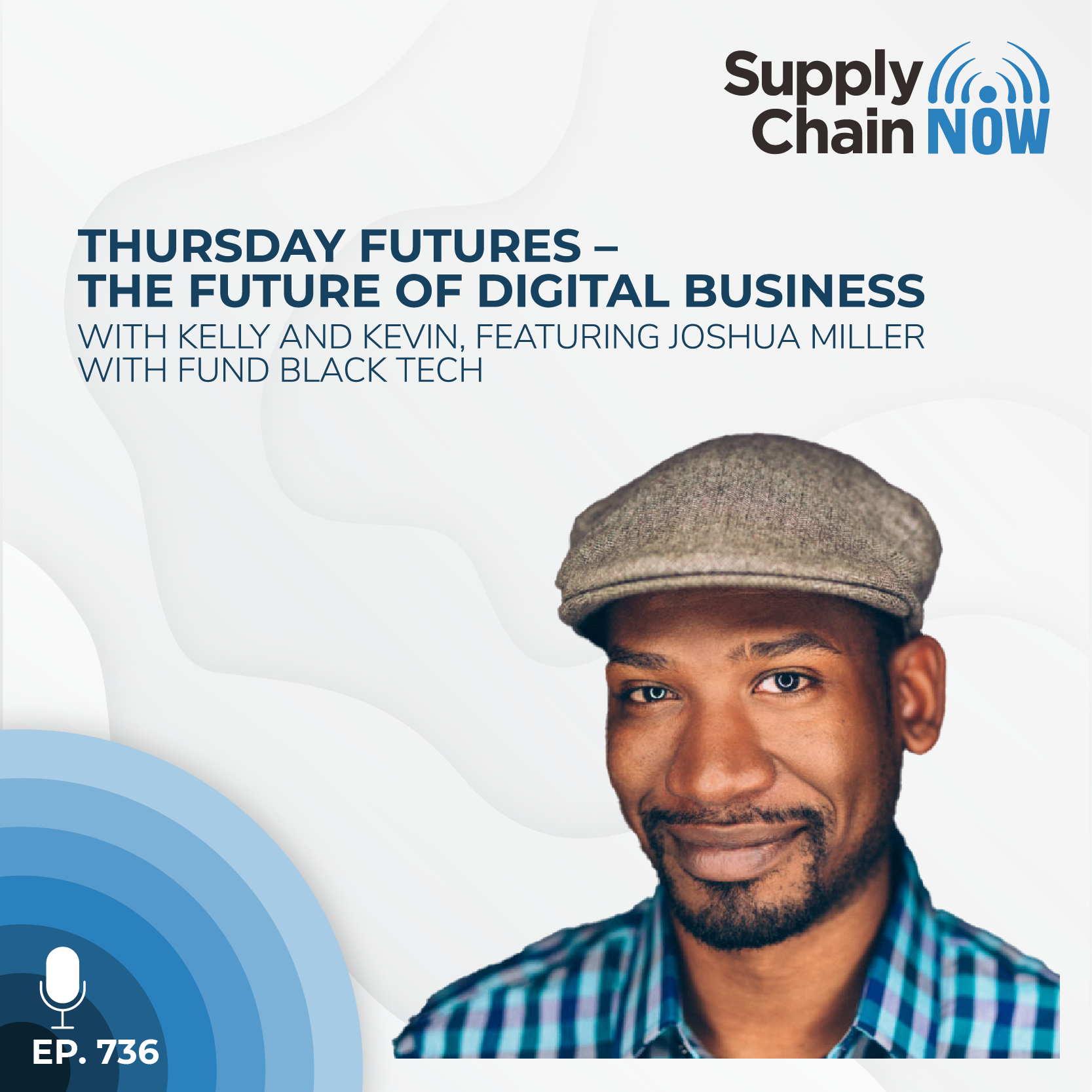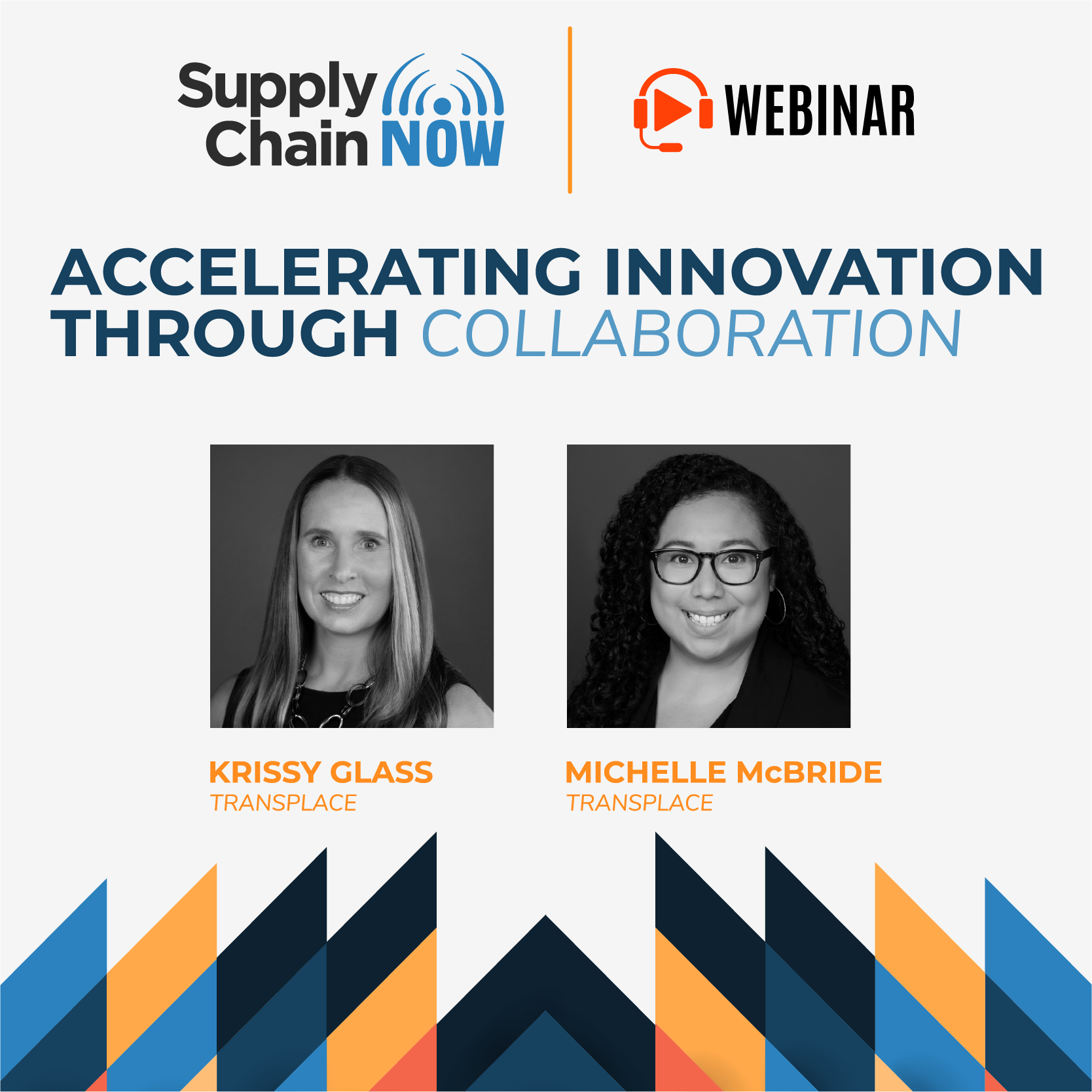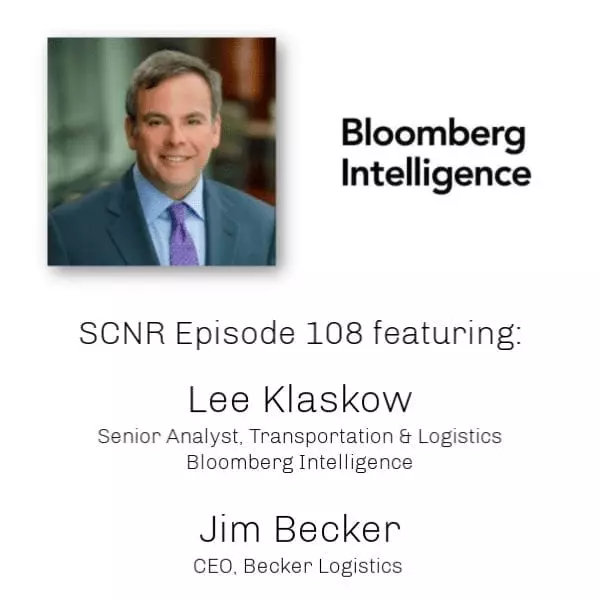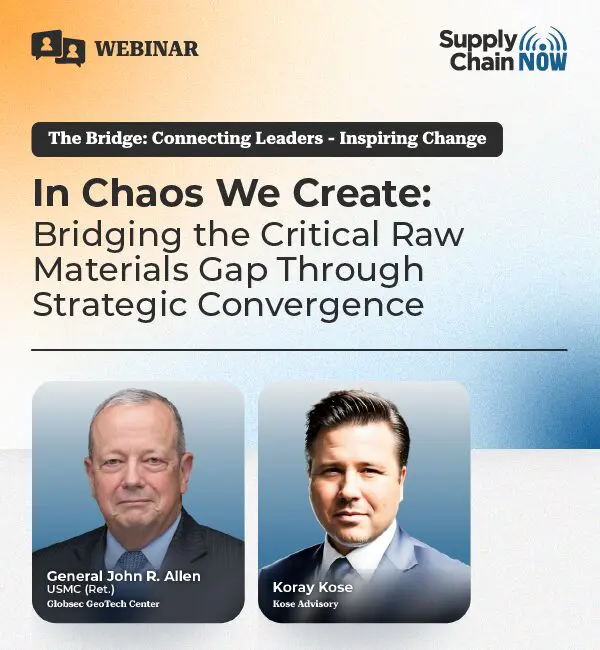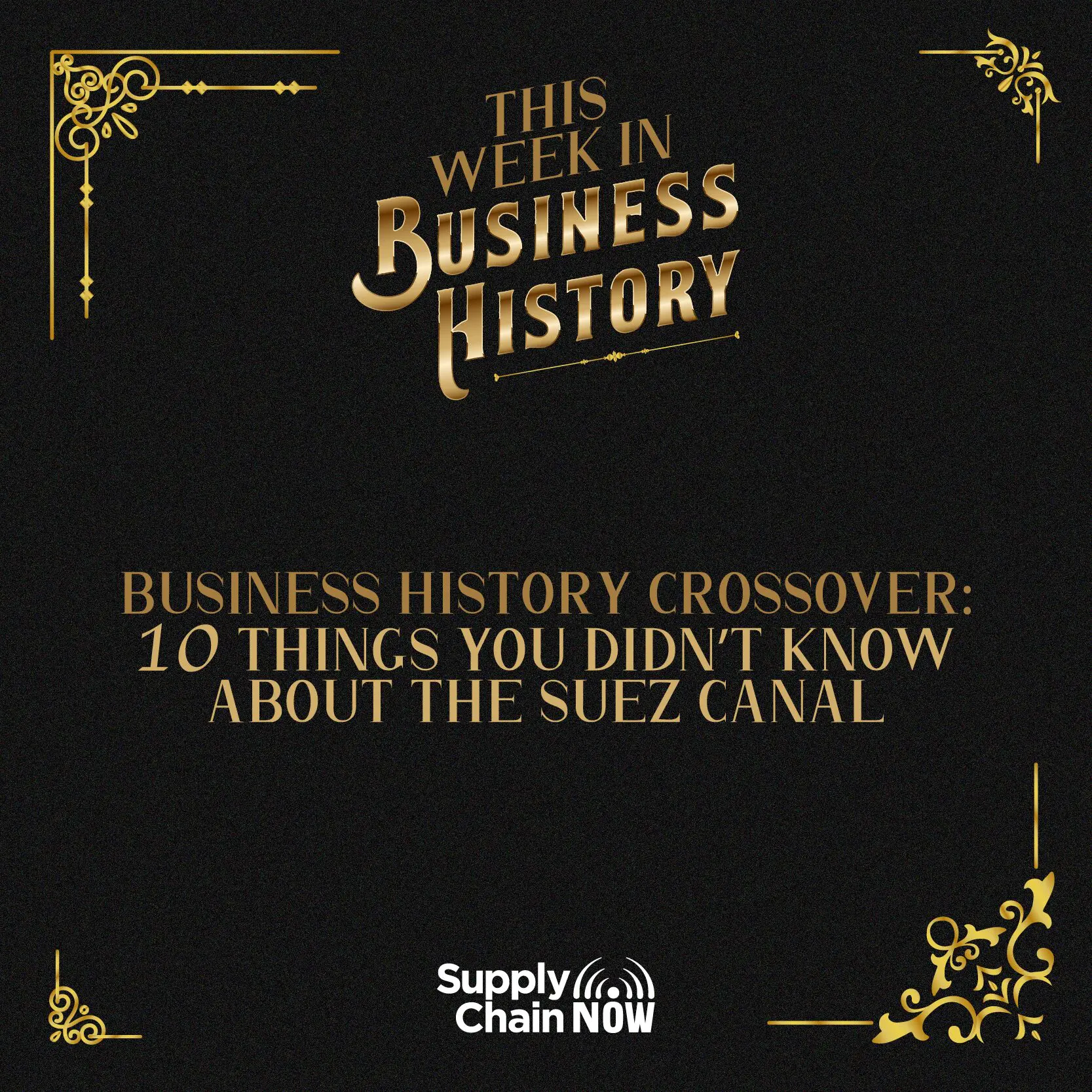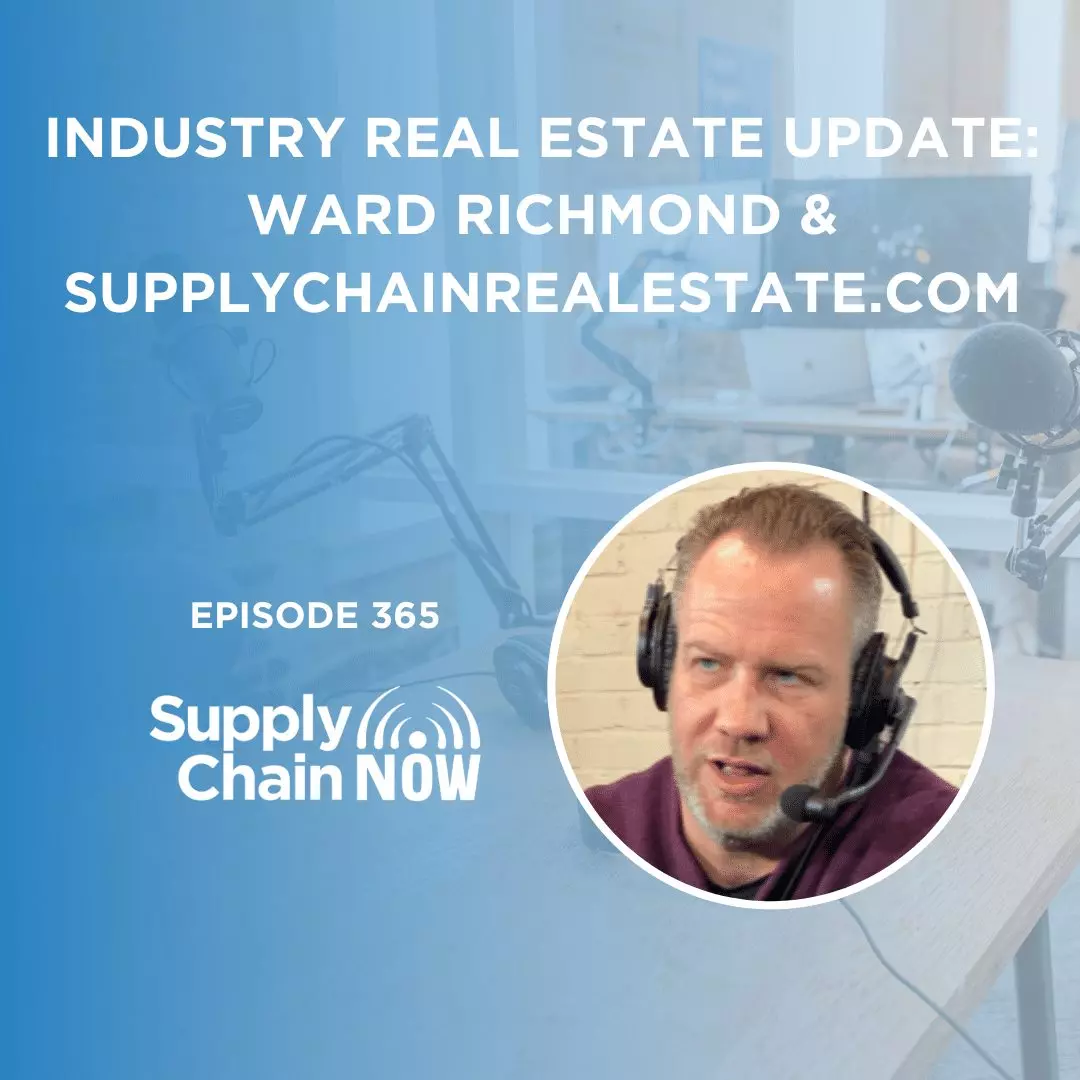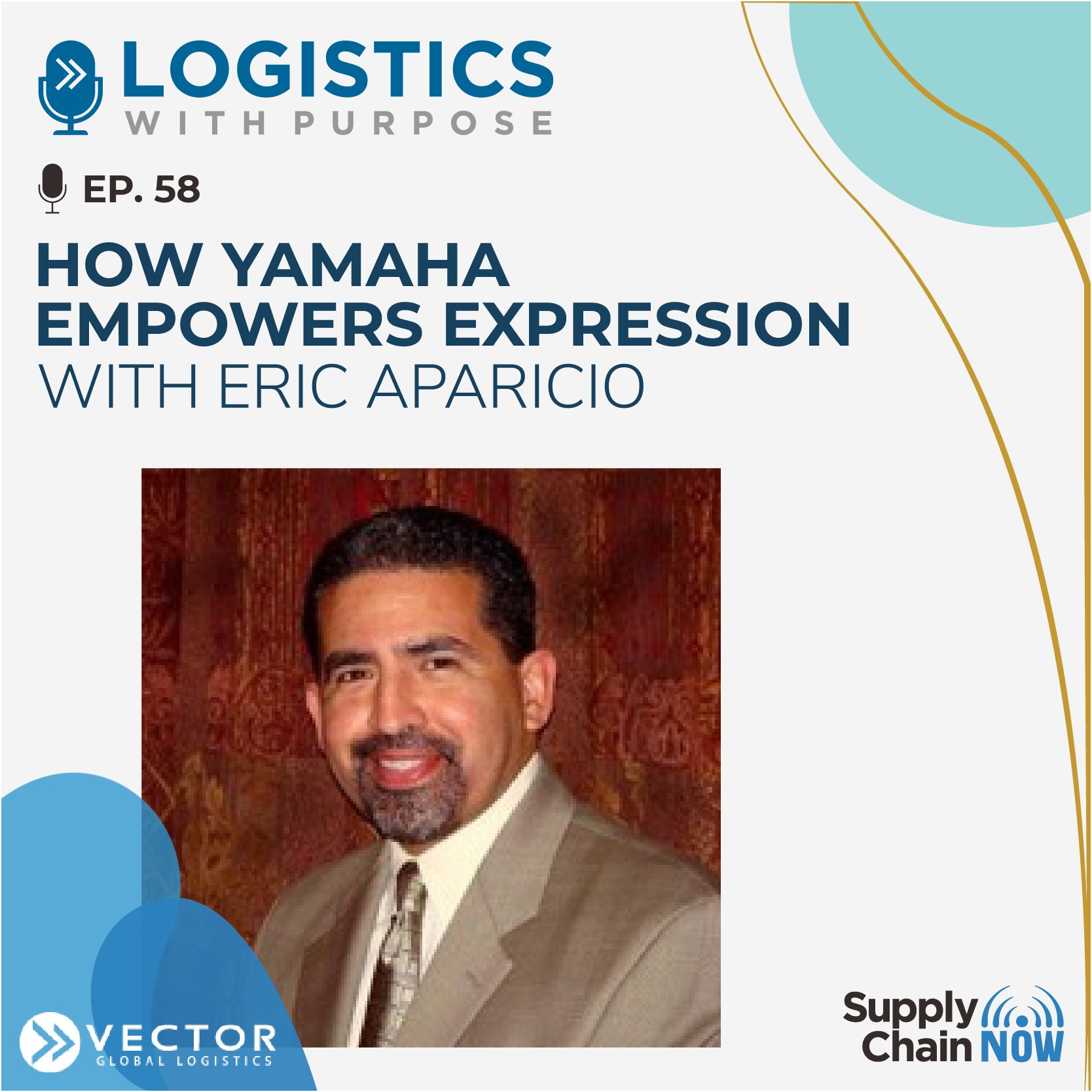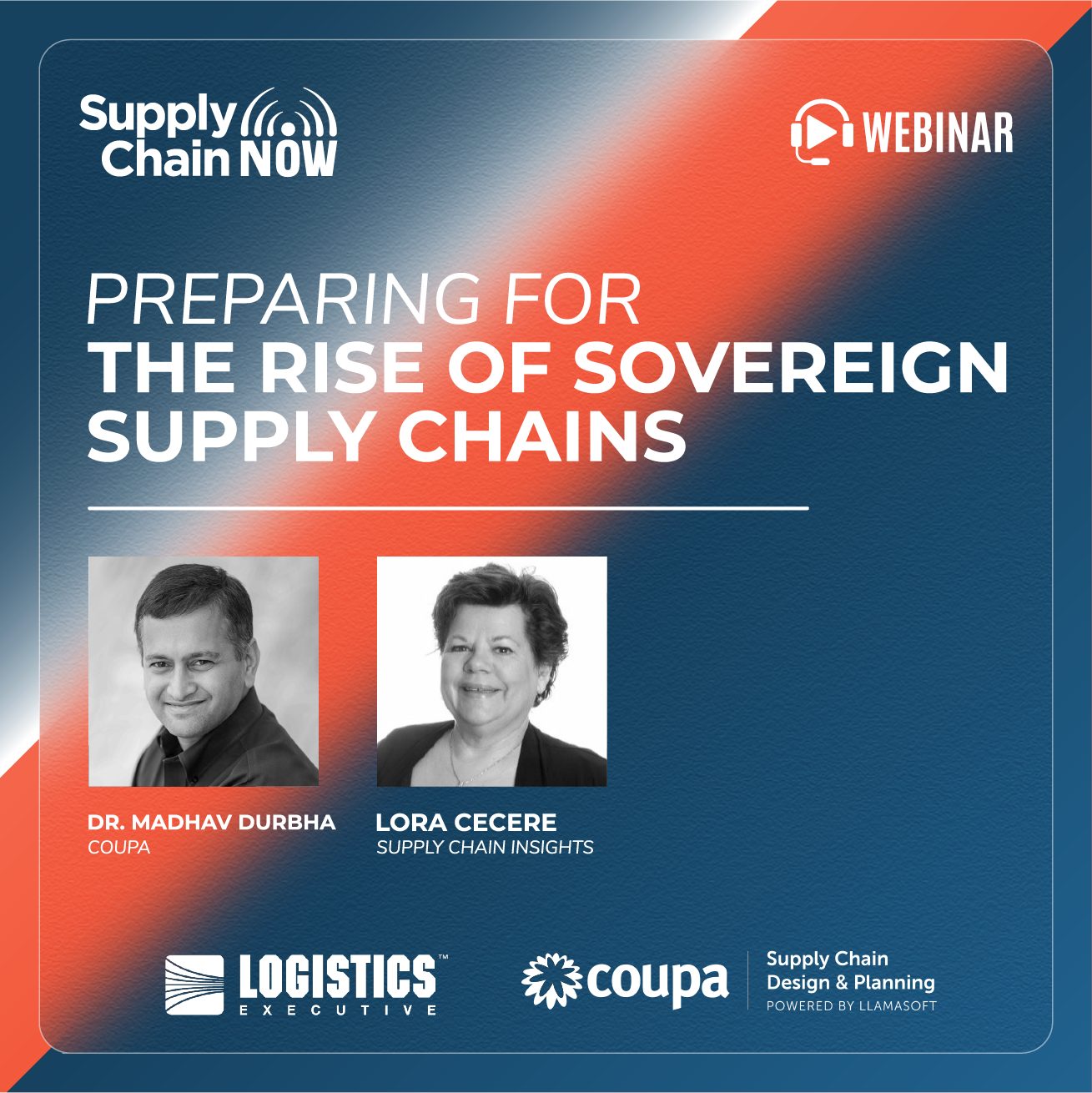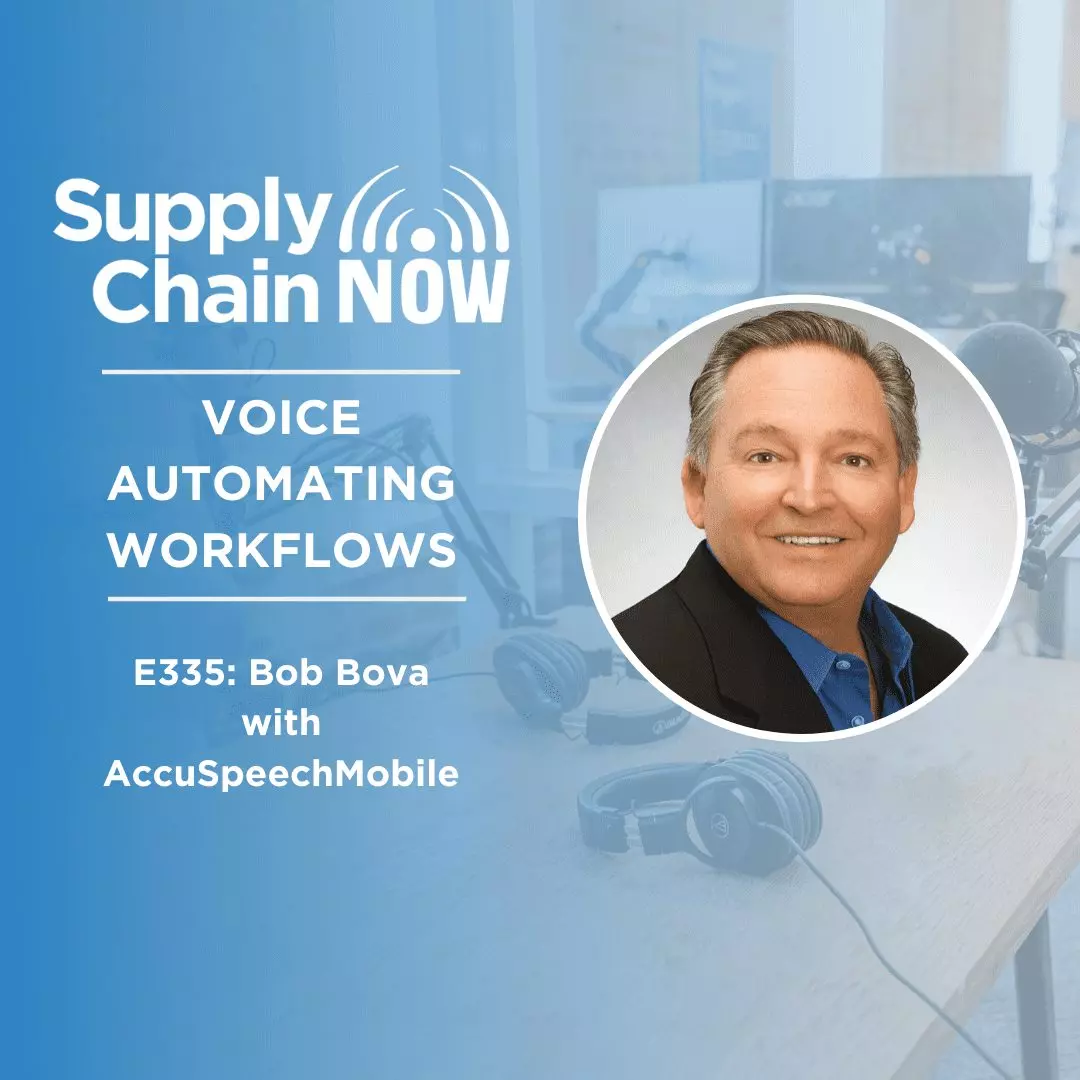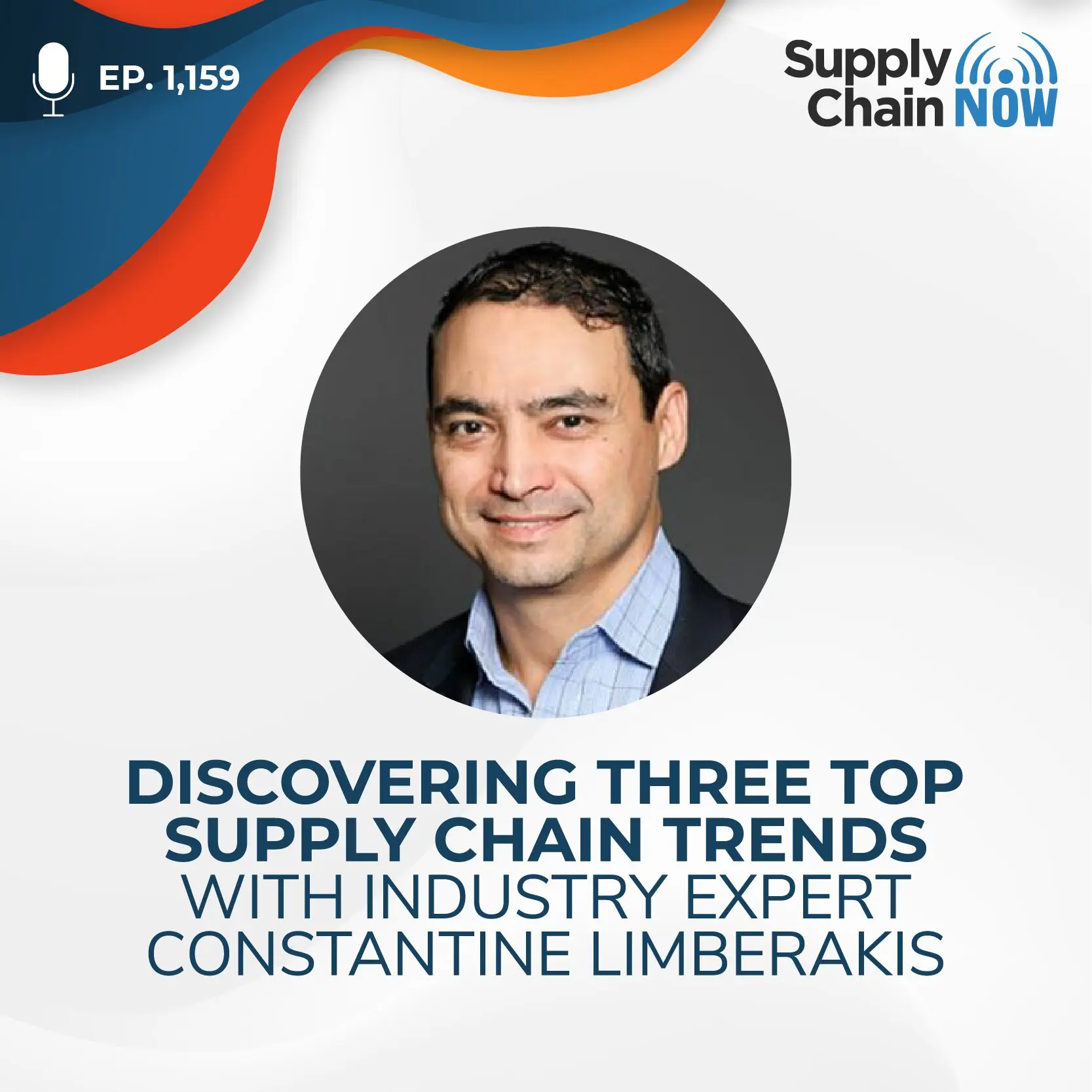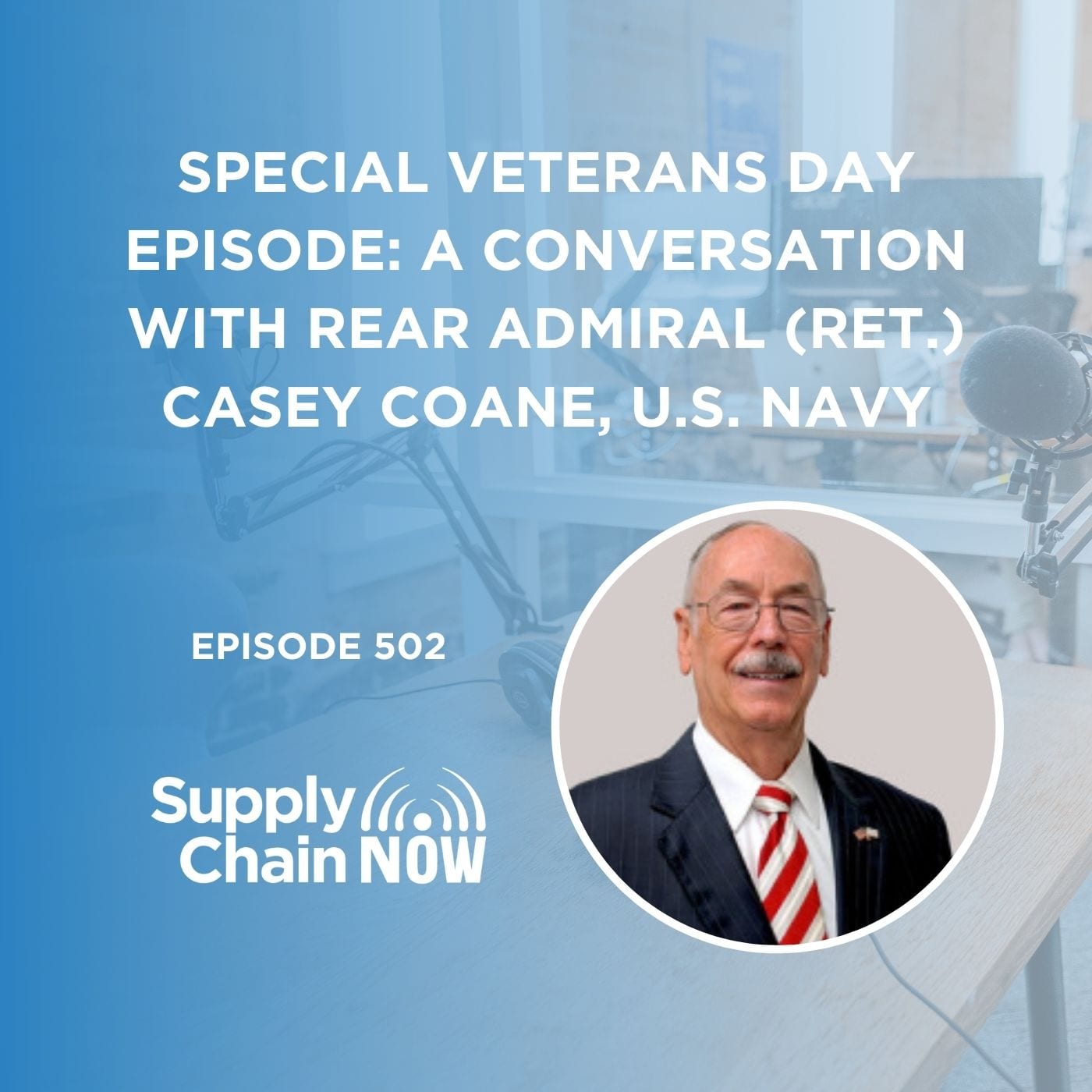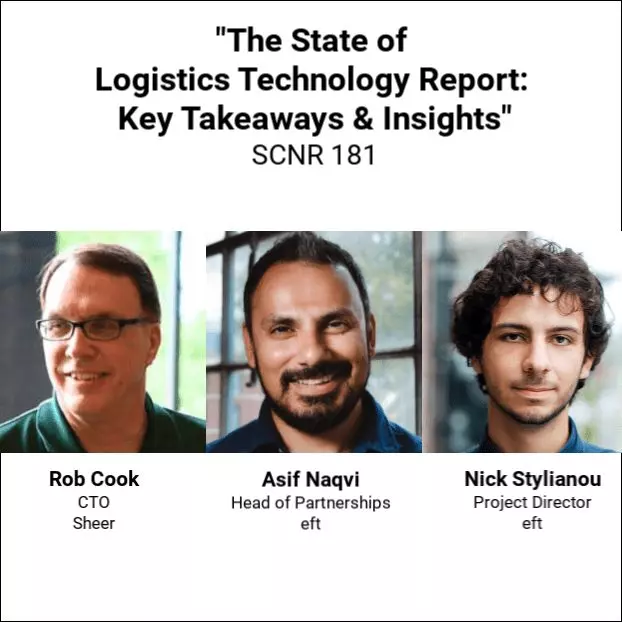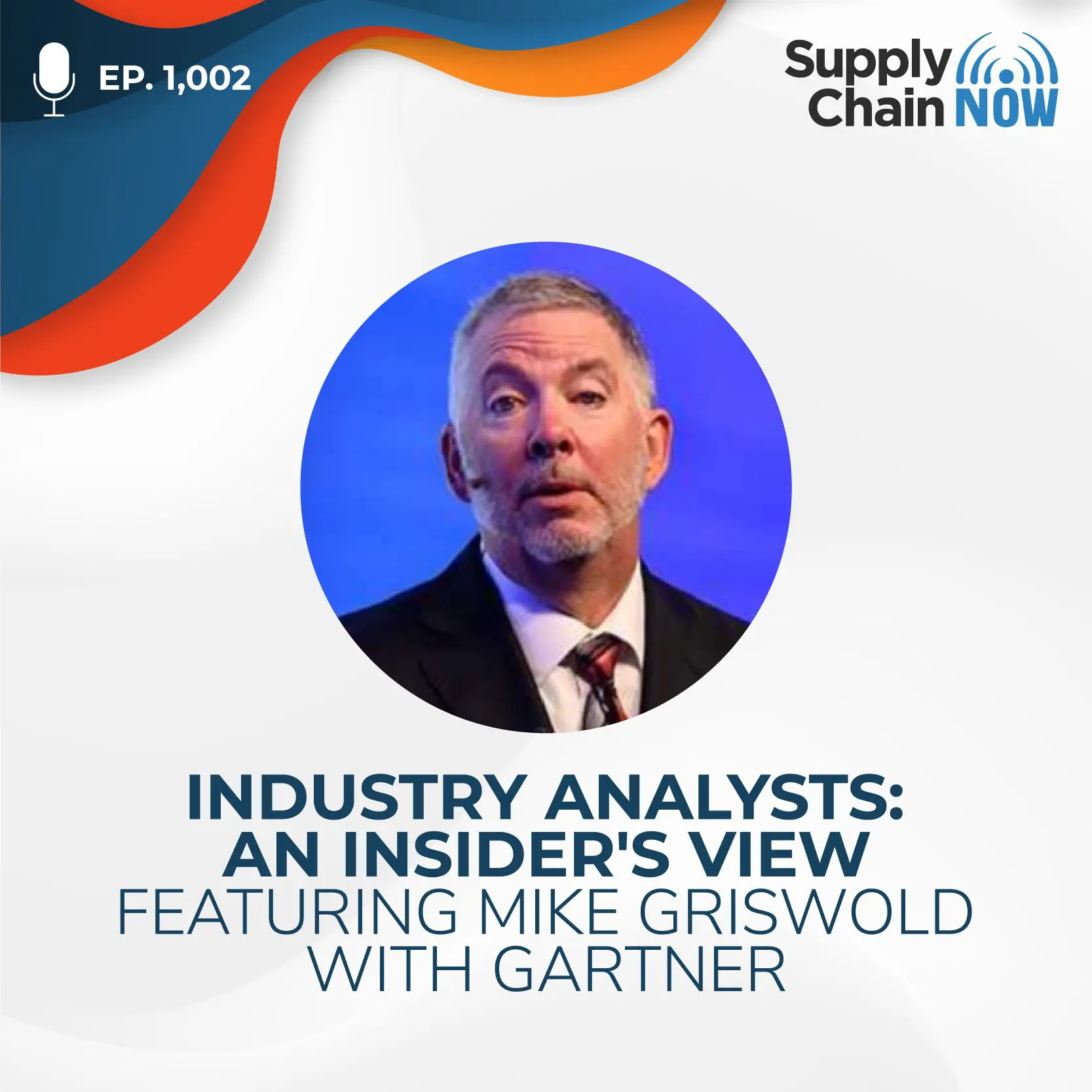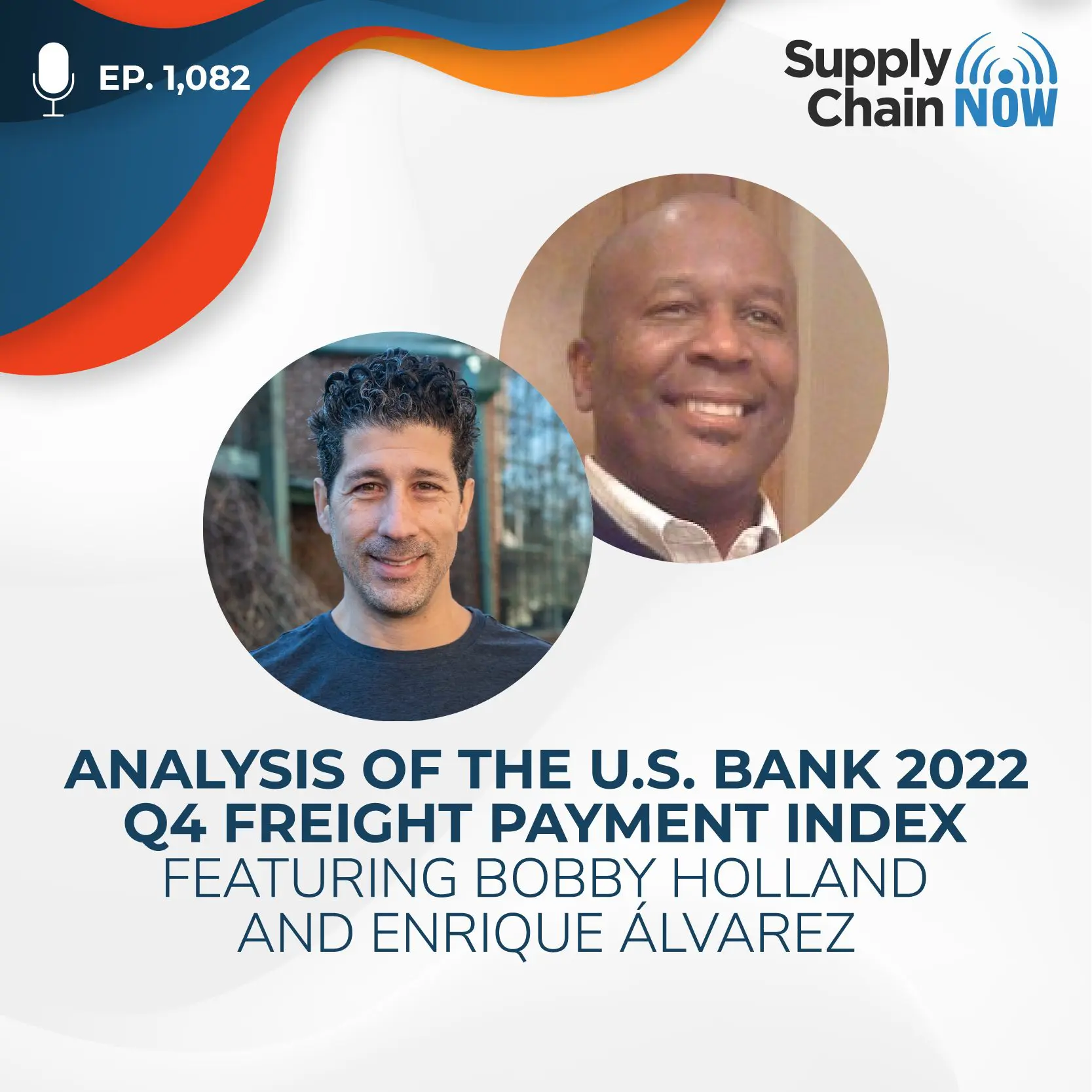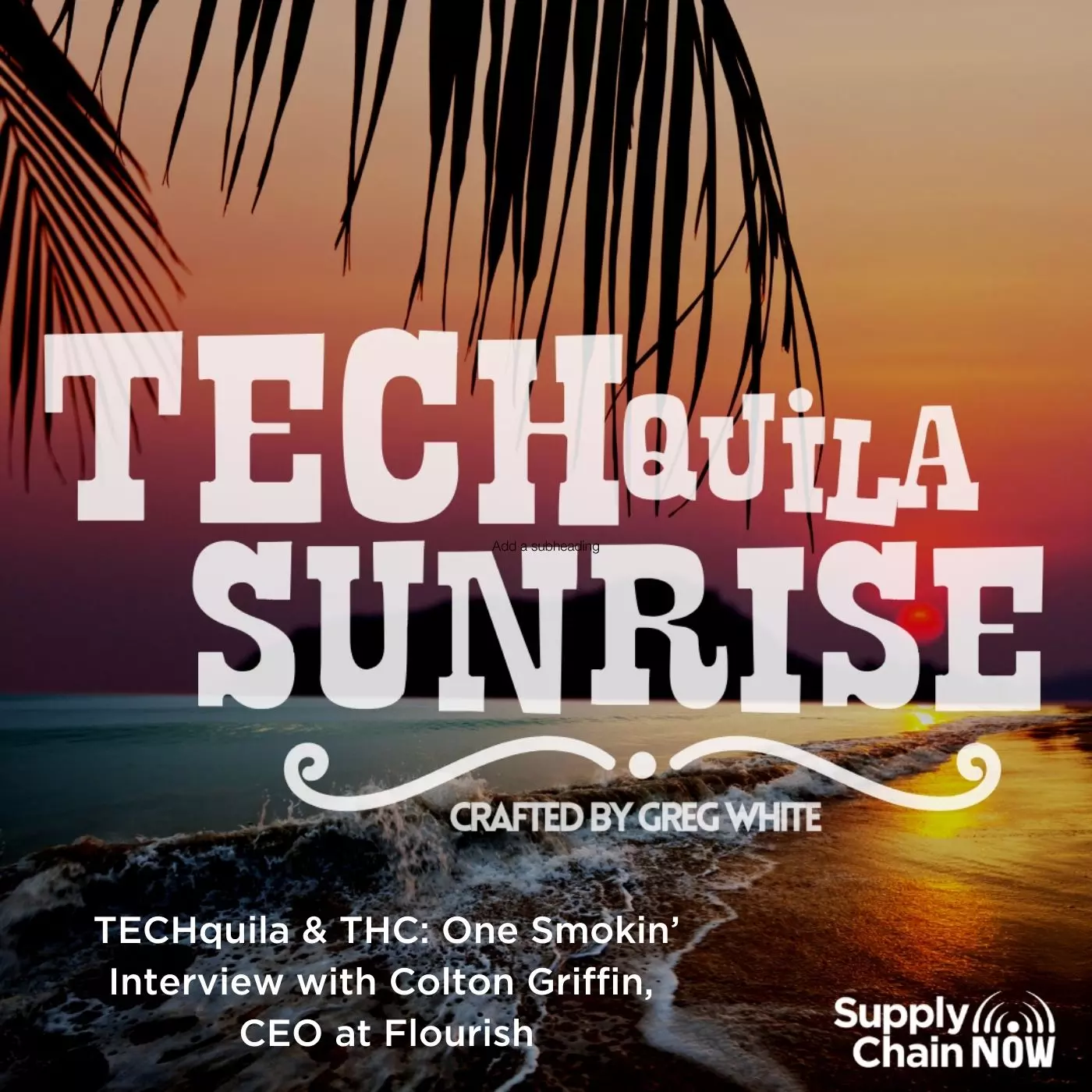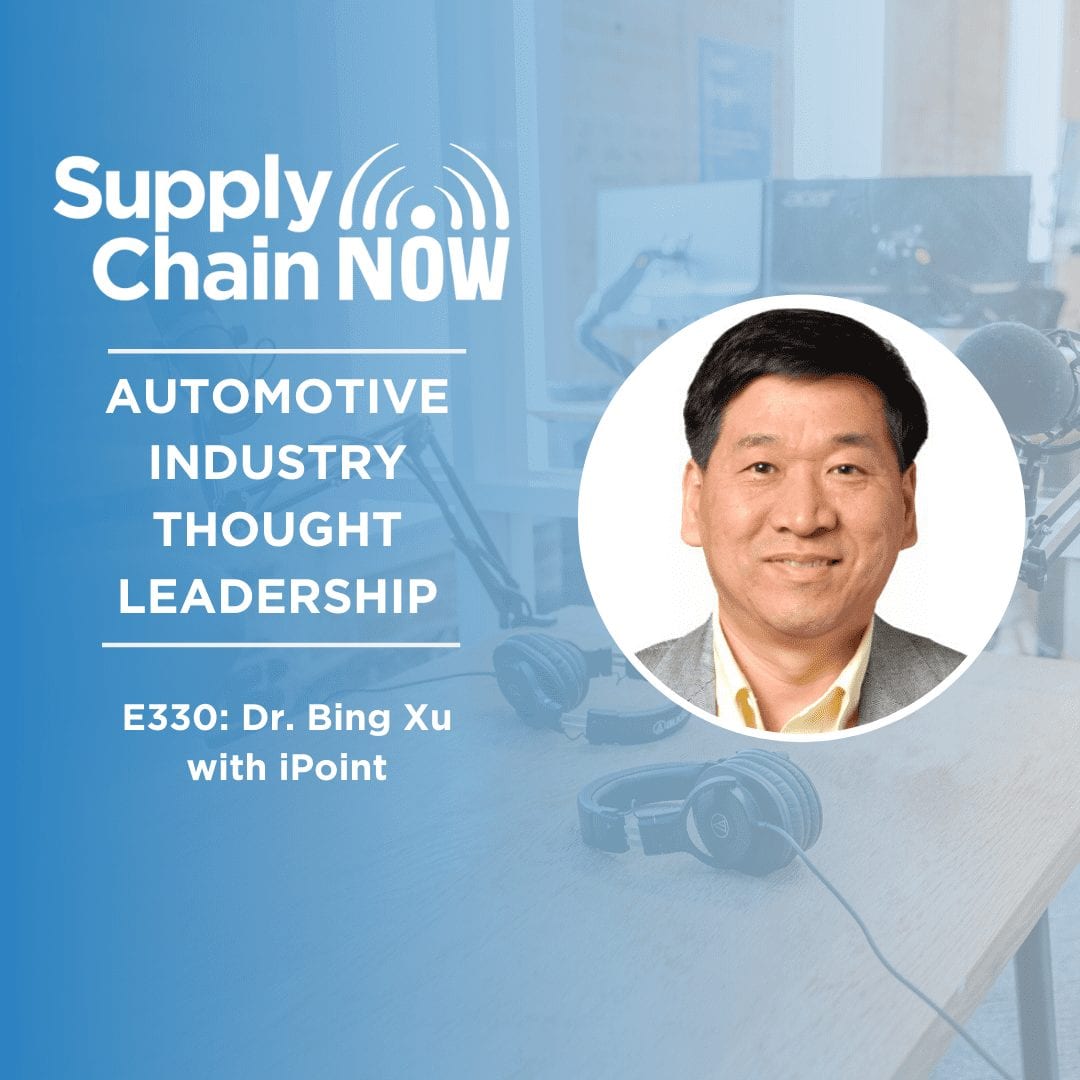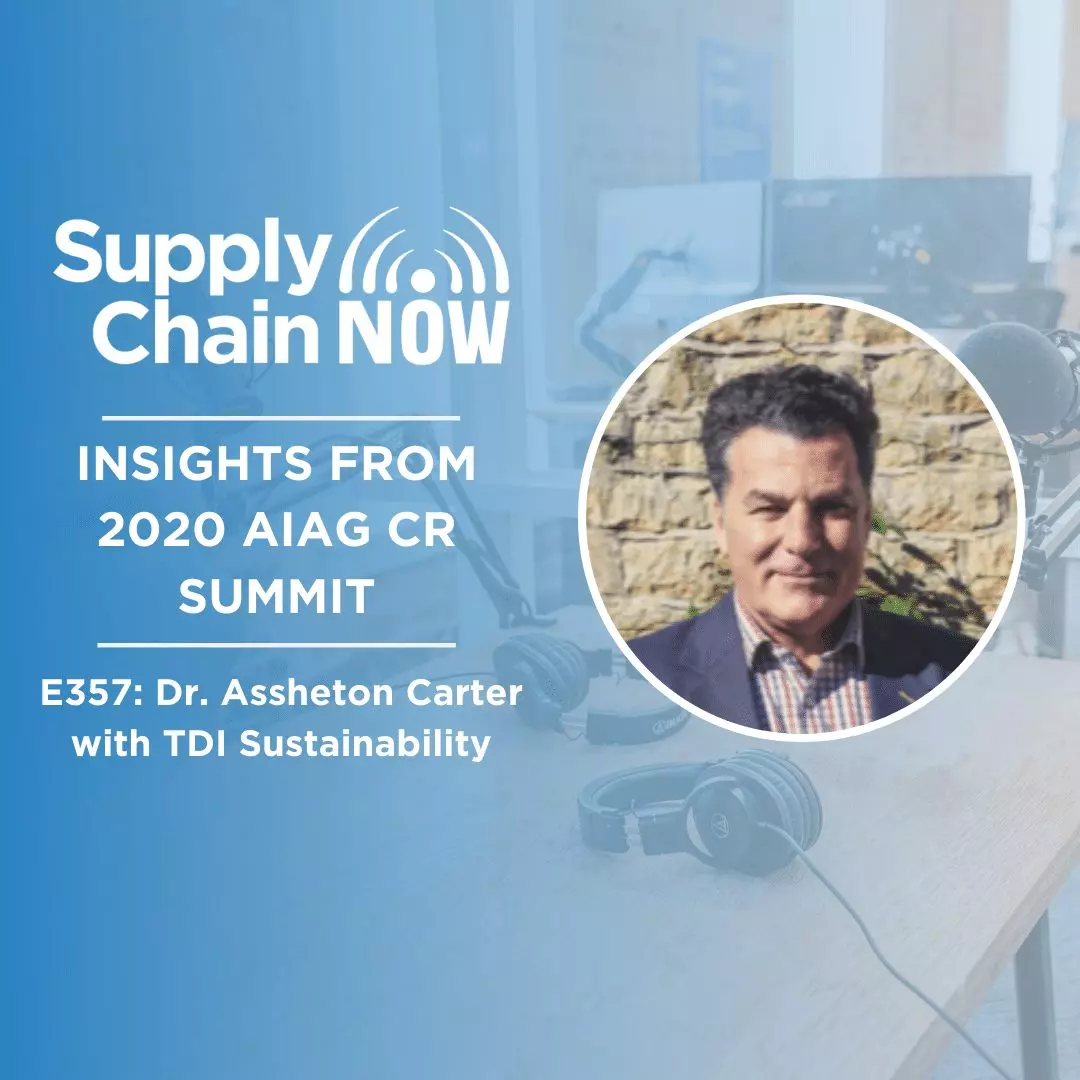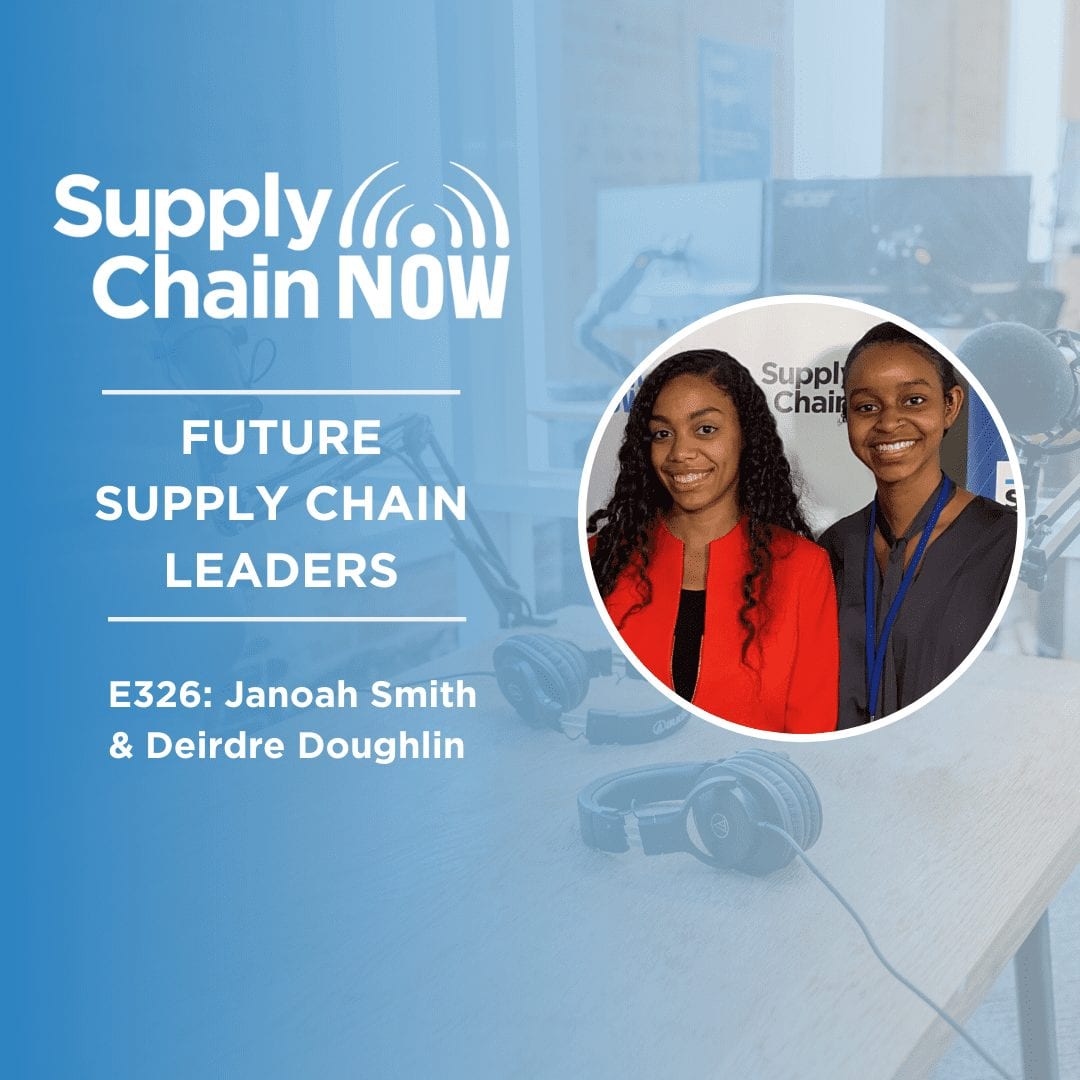[00:00:05] It’s time for Supply Chain Now Radio. Broadcasting live from the Supply chain capital of the country, Atlanta, Georgia. Supply Chain Now Radio spotlights the best in all things supply chain the people, the technology’s the best practices and the critical issues of the day. And now here are your hosts.
[00:00:29] A good EFT new Scott Luton here with you, Liveline Supply chain. Now, once again, welcome back to the show. Now what a great show we have lined up here today. We’re featuring an incredible business leader. We’re big fans. That happens to be a world record holder. More about that in just a minute. Quick programing note, like all of our series on Supply chain. Now you can find our replays on a variety of channels, Apple, podcasts, SoundCloud, YouTube, Spotify, wherever you podcast from. As always, we’d love to have you subscribe. You don’t miss anything. Let’s think a few of our sponsors that allow us to bring these best practices. Innovative ideas to you, our audience. Cap Gemini. U.S. Bank Apex. Atlanta Supply chain. Real Estate dot com manymore. You can check out each of our sponsors own the show notes of this episode. OK. With no further ado, let’s welcome in my fearless, fearless co-host for today’s show. Mr. Greg White Supply chain. Take newer chronic disruptor, trusted advisor. How you doing, Greg?
[00:01:29] I’m doing great. Ben, you are really getting into that intro now.
[00:01:33] Well, it’s funny. Last upset. I tried to throw him off with a little. I tried to sing one little falsetto there. Yeah, it failed miserably. Don’t do that again. Yeah. Thank you. All right. So we’ve got a great guest. We’ve been working you know, this has been in the works for quite some time because our featured guest today was such a integral part of really the genesis of all of our digital media production and again, and thought leadership and content production. And and, you know, things get busy. Life throws things at you, at work, takes you here and there and everywhere and family, everything else. And it is such a pleasure to have the one and only LBA per hour. Gallagher back on the show. Elba, how you doing? Doing great, thank you. So when we kind of tease and we’ll establish who you are in just a second, but we tease our audience kind of that your world record holder and you are you still have the number one most appearances on Supply chain now. I can’t I really can’t believe that.
[00:02:26] And you bring Nicole Nicole, right. And you took and you took a pretty good hiatus towards the end of last year or so. Yeah. Yeah. But I’m back. You’re back. It’s a new year. A new decade.
[00:02:35] You’re back with a vengeance. Yes. So let’s hit that change in the world right here. I said to our audience, I say. Yes, we read. If we go out now, it’s just now. Just now. Yes. We’re taking a slow re-brand approach. By the way, I have to admit, you have come a long way. Scott Luton. I remember when our early ones trying to plug things in and figure out how all this equipment worked. And now look at this fancy white meant in a cool place. We are in a warehouse. This is like so hip.
[00:03:04] Yeah, we’re going to have to we’re gonna have to play this for Michelle Livingstone. Yeah. Who was the inaugural guest on our first livestream on linked in? That’s right. And she watched us plugging things in a bit as we were as we were getting ready.
[00:03:17] Go lie breaking through. Hashtag Startup Life Day. Right.
[00:03:21] So for our audience members that may not have caught let you know, one of the twelve thirteen episodes Elba’s been on. Yep. Let’s establish who she is and then we’ll talk more about kind of her her journey. Elba prah Gallagher, director of Finance for U.S. Domestic Business Unit with U.P.S. iconic Supply chain Super competitor based here in Atlanta. And equally as important, founder of Show Me 50 dot org, which is a nonprofit focused on increasing women in leadership. And I’ll tell you firsthand that LBA and Shumi 50 we are. You kind of mentioned her role in our early podcasting, but, you know, huge eureka moments for us and several colleagues from our time volunteering in different industry associations and really helping teach us what you know. What? No one knows. No one knows what you don’t know, right? You don’t know what you don’t know. But you’re really helping spread that awareness of things that are right up on your nose, but you just can’t see it. Yeah. So looking forward to talking more about that and here today. Gregg, we’ve been talking about this episode and yeah, Elba’s record, the record breaking time here. She’s extending her lead. Yes. All right. So let’s start, though, with the basics. So we’re going to we’ve got three leadership topics. We’re going darvin to be here in a minute. That that, as always, Elba’s known for that bias for action. And so our listeners will appreciate that. But for starters, LBA, tell us about yourself. Tell us about where you grew up and give us some anecdotes about your upbringing.
[00:04:53] Okay. Well, I was just talking before we started. Yeah, we both have some. Some background outside the country, actually, Argentina and myself, I was actually born in Venezuela. My parents are Colombian, so I’m an immigrant. Came over as twice.
[00:05:10] Really? Linfen. Yeah. Yeah. Yeah. Not not dissimilar to my family.
[00:05:14] And I mean, I’m also an immigrant in another way. If you think geographically here within us, because I started out in Queens, New York, and then kind of immigrated to Baton Rouge, Louisiana, and you can imagine that was kind of a cultural awakening for everyone involved.
[00:05:31] Yeah, I can imagine, you know, a young kid coming with a Queens accent to Cajun country.
[00:05:37] There were some teasing going on. But really, I think it made me stronger. And I think that’s the beauty of inclusive leadership and having inclusive teams and diverse teams that have all kind of crazy backgrounds that can really, you know, I feel like I’m a pick myself up from my bootstraps. Yeah. Based on that kind of experience. And it has continued on throughout my life.
[00:05:56] Let’s. Earlier, I know in the previous conversate interviews that you’ve talked about some of the early role models that played a big part of your you know, your upbringing. Tell us more about that.
[00:06:10] Yeah, I think teachers played a big role in my life because having parents who didn’t know the American system and didn’t have connections and networks, I relied on teachers in elementary school and college, also bosses early in my career who really helped guide me. And so when I think of role models, it was really people in the American culture who kind of taught me the ropes that I maybe not. Was wasn’t getting at home. Yeah. Yeah. Right.
[00:06:40] So when you say folks you worked for bosses, managers would have you give us one trait that maybe might be obvious to some people, but it’s just not done yet of why they were role as a wife.
[00:06:55] Yeah. While they were effective. I love that question. Right. Because sometimes we hate to like I don’t want to name specific people. And I think it’s traits from different people. But you know what? I think the people in my career who had the traits that made a difference, I’d give the trait sharing, meaning they shared information and they were very transparent. They didn’t hoard the information. Everything from how do you get ahead? Who’s a hot button topic or who has a hot button topic? Yeah, it was the people how to navigate or willing to share openly and come at things. My mindset is a mindset of abundance. I think there’s enough to go around. So share with people and then you help yourself and you help them. So I think that’s a trait and in the role models.
[00:07:41] So what with sharing? Do you believe, sir, that we hear a lot about being vulnerable and not getting in a cheesy way? But I think one of the reasons why folks hoard information, even in this day and age, when consumers in companies in the world is demanding transparency is because they feel threatened in some way, shape or form. Speak to that a little bit.
[00:08:03] It’s so unfortunate. You know, you described chronic disruption like chronic disease. You want a world where there’s tension and competition. Right, to get ahead. And and so I think that you’ve you’ve got to share the information. And and that’s what really makes it successful and be OK with sharing and being OK.
[00:08:33] Go back to your your your world view of abundance. It’s not a Zero-Sum game I use.
[00:08:39] My life is not a zero sum, right. There is abundance and there’s enough to go around.
[00:08:44] Right. And, you know, I’m startled one time. If you can believe it, even somebody that might be considered a mentor was giving in. This is great. Giving me candid feedback that maybe one of my challenges was that people found me intimidating. But I don’t think, you know, you’ve known me so long. I’m a very loving, giving person. I’m hardly intimidating, but I think they were coming out of it that I knew too much. I knew more than them. And the high level people. And they were intimidated that the. I knew more than I think also.
[00:09:16] Look, you’re really matter of fact person. And a lot of people can’t handle. Matter of fact, people look, I know that when we were just having this discussion about we can’t just have this discussion right now. But I get it. I mean, I know you’re coming at it, coming at a discussion from a place of well, I don’t know what else what what to call it, but of joy, guidance, love, whatever you want to say. Right. But but you say it so matter of factly. I don’t think everybody gets that right. You can appreciate my candidness here. Believe me, there are a lot of people who don’t get there are a lot of people who are pretty matter of fact.
[00:09:50] Yeah, well, Greg kind of continuing the journey and he had some questions around Elba’s professional journey. All right.
[00:09:55] Yeah. So I’m just interested in, you know, kind of. How you how you became who you are and. I mean, not just the roles, but some of the moments or influences that you experienced.
[00:10:11] And I do love talking about it because I do work for a very large company, right? I mean, not too many company employee companies employ over 400000 people around the world.
[00:10:22] And it’s presented tremendous opportunities. And I’ve, you know, been right up there and raised my hand and and taken them on. So, yes, let me share some of those with the athletes. So our entry level work, by way, up. Right, started in Toronto. No, not that early. But I did start in finance and international and worked my way up through several international finance roles. And eventually that led me to the first sort of big milestone, which was I got an expat assignment living outside the country for UBS in Asia. And that was absolutely phenomenal where Singapore and Hong Kong. And it was three years of blood, sweat and tears, I like to say, because I worked my butt off there. Yeah. But it led to a promotion. And so that was pretty exciting. Hard work pays off, but you have that tradeoff. And we’re gonna talk later about boundaries and and tradeoffs. But that was a big assignment, came back to the U.S. and then my next big my milestone was investor relations. So I had the incredible opportunity of seeing my company from the outside point of view, not just internally focused and also getting to see across the entire breadth of the company, which was incredibly powerful for my own learning and my ability to give back to the company itself.
[00:11:43] And you had to represent the company in that role. I mean, yeah.
[00:11:45] It’s certainly not me on my own. And I wasn’t the top. I wasn’t the chief investor relations officer, but I was right there supporting them, you know, making sure the messages we prepared were both accurate and and on helping to grow the company’s message. Yeah. So that was cool. And then I landed in another amazing role, which was e-commerce strategy. So as we all know, as I’m sure we are sure. Avid shoppers online. Right. That was an incredible role. We started a original team to try to figure out what are we going to do for the next five years. And so I was really proud to participate on that team. Super exciting. And I gained lots of information about e-commerce and being a finance person. And now in marketing and strategy, at the time, it was it was a great learning opportunity. And then more recently, I kind of came back to home base to finance in the U.S. domestic segment as internally known as a controller, and it’s really finance director of finance. And we basically take a look at all the information and try to help our leaders manage and make better business decisions.
[00:12:53] So I have to ask a question that was we’re seeing in Hong Kong where those you’re only outside of Atlanta.
[00:13:00] I also did a special assignment for six months in Miami. Okay. Well, that was awesome.
[00:13:06] Yeah, that’s not bad at all because I’m fluent in Spanish and it was great. Loved it.
[00:13:11] Awesome. And after being in Singapore, you’re used to humidity.
[00:13:14] So both Miami and and growing up in Louisiana, Baton Rouge. Yeah, I mean, that’s a good point.
[00:13:22] All right. So let’s talk about shimmy fitting. Yeah, we’ve we’ve had a lot of folks from u._p._s on. I think a lot of our audience members now, you know, obviously a big, big company, one for me was what they do totally spend this time diving into what I know is an equal passion of yours, which is a show 15. This nonprofit wants to tell us more about what it does and why you founded it.
[00:13:45] Absolutely. So when you talked about me a little while ago on today’s content, you said, since I’m so action driven. Right. And I am. I’m all about action. If you have a problem, if you see something that needs to be improved, you can’t just talk about it. You got to strategize. What am I going to do to actually make change? And that’s what I’m really good at. So back in 2014, I get so frustrated by what I was seeing all over the marketplace around opportunities for women and transparency and talent management processes. And so I took about two years to really become a subject matter expert and study bias and H.R. management systems processes and to try to understand how the heck we can make a change because it’s like this huge problem. How do you. Yeah, how do you increase the representation of women? Right.
[00:14:35] So if I can play devil’s advocate for a second, because as we featured Shammy 50 in its mission and went to events, it really like you described try to become more versed and educated on all these these tough topics and at times can be really difficult. Talk about, right? Yeah. How would you share with some some of the folks may not have taken that those same learnings and. Hey, you may not ethics. You know, there’s a few folks we talked about it kind of. That may a few folks that may not have experienced similar things. How do you share the rest of what goes on with folks that may or may not just have that same level of awareness and not want to bring that question on you, Bill? I feel it. Yeah.
[00:15:21] So, again, the problem and the way we fix this is so complicated. It’s something called a Sydney S.I.D. And I have a complex. Ill defined, non immediate problem. All right. Complex, big ill-defined Froome, not immediate, you know. Yeah, and he’s happy with their positions. Hey. And it’s no problem, right? Yeah. So is Sydney. So when you have something like that, you’ve got to break it down into small pieces. Right. So I like to think, first of all, show me 50 really about show me 50 percent women leading. And the show part is what’s critical because we hear so much talk. But it’s like the numbers aren’t moving, really. So they aren’t moving there, aren’t there? We should be around 1 to 2 percentage points a year. And what I mean by that is the percentage of women in senior leadership positions, director level and above.
[00:16:22] So and so where does that put the numbers now?
[00:16:25] Right now, it’s about 24 percent of senior leadership positions are held by women. And how many percent of women work? That’s safety like 52. Well, I think. Yeah. And even in the women, as peers, as professional, there’s 52 percent women. Right. And so I think we can get over the fact that women aren’t qualified. Women have been graduating and graduate programs more than men for a long time. So anyway, so bottom line, it’s very complicated. And so it’s two parts.
[00:16:55] One, as are employees and forget women and gender just and employees must take control of their own development and work ethic and performance. Right. That’s number one. That’s 50 percent of the equation. Do your job. Do it well. Be better than others. Elevate your performance.
[00:17:13] But even when people do that, there’s this other side of the equation. The other half is the processes within companies that are inherently bias and companies aren’t putting in place the checks and balances that are known to fix the problem. And so what we talk about is starting to share with people. Well, what are those four things that would fix the problem? Yeah, right. And a very first one talks about bias education, specifically gender bias. So I think to your point, Scott. Yes. That’s where over the time that we’ve worked together, I’ve helped to educate people on, hey, you know, did you realise that this kind of behavior is happening and how could you do your part race in on that?
[00:17:54] Now, just to give a very small example so I won’t interrupt you from Sherkin now or some of the common clichés and expressions.
[00:18:03] Oh, my God. Like, oh, my God, like we say why we won’t be ready. Oh, it’s so funny. And this have. Are you looking the thing when I go? You can both sound all but said, well, there’s two great stories.
[00:18:14] But the what I’m thinking about, it was a person who was we love this person and they just weren’t really thinking about it this way. But they described the women who are at the what do you call the events where you match?
[00:18:30] Tracy, I know you have mixed words, phrases, and they would bring a very attractive woman and, you know, very dressed, very attractive. And so he called them Buth Babes and to double down.
[00:18:45] We do love this person. We all love this person. And to your point, also, these are learning opportunities because so much of this is said without no lutely will know in the middle.
[00:18:57] It’s lack of awareness. And this is one of the biggest problems.
[00:19:00] And what we do is show me fifty is we teach men and women how to have these common casual conversations and feel more comfortable in uncomfortable situations. Yes. Right now, there’s a movie out just Marci and the the founder of the Equal Justice Initiative is named Brian Johnson and Bryan Stevenson, sorry. And he has this thing about four ways to change the world. And the one the first ways is to get proximate to what you’re trying to change. You have to get close to it. Right. So when we’re trying to change these things, we have to agree to get close to each other on this topic and get uncomfortable and inconvenient places and just have a talk and not judge each other.
[00:19:38] That’s and that’s where it really put it, where I’ve seen you bring so much to the table in our interactions because I’ll be the first to raise my hand and south put my foot in my mouth so many times. And there never, hardly ever is ever any ill will. It’s just. There they are, cliches or phrases or whatever that are just in your brain, they’re imprinted. Yeah. And you just gotta learn how to be aware and self-aware. Yeah. Yeah.
[00:20:05] And delete them and really have the courage to just have a conversation about it. You know, when you have pointed out and again, no judgment. Just say let’s figure it out. Another great tool from Supply chain is asking five whys when you really want to get to the problem. The root cause of a problem. Ask why five times. And I repeat this to to everyone I work with, especially younger people. Just ask why five times. So when you run into an issue that comes up and you’re like, oh, I’m not sure about what they just said. Just to have a conversation about why. Hey, that’s interesting what you just said.
[00:20:39] Tell me more about what does that mean to you? And then you ask again and then all the sudden they’re like, oh, maybe I shouldn’t have said that. And then it’s like, it’s okay. I just want to talk to you about another point of view.
[00:20:51] Yes. You know, so number one. Five years. And I want advise. Almost got me thrown out of my uncle’s car. We did this once. UPS.
[00:21:00] So before we get to the three things we’re talking about, the four steps to address inherent bias.
[00:21:07] Well, it’s is the four things to fix the underrepresentation of women and under represented groups and companies because of the bias talent management systems. OK. So the first one was worse by his size training. Yeah. But it’s not an on the show notes. Yes. We’ll post these. We have a great little graphic that shows the four steps. But it’s not just your bias training where you watch a video. Okay. That doesn’t work. Right. It’s the kind of training that is embedded and integrated into department meetings and to daily talking of your teams. And there’s a great product descriptions. Everything all right? But it’s about interviewing, right? How we interview people. And there are proven ways to circumvent the bias. But companies aren’t enforcing them. And so there’s a great program, 50 Ways to Fight Bias and show me 50. Helps. Helps you use these flashcards from Lean In. And they’re awesome. So that’s a great way to integrate it into your department. You don’t have to wait for the whole company to change. You can just start using these. And I’m happy to get you the tools and show you how easy and fun it can be, actually. So that’s number one. Yeah.
[00:22:20] Let’s listless tackled two to three to four.
[00:22:25] Okay.
[00:22:25] So another one, which is very popular and we’re gonna work into today’s conversation actually is workplace flexibility is a good way to put it right. Today’s employees, men or women want more flexibility because everyone has so many responsibilities outside of work. And we’re trying to manage both things that fulfill us as well as responsibilities, as well as doing a great job. And we just need to work differently and come up with ways that we can accommodate all kinds of work styles, work schedules, and it can’t be done.
[00:22:59] Yes. Well, in a quick example, you know, a Ford Motor Company is reinventing its corporate campus and everyone else’s impression of a four but pretty buttoned down collar, you know, automotive global company redesign. It’s been a main’s dollars, a redesign, the corporate campus to better do what you say, make it comfortable, make it effective and productive, regardless of your preferences for how you work. And kind of part of a small part of kind of this transformation is they’re allowing a couple thousand folks to bring dogs to work, which would’ve been unheard of at this company. You know, a couple a couple of decades ago or maybe even five years ago. Yeah, but it’s just this is part of adapting.
[00:23:42] Yes. And, you know, quite frankly, if you don’t adapt, you’re not going to be hiring many people because today’s workforce is like, hey, it’s my way or the highway can write their own ticket. Yeah, I know. It used to just like any commerce and in retail. It used to be that companies had the power. You know who has the power today? Consumers. Yes. Right.
[00:24:03] Basically, right in the remember the days? Right. In the old met Mad Men days when you were defined by the cigaret you smoked, right? You were manly if you smoked Marlboro, Marlboro Cowboy. I don’t know if anyone. Right now, people are very aware of who they are. And rather than the brand defining them, they define the brands that they’ll choose based on their self, their own, gaining their self-perception from brands. People are much more comfortable with themselves these days. Interesting.
[00:24:32] Yeah. Yeah. So number two was workplace. So my wife has education. Number two, workplace flexibility. And number three.
[00:24:40] And by the way, you have to make a pitch for paternity leave, which is in the workplace flexibility. Right. You need both men and women having the options to take time off so that all the workforce will take time off. OK. So the next one is talent management practices and policies that are transparent and fair. And so it’s really the talent management process itself. Right. Number one, you need to be transparent of job opportunities so that all jobs are posted, not just the lower level ones, but all jobs. Right. Because right now in many companies still to this day, director level and above positions are not posted when they are posted. They’re filled in secret behind closed doors. You don’t even know how they did it. Even criteria was right.
[00:25:27] The criteria for jobs, I’m sorry you were doing something so real quick and not to get ahead of you, but the comp is part of talent management. And I had a really interesting discussion with a family member, her or friend, that put planet plenty of vagueness that we all love that we were talking about comp differences o compensate what? So entry. Sorry. Hey, what is so interesting is some of the I the evidence is not a in rationalization. Yes. Some of the some of the research they were sharing to to counter whether or not worker’s comp differences say gaps. Yet. Perhaps existed. Yes. Thank you. Hey, Gap is the chart showed a paint, a picture between a male and a female head, the exact same roll. And we’re talking if you’re talking, even if it’s 0.1 percent, that man.
[00:26:20] Multiply that over time. If you’re if you’re making half thousand dollars a year and it’s a one that’s a thousand bucks, there’s an extra one that’s $4000 dollars is the cost to women of the pay gap over their lifetime of their career that they know what. How would you like that in your four one k?
[00:26:35] Thousand. Seriously?
[00:26:36] So to comp is a big talent. Management is such a huge sum. We can’t do justice and in two or four minutes here. But but cost is a big part. And unfortunately a lot of folks that’s not out on the tables, so to speak. Right.
[00:26:50] And I think compensation is so complicated. Remember I said the Sydney problem? That part is even more complicated. So I I typically try to stay away from it. That’s. It’s just such a huge problem. Yes. But within the tax, emotional, too.
[00:27:05] It’s an emotional problem. And it doesn’t build bridges. Yeah. Right. To go there, at least not right now.
[00:27:11] Yeah, but the talent management process. There are things that aren’t as complex. Right. And the first one is this transparency thing. Just post all the chores. The other thing is criteria. When you post the jobs, the criteria that you use for what you need to be successful in that position needs to be evaluated in its current form. What are the criteria that you need to be successful in that job today, not the job description that was created for debt from 10 years ago? Because most companies have job descriptions, especially legacy companies that they wrote 20 years ago. Absolutely right. Today’s job, you don’t even need that skill. What you need is a bigger network. You need knowledge and supply chain. You need blah, blah. But they don’t update the criteria and then they use that as a reason why they won’t promote somebody when yet they’ve got the wrong list. Right. Another example is before you do interviews, you should have a team of interviewers, not just one person. Who will that let their biases naturally flow through without you? Obviously without intention. Supposedly the interviews need to talk to each other, agree on what the criteria you need to be successful and how they’re going to rate people. And then after they interview the people, they’re going to discuss their ratings to make sure that you rule out any on unconscious biases.
[00:28:24] So get this. I came across this. I can’t even remember how, but this company called texting. Are you familiar with this? So text SEO is a is a tool set. And I haven’t done a tremendous amount of research, but it eliminates uses A.I. to eliminate bias in things like job descriptions. So who wrote this? Here’s the thing. If men are coding the code to eliminate the BI, so they’ve they’ve addressed that point. OK. And I did look into that because I watched it work. I mean, I watched you write this.
[00:28:52] It says this is a let’s be gender neutral or on cultural culturally neutral way to say this.
[00:29:00] And I just thought that’s tremendously fantastic. It even tells you what emotions your words evoke. And then you tell it which emotions you want to evoke. Let’s say you’re a writer for a book. How not not writing a job description, right? You’re writing a book. I want to evoke joy. Don’t use this word. Use that word. I mean, it it it has that much study behind it. It’s very scientific. It’s fantastic. And I think to me, just watching even the demo on their Web site was a teaching teaching experience. That is interesting.
[00:29:31] Can I ask where I know you have read exactly what I’m a Sheer in part. No, it better not do. But we covered it on a previous episode. One Less UPS has a full access where four-wheelers article in Forbes magazine talked about how the emerg not just emergently yakuza’s here, but the how it’s going to explode in gangrape. You both you just alluding to it. If. It has the potential of exacerbating the gender gap because of depending on who writes it and what norms are baked into it, which is you’re being orders that are baked into. Right. So there’s been several groups. You’ve probably seen these that are working towards addressing this inherent bias that again, is probably not from an ill will standpoint.
[00:30:16] It’s not even it’s not even from a recognition standpoint. It’s you put a picture of a doctor and teach the A.I. that that it’s a doctor. But the picture is of a man, not of a woman. So now A.I. thinks only men can be doctors. You show shoes and shoes are high heels. So now it thinks only women wear shoes, things like that. You have to have to be very conscious of how you teach A.I. because A.I. is a child, right. So everything you would teach your child about eliminating bias and about being open and transparent in the world, you have to teach A.I. You have to treat it like a child because that’s what it is. Right. A.I. isn’t doing the complex things in the world today. It’s doing the simple things. It’s eliminating those things that can be and should be automated because they’re not they don’t require the complex intelligence of an adult human being or they do repetitive or mundane things that aren’t satisfying to the psyche of adult human beings. So you have to treat it like a child and you have to educate it like you would your kid be nice to people. You have to say silly things like that, really, you know?
[00:31:25] So number four, I’m starting to sort of keep going, taking sidebars here.
[00:31:31] Number four.
[00:31:33] So number four, this will be good because I want to say one, why should I point out number three? But number four is executive accountability. Right. So for all those other three things to work, you’ve got to have executives holding accountable, accountable their direct reports to actually do them back to action. Yeah. So we can talk and talk about how we want to increase the numbers of women. We’re going to interview more women. We’re gonna go to women. Things to attract more women and to apply for jobs.
[00:32:01] But if the direct reports are not being held accountable to these transparency and best practices norms, it’s not going to happen. Right. So, for example, in the example of the talent management process, if the executive goes to the direct reports and says, hey, how many women did you interview this quarter? Were your interviews. With a group of interviewers, did you do some training before you did the interview to make sure everyone understood what the criteria was and how to avoid unconscious bias? Right. Suddenly, when the executive is asking all the direct reports that they’re like, oh, well, she means I’ve got to do it. Yes. It’s like, shoot. I really I had zero this time or I had one.
[00:32:52] And then it’s like, well, let’s look at your statistics, Mister or Miss Executive for this quarter. Well, this is interesting. Over the last year, you’ve only promoted X, right? Let’s talk about it, because I’m I’m not for quotas. I don’t think that we need to live in a world where we’re dictating what to do. But I think we’ve got to talk about it and hold people accountable that they’re taking the right actions.
[00:33:17] And then I think if if there’s no bias, then the law of large numbers would show that your top level is representative of your entire work.
[00:33:28] Yeah. That’s right. Right. Right.
[00:33:30] Yep. So those are the four things. So now we’re going to shift gears and we’ll look before you talk about these three tips here. Give us an opportunity to plug in the same if it wasn’t example, you know, before we leave that too far. What’s the example that our audience can can plug in and participate in what should be $50?
[00:33:51] Awesome. Yes. So our mission is about action. Right. How do we educate men and women outside of work, how to go back in sort of work and feel more comfortable by doing these things, calling out unconscious biases, having conversations about a more level playing field at work. And so we do this through what I call networking with a purpose. So we have Qomi 50 meetings after work, usually 6:30 to 8:30, and we teach both management and leadership skills, as well as offering networking and helping people understand and learn how they can influence change at work positively. So our next event is February 24th and you can go to the show 50 dot org Web site, go to events and you’ll see it’s a negotiation course. So that’s happening February 24th. And we’re also working on another super cool program, very unique that’s going to happen in June. And so more to come on that. And we’ll be looking for some sponsors for that event.
[00:34:49] And you got a newsletter, you’ve got other resources, issue 50 that or 50 Ways to Fight Bias.
[00:34:54] I can’t talk enough about how amazing that flashcard program is yet.
[00:34:58] So to check out some if it’s dot org. Okay. And of course, we’ll we’ll include some of these incidents and whatnot. So our audience to get a double dose, they know where we’re going. We’ve tackled the four aspects of shameless promotion.
[00:35:14] By the way. I just did something.
[00:35:15] I’m from the south and I grew up in Louisiana. I’m Spanish. You know where we love. I am a touch her. So, like, I’ll touch people out in a few notes. And I believe in myself. And I just you know, I try to think of myself, oh, I shouldn’t be touching people so much. So this is an example of how we need to just have conversations. Right. So, Scott, you need to be telling me elbow. Okay. Can you quit touching my arm?
[00:35:37] But what if you don’t? Would you grab what? What if you don’t mind? Do you say touch me? I mean, that doesn’t seem right. No. Lisa. Lisa. Guadelupe. Okay. With Laura. Oh, my God. I love it. Within four feet of her without her hugging you and. Yeah, a touch her, right? Yeah. I just. Yeah. Anyway. So that’s okay. Okay. This is a safe space. It is. Okay. Right. Right here.
[00:36:02] All right. So our audience is getting a double dip here. We tackled the four four areas that really make sure you’re addressing when it comes to transparency and inherent bias and just progressive leadership in part, not us. Yeah. All right. So now now that we’ve talked about some 50, the org, now we’re to talk about again, the real practical leadership tips here in three different areas. So first off, elbow, we’re going to. And really, that’s a perfect segue way. The power of no and setting boundaries, whether it’s physical, touching or hugging or otherwise. Right. So tell us more.
[00:36:39] Yes. So I think I consider myself an inclusive leader, servant, leader. I’m always trying to figure out ways of how to get my teams and people I work with to.
[00:36:50] To produce more, you know, add more value and they do it better when they feel good about themselves and they feel like they’re included. There’s flexibility. So recently I was engaged in a conversation around the power of no and setting boundaries because today’s workforce, they want more flexibility. We certainly have turned familiar with the famous terms work life balance. Right. Right. And so it’s higher and higher priority to the generation of workforce that’s coming into the market. Right. And so I worked with my team to explore how they define work-life balance. And one of the challenges is setting boundaries in a lot of people, not just the the the newer generation, but most human beings find it difficult at work to set boundaries because we want to get ahead. We want to be seen as a die hard, working hard. We want to get promoted. And so to say no is kind of like, oh, that’s a big career limiting maneuver, right? C.L.A And so how you say no is important.
[00:37:53] Yeah. My father told me they will never ask twice. I asked him, you know, because he was a fairly young executive in a retail chain that used to matter but barely exists anymore. Camer. Back. Back when they were good. Right. And and I said, why do you have to move so much? He said, because the first time I say no, they’ll never ask again. And that was the culture. And that is that kind of. I think that’s it.
[00:38:16] That’s kind of legacy.
[00:38:17] It’s a legacy expectation. And so back to I mentioned earlier, if you want to track and retain the best talent, we’ve got to adapt because they no longer tolerate that type of mindset. Right. And so how do we do it? Well, in a multi-generational workforce, which is what I’m involved in, you’ve got to see it from all angles. Right. And so we’ve been having these conversations about the power of saying no. And so the very first step is to know who you are and to write it down. So I have a visual.
[00:38:48] Ok, right here. We’ve got maps, show and tell and we’ll elbow elbow at this donut. Yes, right. Well, we’re gonna put in this. So this is Deborah Dull.
[00:38:59] If all you hear is rustling paper. Okay, you’re right. Yeah. Catches on you tense a pie chart. Okay. So this is a pie chart. So you can leave it there. Oh, okay. I think that’ll start.
[00:39:10] So I think that employees before they start complaining about work life balance and you know how unhappy they are, I say, who are you? What are your priorities? You know, being able to prioritize is so critical in the workplace. And it starts with you if you want to have great work life balance. So one of my action items that I think works extremely well is to sit down and draw a pie chart and come up with how you want to live your life and how you’re spending your time.
[00:39:42] So this is Elba’s pie chart for the work day because the workweek on the weekend, it’s different, right? But who are you? Right. Where are you spending your time? Forty two percent of my time is at work and commuting. Right. And what’s important to you? So volunteering is something. It’s very important to me. So it’s a big slice of the pie and everyone’s different and there’s no right and wrong answer.
[00:40:03] But to your point, cause I had a akina opened up kenmare who was where I was, but they were talking about what’s most important to you in. And he was using the story of of where he how he was trying to rationalize to himself about what was important to him. But he was told by either as minister or someone, look at your calendar and look at your checkbook to see where you’re allocating those two resources, because those to your point, those are your priorities. Yeah, right. Yeah. Whether you acknowledge them or not. Right.
[00:40:36] And so once you know, so the first responsibility is with you to know who you are and and then communicate it. Right. The next step is you’ve got to have good communication. Communication. Does your boss know what’s important to you? Do you know what is important to your boss? Right. So once you identify that now, you can begin to say, okay, listen, this is so important to me. I’m willing to trade potentially promotion opportunities, more assignments, because for right now anyway, this is more important. Yeah, right. And then you just deal with it. And then when something comes up, oh, lba, I need you to stay till 10:00 tonight because of this, that or the other. I’m like, well, you know what? That’s just not as important to me right now. So I’m going to pass. But it doesn’t. This is a changing thing. So I tell people you need to redo it quarterly. Right. Because what’s important to you today might change. You know, you don’t want to limit your opportunities forever. So I want people to know it’s not a forever thing. Well, right.
[00:41:35] And it can be fluid and and should be right. And I think you have to recognize that. Balance doesn’t mean even right. It’s whatever keeps you on balance at the right time.
[00:41:48] Right. Right. Cause it can change. Right. But you’re absolutely right. And I think we can’t. Back to no judgment. Yes, no judgments. Right. You know, George Prest passing judgments. No one’s passing judgments. You know, just because I volunteer doesn’t make it bad if someone else doesn’t volunteer. Right. And we get your street song. We just have to respect. Yes. My dad always says respect the other guy’s rights. Yes. Right. And just let it be as gay guys.
[00:42:15] What does it say, guys? He does to correct him. Only he says it. But respect D.A. guy. Right. Yes. You know, he’s got his the V.A. isn’t very good.
[00:42:25] But yes, that to me, what are we gonna be able to disagree and do so with kindness and consideration? And even if you disagree vehemently, even the person’s not using data. Yeah. Dismiss and dismiss. But we got to agree to disagree and be OK. Yeah. You know that that’s that’s lost on so many, so many folks these days, it seems, especially in this in this atmosphere and environment we’re in. All right, Sam. Can we move on from the first? Yes. So let’s move to the next one. Work life balance, your work. We’re going talk about how the work life balance needs cross generational appeal. In other words, don’t base it just on what these proud Gen Xers want and need. But across all the folks in the workplace, which now believe or not, did you know that genze, which some folks think are years and years away, there aren’t makeup fibers in the workforce. Yeah. Wow. People that speak more toward towards that elbow.
[00:43:22] Yeah. So I think that across the generations. Another thing that I share with people is relationships are so important and communication. And if we could seem so simple, if we just talk to each other. Right. And so when someone from another generation just doesn’t get this work-life balance thing, just build a relationship and talk through things.
[00:43:47] No, no, no. Please, guys. So I’m a big Steven Covey fan. Oh, right. You said the five jerai the end in mind. Well, and seek first to understand our absolute then to be understood. Yeah. That is so important that. And largely lost in our in our society today. But that you have to understand the other person’s point of view before you seek to to be understood yourself, because you’re likely if you have some vehement disagreement, you’re likely misunderstanding that this situation completely.
[00:44:22] I mean, it happens all the time. I just had a situation today where people jumped to conclusions and it was only after they just, you know, I coached somebody. Just go talk to this person and just talk it out. And sure enough, come back. And it was like, yeah, there was. So you just seek to understand. Right.
[00:44:42] Especially these days where we’re moving faster because of the the environment causes us to especially if you’re in supply chain. And so we’re communicating more and more from a digital standpoint, whether it’s texting or email or what have you, where you cannot use tone, tones and body behaves, body language. And and and you also can’t see how they’re responding to your message mid-stream to make that adjustment. And so you combine those two things and other factors. Well, it’s easy to misinterpret a message being communicated. Sometimes when you’re moving fast, you’re talking on the phone. We’ve had we’ve had some recent examples of that. So slow down. Especially especially would you argue you can’t slow down and you belabor and hand-hold every single. Communication point. Right. But especially the more important ones. Right. That may be unpopular or may be. There might be more pushback with. Would you advise? That’s where we really need to slow down and make sure what we’re communicating lands the right way.
[00:45:47] Absolutely. It goes back to prioritization and how you’ve got to sort things in their most important order and focus on those first and devote more time to those things.
[00:45:59] We talked to I’m not sure if you’d planned on bringing this up, someone asking if you didn’t plan. We’ll go straight. Number three. Oh, boy, here comes a question. Well, Silesian Webcasts not too long ago and this very savvy and well-spoken Supply chain leader made a comment about how we as an industry dump all millennials. That was the quote. And in everyone, I mean, the panel agreed with her. And it really I’ve seen if you go to any trade shows, you spend a full day, you’re going to hear even though millennials are basically the plurality or the majority of the workforce. You hear folks just chime in and throw rocks from afar. But let’s look at the inverse of that, except that we all know, I think you said here that that’s a problem. And and if you haven’t figured it out yet, then, you know, sticks. Stay tuned. We’ll talk more about it. But the inverse of that, where, you know, we may be picking on other generations on the other in the spectrum. We were kind of talking about, OK. Boom. Yes. So so is it so interesting how you were talking earlier about how the power from a from a retail standpoint, the power shift from the companies to the consumers, from the generational standpoint, the powers kind of shifted from one generation to the to speak more. Because both neither one is good.
[00:47:13] That’s right. And no one likes to be in the position where your power is being taken away. And in fact, that’s, I believe, one of the big reasons why it’s so hard to move the needle on gender equality because the people in power worked so hard to get there. And statistically speaking, it’s white men, right. Who are in power. And it’s hard when you’re in power to give it up voluntarily because what’s the interest in it for you? Right. And so I think we have to get used to this fact of power shifting and power sharing. And, yeah, we shouldn’t throw anybody under the bus.
[00:47:56] That point of view is terrible. To go back to your point. There is abundance in the universe. Yeah. Right. I mean, there is. There is. I mean, I think back I’m not going to belabor this point, but I think back to when I was a fraternity pledge, we had a specific door. We had to go in and out of our fraternity. And the very first thing and the argument for every pledge class that went through was we had to do it. So they have to do our pledge class was the one who eliminated that door and we had to make a grand argument to do so. And I mean, we had to use some extreme examples to do so. But, you know, I’ve always kind of been had. That point of view is there’s no reason for this. Right. I mean, you know, my parents were arguably, as Daniel Stanton would say, hippies. And I was taught to question everything, which my parents later regretted telling me. But but, you know, the the one of the greatest blessings you can have as a human being is to maintain some level of naivete and always ask those five wise why? Why do we do this? And I really think if you’re comfortable with your own power, then it it’s it’s easy to say. Yeah, we welcome all comers. Right. And I really think that I can’t under-. I really, really I mean, this is a by this is a personal bias that I have. I cannot understand that point of view at all. I just don’t get it.
[00:49:22] And I think a lot of it is unconscious, although some people I know disagree and say it’s conscious.
[00:49:27] But I mean, I don’t sometimes it is it’s you know, it’s not always and nothing is ever, always anything.
[00:49:33] My mother used to say. That’s right. That’s right. But I think we need to to enable and facilitate cross generational harmony. OK. I know that sounds like so cheesy. And I’m like, OK. I’m living in some fantasy world making a note here, cross generational harmony. I just said I just made that up. Yes.
[00:49:53] But truly, you know, the studies show that more innovation and more financial rewards accrue to teams that are highly diverse. And that’s diversity in every possible characteristic from not just what you look like where you came from. Right. It’s everything how you think. Conservative, liberal. You know, illogical, emotional. What? Just not religious believers, nonbelievers, everything. Yeah. I can guarantee you that it is organizations where you have a lot of diversity of thought. They’re the ones that are, you know. Rising above, and so the business case is there.
[00:50:36] But unfortunately, you use the word emotional earlier. It’s an emotional thing and it’s so hard for people to be logical. In fact, I’m studying this concept of negotiation tactics and the fact that people, the animal instinct that’s in all of us that prevails over any type of logical brain thinking, your loser writing.
[00:50:59] Right. Yeah, exactly.
[00:51:01] Lu is right in thinking fast and slow right now. Whole concept. Yeah. It’s your your animal brain that prevail. So for us to sit here and think we can have cross-generational harmony, naturally we’ve got to work at it. And so I think I’m telling you, as leaders out there, you have to step up, might step up and and really make a difference and try to make this happen. And you can.
[00:51:23] No lip service leadership. No lip service leadership. All right. So let’s shift gears. Let’s talk about some let’s offer here in this third segment, our third tip, tools and tips for taking action based on some what you’ve shared here today. So, Elba, how can we make it easy to take these baby steps that you were alluding to earlier? Yeah.
[00:51:43] So I would encourage you try this pie chart, exercise with your teams. Right. So first make one for yourself. Right. What are your priorities? And by the way, I created an excel sheet where it’s ready to go. So I’d be happy to put that on our list. But in the show notes and you just type in what are your categories of priorities and type in your hours once for weekdays and ones for weekends. And then it does a total. And it already has the graphic in there so that you have your own pie chart. Or you can draw it on a sheet like me. So take this inventory with your team. Another thing that comes up is that people are private and some people don’t want to share. And so we need to live in a world and in a work world where that’s OK. Right? Sheer as much as you want. Right? Or is it as you don’t want. Right. Some people don’t even want to talk about their families at work. It’s private and that’s fine. So there’s no pressure, no judgment. But to try to exercise, to understand your people and your teams and what’s important to them. Right. And so next phase for me is I’m going to be posting this. Actually, I made a copy of this and I’ve already posted it in my office. And so people will see me for who I am. You talked about authenticity. I write great. Very. So what’s important to me? And and that helps just a picture. Right.
[00:53:04] A picture is worth a thousand words. Yes. And then begin to understand, well, gosh, how can I adapt our work styles and our team’s interactions to fit everybody? Because, again, back to a Brunson’s, I think we can get all the work done, perform and overachieve and still fit within everybody’s individual needs. Right. You know, we have to.
[00:53:27] Well, the notion of I mean, the notion of having to be somewhere eight to five or whatever it is, ten, ten or eight to midnight, whatever it is, comes from a production based society where you had to build eight hundred thousand widgets a day or whatever. Right. And you have to have everybody in their position on the production line to do that. But we don’t have that kind of society, not universally at least anymore. Right. I mean, farmers still can’t sleep in or the crops do Rod. Right. And that sort of thing. But there are so many jobs now where you can do it from anywhere. You can be productive in in anywhere. You know, there’s this whole nomadic society out there. Right. People driving around in vans doing their work. Right. Or, you know, people who work from home or sometimes from home or I mean, there are all kinds of ways to do it. And because of the nature of work and because of the nature of work is becoming more mental and less physical. It is work you can do from anywhere. And so it should be easier to to seek and find that balance.
[00:54:26] Yeah. Yeah, exactly. Yeah, I think that’s that’s a great action. Right. There is just starting to communicate the fact that we understand across generations that different people have different situations in their lives and that we’re willing to consider at least knowing what yours are and seeing how can we fit something different into our the way we work.
[00:54:47] Yeah. Summer break your mother’s rule because it is always a good thing to be empathetic. And that’s really one the common thread through which a lot of what you’re sharing, what I hear, at least you know, the power of empathy and the power of of putting herself and other other folk shoes in and not always assuming, you know, the person that’s giving you a hard time. They’re not they don’t have the perfect life right now. There might be some other stressor. You’re right. That’s bigness baking itself into some of the tougher days at work. So or life for that matter. Okay. So I hate to bring start to bring this conversation to a close. And Greg, maybe before we we ask LBA how folks can reach out, learn more about Shammy 50. You look like you had one more point to share. No, you didn’t. And that’s OK.
[00:55:38] I have on point going through my head. But, you know, you had mentioned people who were whatever. You going through some stuff. Yeah. I mean, what the experience that I’ve had in my life is that people who are bullies or, you know, mean spirited, whatever, usually their life is much worse than yours. And back to empathy. Yeah. And and, you know, I’ve I experienced that as a kid and I try to relay that to people. I mean, you know, I’ve had I was a kid. I was bullied. Hard to believe when you’re my size. Right. But, yeah. And it was a little kid who did it, by the way. But I recognized what he, you know, what was going on with him. And after we punch each other in the mouth, everything’s fine, by the way. No, not a joke. Not a joke. I would I would highly I would highly recommend. Punching people in the middle, philosophically, confronting someone who is bullying you. And and you’ll find you will find that if you will raise your esteem in their mind or or raise their esteem in their own mind, right. That you’re willing to have the dialog with them. And anyway, sadly, that’s where I was going. Sorry, that just derailed, man. That’s completely derail.
[00:56:47] So I had a very successful business leader. And Jessica, if you’re listening, you may know. You should know. Exactly. I’m talking about that said a conflict a day is a good thing. Yeah. And not conflict in a in a negative sense. But you got to go back to how we started this, how you mentioned Matt Elbow was a matter of fact personally. Well, I think one of the great things that elbit does that some folks may not embrace is your challenge. You thought you thought you provoke people’s thoughts about their assumptions. Yeah. What they’re saying. Yeah. And and, you know, that’s where I think one challenge a day is a good thing because that’s how it helps us evolve. You know, our understanding of of how all this works.
[00:57:33] Yeah, I like the word tension. And it’s really constructive tension. You know, I think that if you are in a company or in a meeting or an environment where there’s some tension, that’s what’s going to produce big results. I think about molecules. Right. And they’re like racing around bank bank banging into each boom explosion. Right. That’s what tension does. It gets the best of both everything. Right. I think of Jeff Bezos. I mean, if you want to think about, you know, growth and, you know, total innovation. Right. And you hear people that work at Amazon. There’s a lot of tension. Ryder very competitive. And so that’s from from tensioned comes big, big game, which you have to temper that with your other philosophy, which is no pressure.
[00:58:19] Yeah, no judgment because there are other companies and love, right?
[00:58:22] You do? Yes. From a place of life or you’re just trying to get to better.
[00:58:27] Yeah. Because there are other cultures that have that tension. But it’s bad. It’s with without love, with pressure and with judgment. That’s right. That’s right.
[00:58:37] Okay. You know, Larry Ellison, I’m talking to you. If this I can do that. Right.
[00:58:43] If this conversation appeals to you and if this kind of out of the covers and some things we talked about today, you know, as we released his podcast on be thinking about how afraid certain things because, you know, this isn’t all this is kind of coming from a place as we experience it and make judgments and we’re trying to challenge in and kind of go through talking about some things that aren’t easy, things to change, much less kind of develop your position and take on things. So, you know, this is important. But the process is important, right? The process. All right. If you don’t talk about this stuff, nothing happened. That’s right. So for folks that were this appeals to an end. If if it doesn’t appeal to you, you need to be in these conversations. How can folks plug in to show me 50?
[00:59:31] So our Web site, Qomi 50, dawg. And again, I’ll go to the events page and you can see what’s happening. Also, I really want to make the pitch for 50 Ways to Fight Bias, which you can also go to our Web site on the resources page. And we’ve got two great programs, 50 Ways to Fight Bias from Lean In and their flashcards. It’s really allows you to easily integrate conversations at work and it’s based on science. And then the second one is a program from Google called I Am Remarkable. It’s a workshop that’s amazing. That helps employees advocate for themselves and promote their accomplishments, because we know that if we don’t tell people what we’ve accomplished, then we may be invisible, invisible.
[01:00:18] So, yeah, there’s a couple of ways.
[01:00:20] Always a pleasure. LBA Proud Gallagher, director of finance for U.S. Domestic Business Unit at UBS and founder of chimi 50.0. Or check them out on Uriel Sont for the newsletter. Check out some resources and the events that Elba has shared about this all about. It’s a nonprofit focused on increasing women in leadership. So, OK, what a great conversation. We’re back soon. We’ve got some ideas, some series ideas and smoothed things. So don’t don’t don’t be a stranger.
[01:00:50] We’re going ahead. I’ll be back. We can’t wait six months. My record. That’s right. People are gonna be chastened after it. Yes, right. That’s right.
[01:00:57] There are. I’m serious. I think there are people that are watching your numbers.
[01:01:02] All right. So as much we hate the kind of want this conversation now. Big thanks to LBA. And we’re going to wrap up as as always, we encourage if there’s something here today that you can’t find via Google, you can’t find on the URLs we shared or some other resources. Shootist Note to our CMO Amanda at Supply Chain Now Radio dot com, who is also a big fan of Qomi 50 Tansey event size. lot… Sinisa note and we’ll see if we can’t be a resource or something that you’re looking for. Come check this out in person. Greg, the expedited version of the events we’ve got coming up, tell us where folks can come find us.
[01:01:37] Should we talk about Vegas? Sure. OK, we will. By the time this airs, we will have been in Vegas at the verse Logistics association RLA dot org. It’s great. It’s great sustainability initiative. Tony Sciarrotta. Fantastic philosophy on how to reduce and eliminate returns in that sort of thing. And then shortly after that we’ll be at Moto X, Moto X show dot com IMO D X thirty five thousand of your closest friends and supply chain with material handling, they’re going to build little factories and little distribution centers. It’s fantastic.
[01:02:14] It’s like Tonka toys for supply chain geeks. It really is.
[01:02:19] That is March 9th through the 12th and then on the 10th.
[01:02:23] My favorite event, the Atlanta Supply chain Awards brought to you by B there are you so I take mine sweet.
[01:02:31] March 10th, Molex is hosting, which is the outstanding second year event. Christian Fisher, president CEO Georgia-Pacific is going to serve as our keynote. Shane Cooper, which is a phenomenal business leader, well-known from Lockheed. She led the plant here and. West less rock west, said a former bizarre name, but but I could imagine wow, a better one two punch. That is these two incredible leaders. So Atlanta Supply chain Awards, WSJ.com, very complicated u._r._l there. That’s built for the slower people like me. Atlanta Supply chain Award WSJ.com.
[01:03:08] And I do have to tell you, I went last year was a great event and so it was great networking and seeing the top leaders in Supply chain EFT was good, but I appreciate that.
[01:03:17] Yeah. Yeah. And all the all your support Liegghio something. You served on our executive board last year and helped make us have helped make it happen in first year event, which is always the most difficult one.
[01:03:27] And then we got one more coming up on the Atlanta Supply chain Register sponser and most importantly, nominate. Yes, free to nominate. Free to nominate. Yes. And then Amy Ray. Yeah, the 2020 Lehne Summit. You may fourth through the seventh here in the ADL. We’ll be there first. What else can we say about that?
[01:03:49] So in the abbreviated version, yeah, about to arrive at the plant managers, folks that love manufacturing, love making manufacturing better taste improvement, lots of lean methodology which misnomer if applied effectively. It’s all about the people, not about cut jobs, about setting a company up to succeed and providing opportunities for all. So A.M.E. dot org they’ll be here May 4th to the 7th. We’ll be streamed live on that first day and come join us. Big day and only this of course events tab at Supply Chain Now Radio dot com lba just like we thought it was going to be a great conversation and I have done well and I hope our audience, you know, enjoyed as much as it they have to have a web site.
[01:04:32] It was fun.
[01:04:33] If you didn’t check your you don’t want to hear no good feedback is always welcome. But and I’m an elbow embraces. I’ll tell you, she loves my bag back. That’s great. All right. So big things once again. GUEST LBA Prague allegre with both U.P.S. and Qomi 50 down or to our audience. Be sure to check out other upcoming events, replays of our interviews, other resources at Supply Chain Now Radio dot com. Find us an Apple podcast, Spotify. You too. That’s right. Where you get your podcast from. Check us out. Subscribe Sulmasy thing on behalf of the entire team. There we go. Scott Luton. Greg White. Wishing you a wonderful week ahead. We’ll see you next time. ω supply chain. Thanks everybody.
